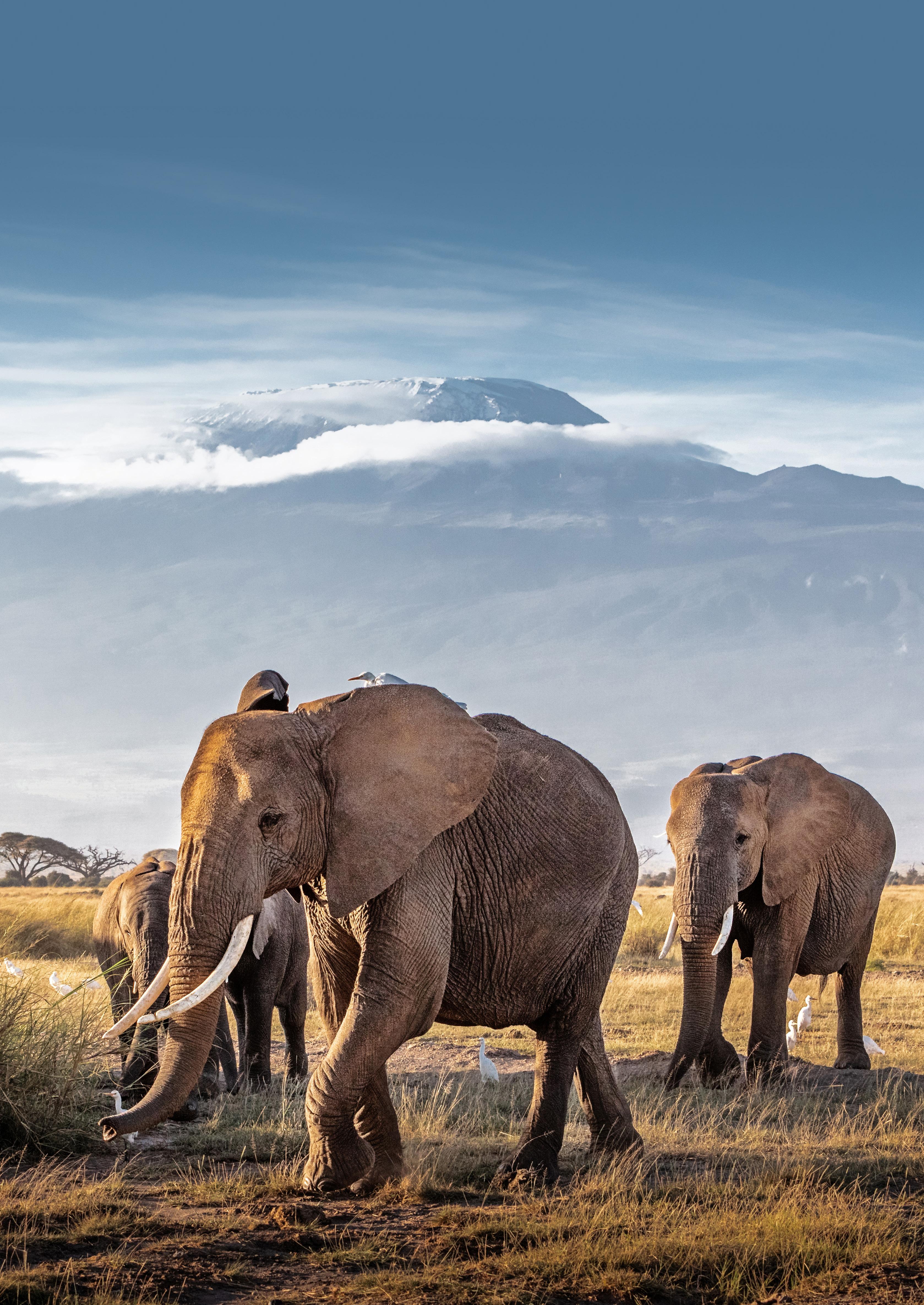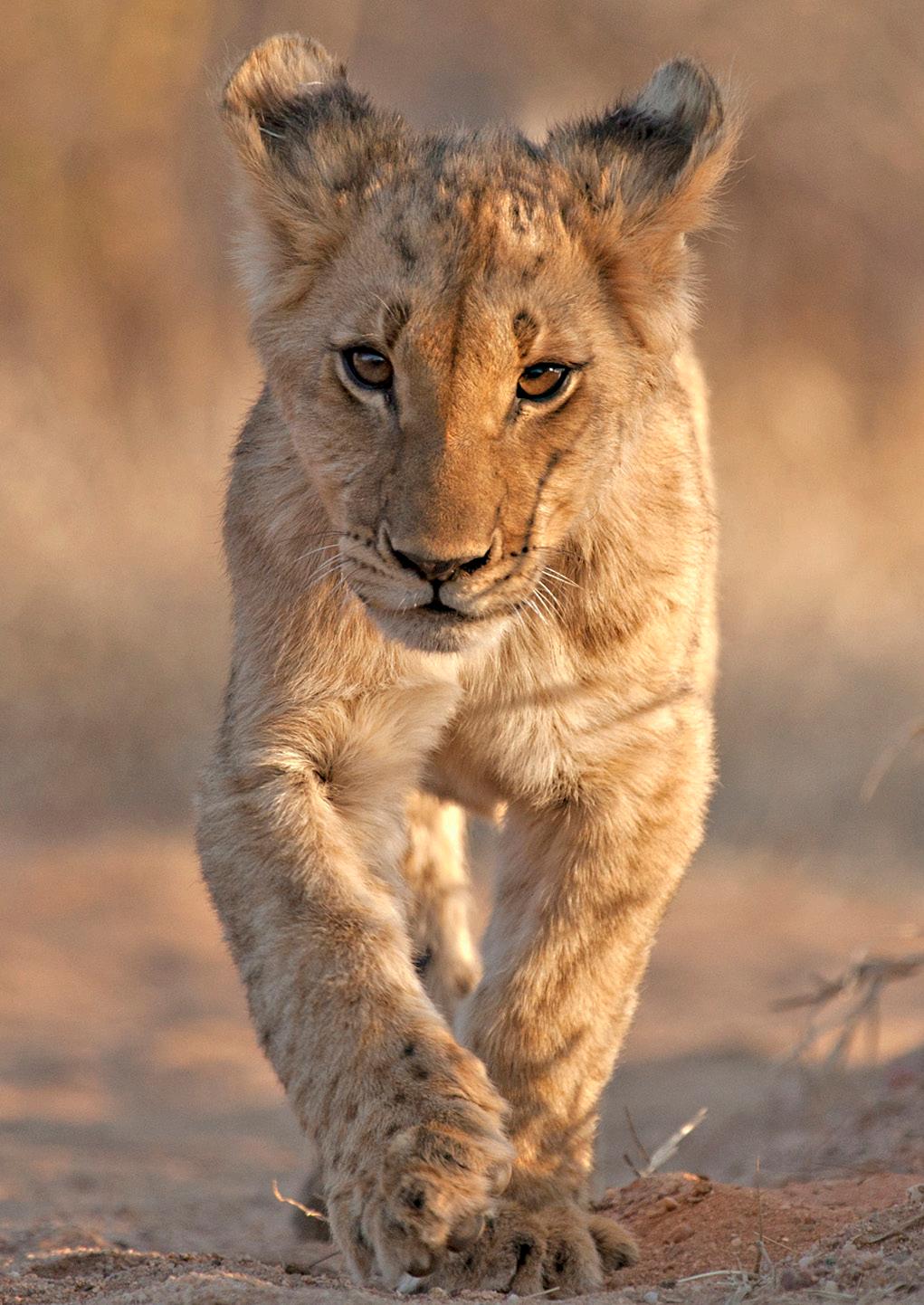

THE BORN FREE FOUNDATION
TRUSTEES’ ANNUAL REPORT AND ACCOUNTS FOR THE YEAR ENDED 31 MARCH 2025 Company Registration No. 3603432 (England and Wales)
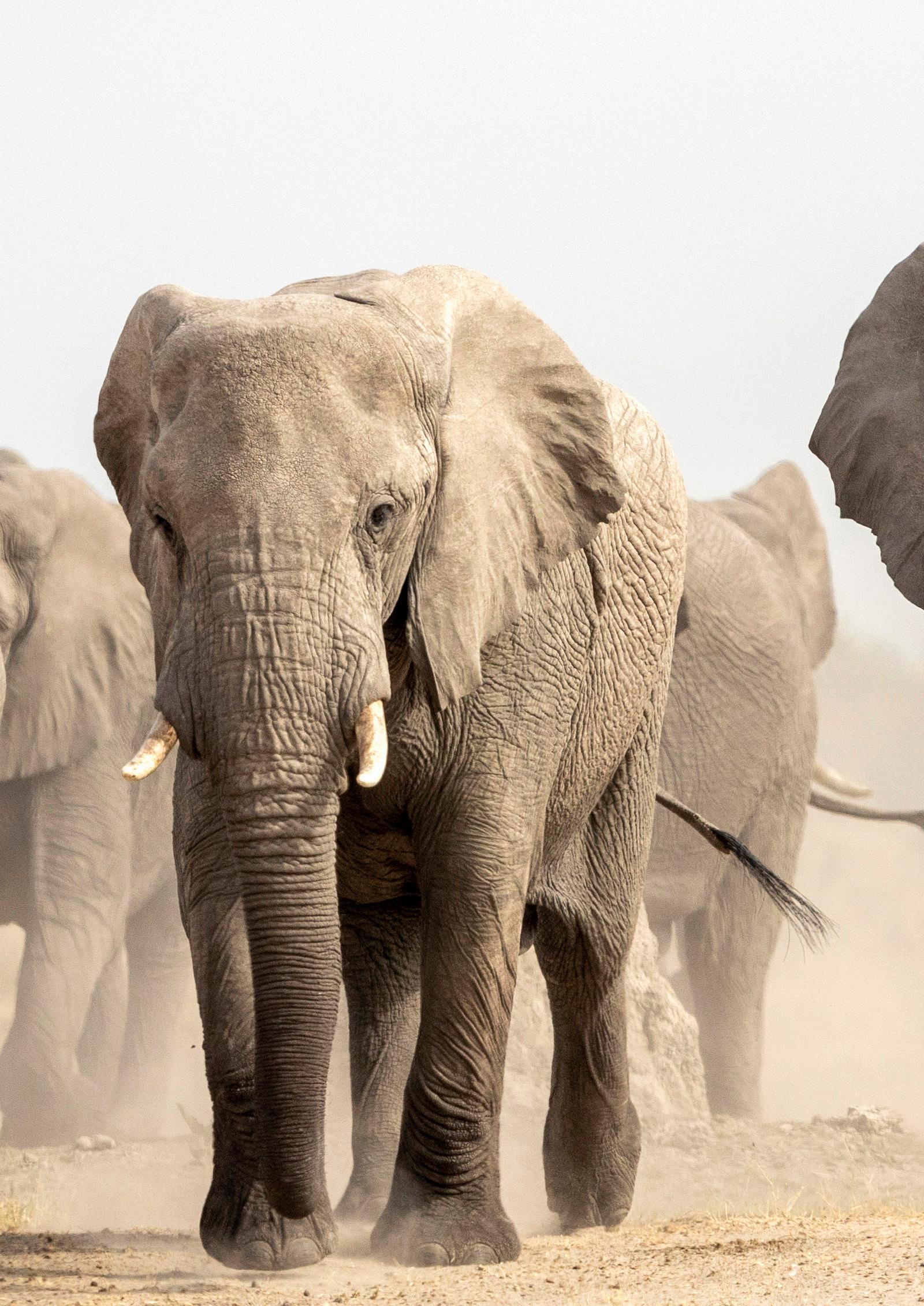
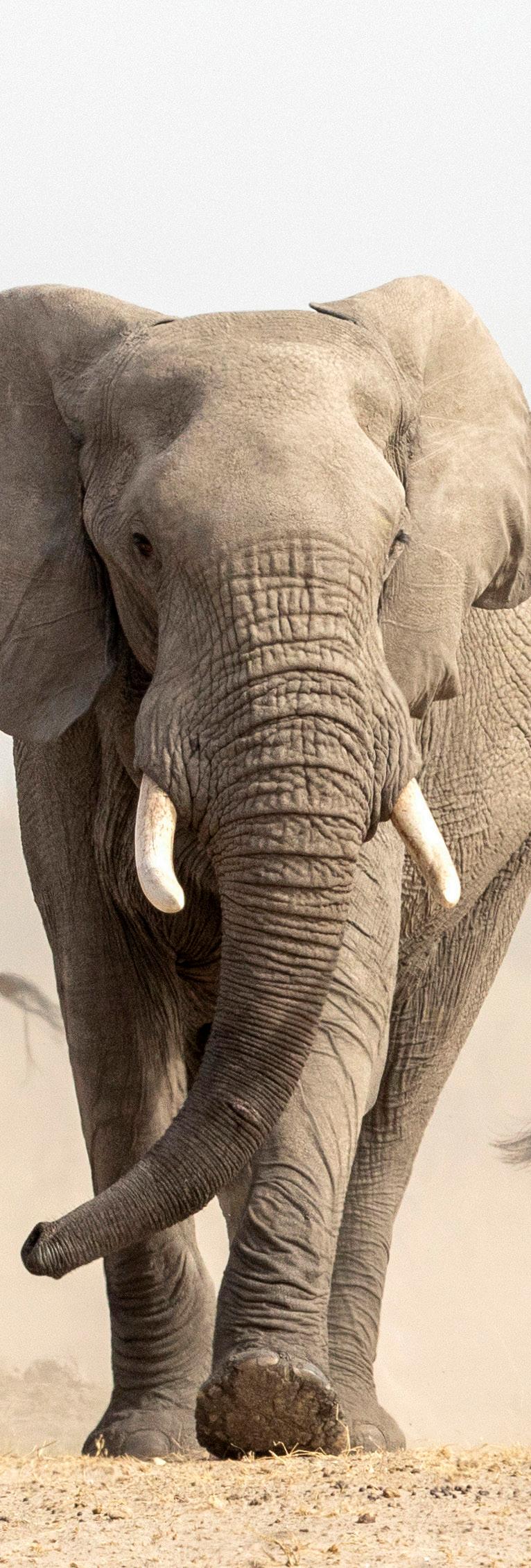
Our Vision
Chair’s introduction
A few words from Will Travers OBE
Legislation & Policy Achievements
Our work in Kenya
Our work in Ethiopia
Our work in Cameroon
Our work in South Africa
Our work in India
Our work in UK
Our work in other countries
Communications and PR
Fundraising
Plans for the future
Structure, Governance & Management
Reference & Administrative Information Financial
The Trustees present their report and accounts for the year ended 31 March 2025, including the Strategic Report for the company.
These accounts comply with the charity’s governing document, the Companies Act 2006, the Financial Reporting Standard applicable in the UK and Republic of Ireland (FRS 102) and with the Charities SORP (FRS 102).
Born Free Foundation 2nd Floor, Frazer House 14 Carfax, Horsham, West Sussex, RH12 1ER, UK
www.bornfree.org.uk
Company Registration No. 03603432 (England and Wales) Registered Charity No. 1070906
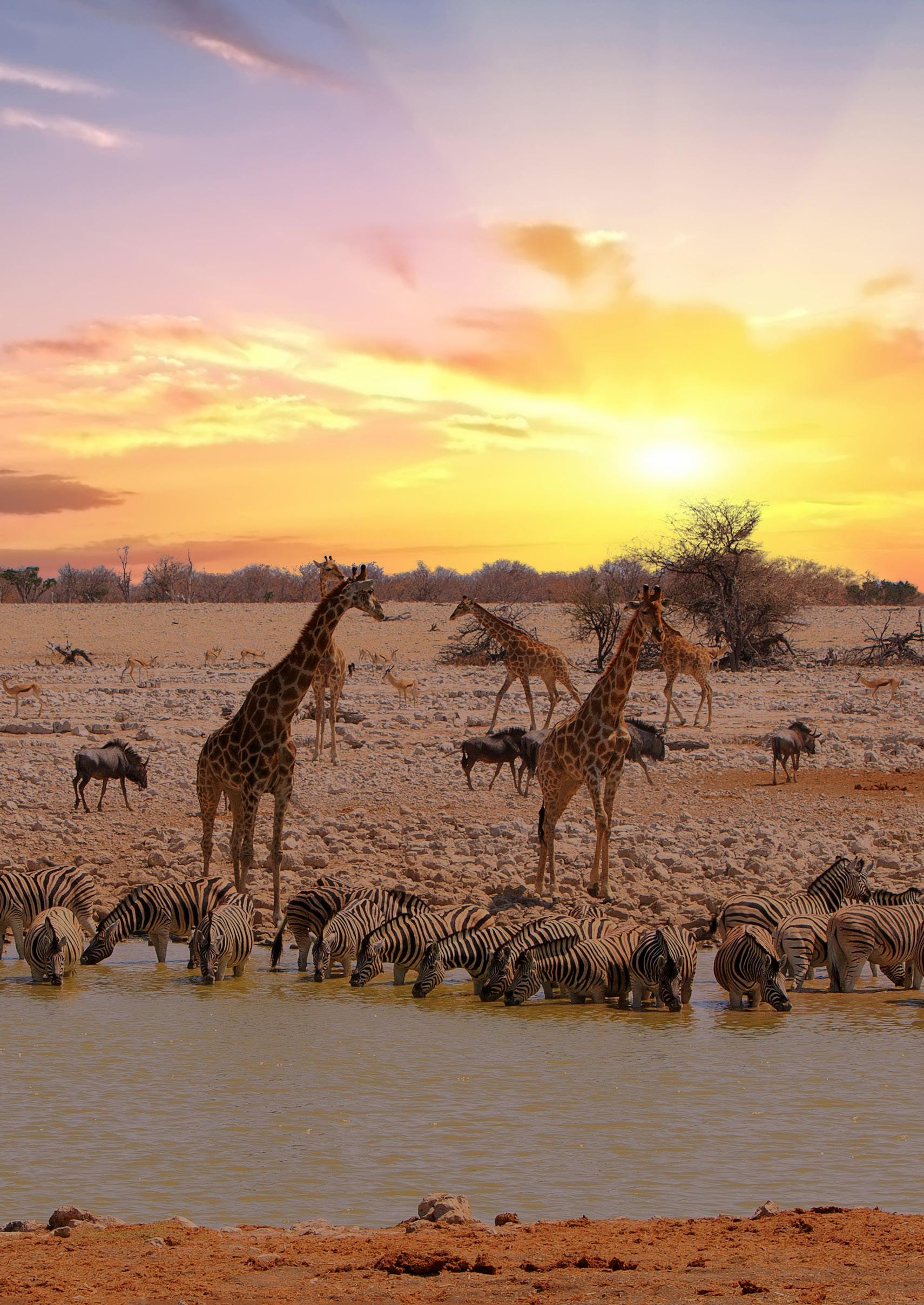
OUR VISION
Born Free is an international wildlife charity and our vision is a world where individual wild animals are treated with respect and compassion. We strive to secure mutually beneficial co-existence, enabling wild animals to live their lives free from harmful human exploitation and as part of functional, viable ecosystems.
In 2024-25, we had three core Impact Goals to guide us as we work to realise our vision. These are:
• Ending the Exploitation and Suffering of Wild Animals
• Protecting Wild Animals, Habitats and Ecosystems
• Inspiring Compassion and Respect for Wild Animals
Our Impact Goals are aligned to broader global ambitions, as agreed by the international community in the United Nations – Sustainable Development Goals.
The UN Sustainable Development Goals (SDGs) represent a universal call to action to achieve a better and more sustainable future for the planet and all its life forms. By addressing issues relating to poverty, inequality, environmental degradation, climate change, peace and justice (among others), the SDGs establish a global level of ambition to overcome the world’s challenges by 2030.
Born Free’s actions to protect wildlife, mainly contribute to delivering against SDG 15 (Life on Land) and 14 (Life below Water), but also 4 (Quality Education), 12 (Responsible Consumption & Production), 13 (Climate), and 16 (Peace, Justice & Strong Institutions). Because the 17 SDGs are all closely interconnected, our initiatives also help advance many of the other Goals.
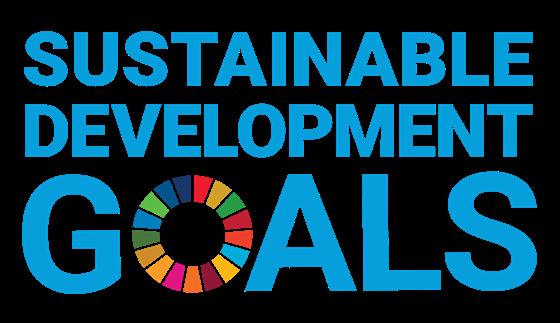
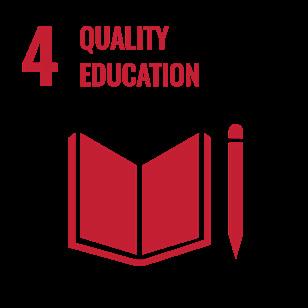
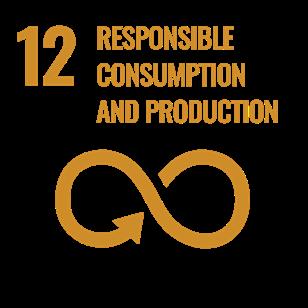
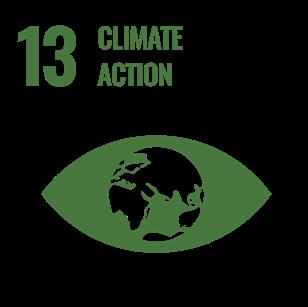
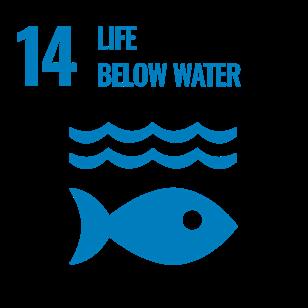
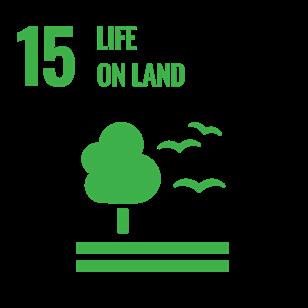
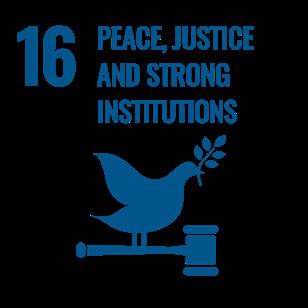
At a policy level, we also actively engage with the UN community and our NGO partners to incorporate wild animal welfare and conservation elements into the Sustainable Development Agenda and its post-2030 successor.
To achieve our Vision requires us to adopt a multi-faceted approach to our work, recognising the interdependent nature of our Impact Goals. In 2024-25, the final year of our current strategy, our work was based on four programmatic pillars:
• Achieving wildlife-friendly policy transformation that has the possibility of making profound and positive change for wildlife and communities
•
• Delivering compassionate conservation with a focus on species or taxa, in partnership with communities most affected by the challenges of living alongside wild animals
•
• Delivering an inclusive approach to community engagement and education, to not only inform but also engage and empower people of all ages to make or encourage changes at a personal, family, community, and societal level; and
•
• Focusing on captive wild animal welfare, reducing and, where possible, eliminating captive wild animal exploitation, by putting the care of the individual animals involved as a top priority.
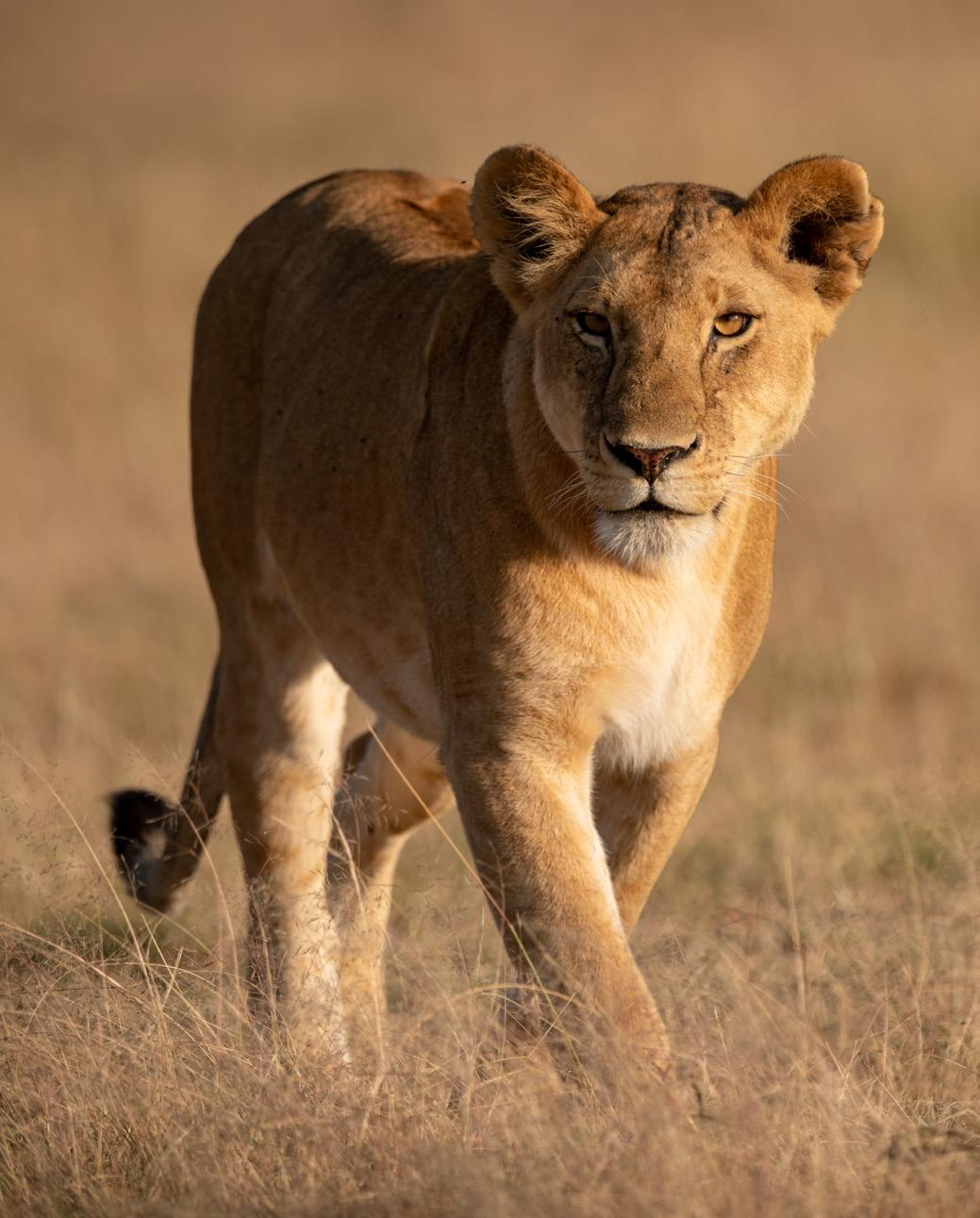
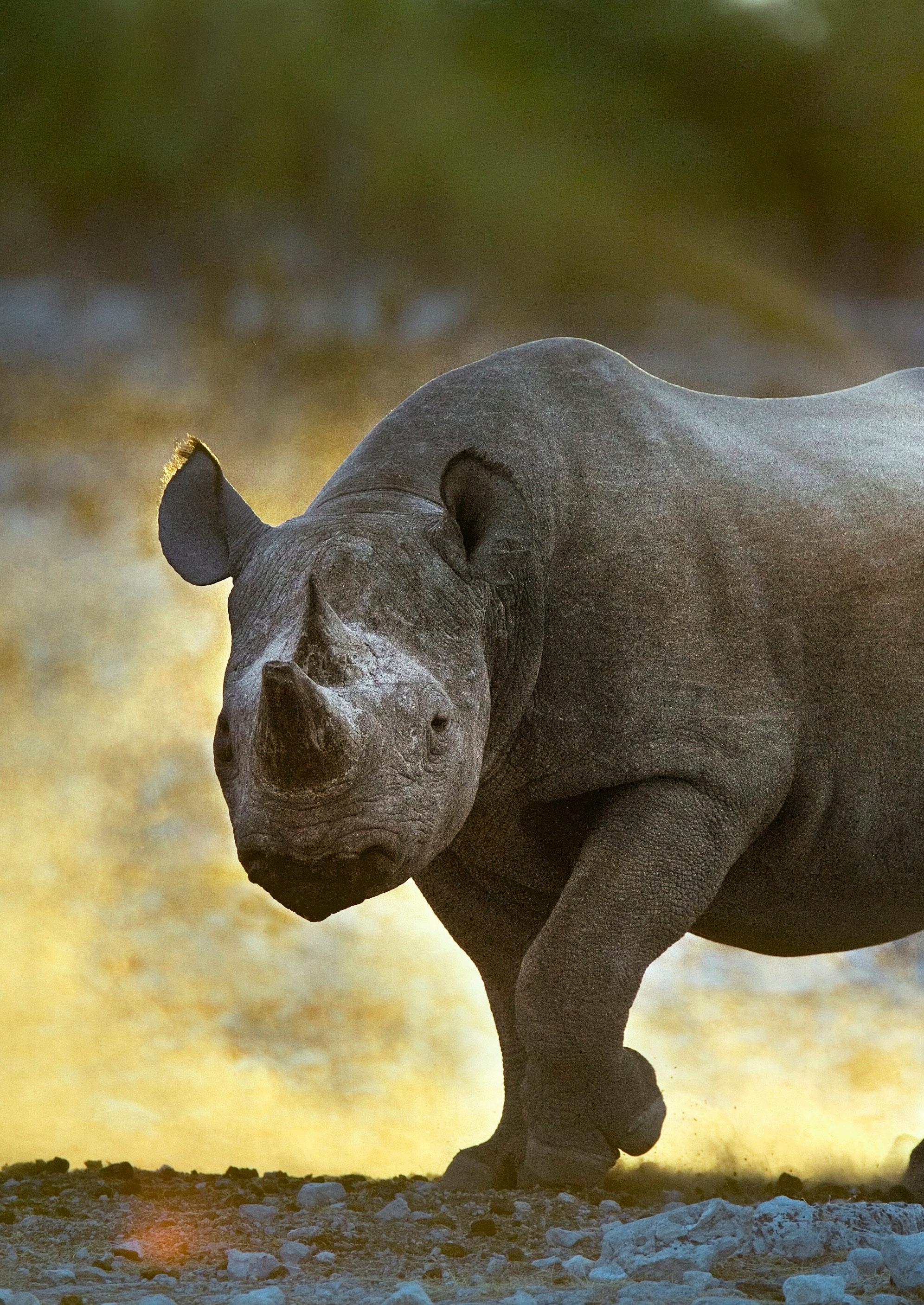

CHAIR’S INTRODUCTION
FOR THE YEAR ENDED 31 MARCH 2025
Dear Friends of Wildlife
I’m delighted to welcome you to the Born Free Foundation’s Annual Report for 2024-25. Equally devoted to wild animal welfare and the conservation of threatened species, our charity has had an impressive and impactful year – there is much positive news to report.
Nature is under increasing threat but, as you will read, Born Free has stepped up to do everything we can to fight for wildlife and withstand these complex challenges. In the past year, we have ensured our work is effective and efficient, making the best possible use of the funding we have received.
A global force for wildlife, Born Free has been a key voice for wild animals in need. But none of this year’s success stories would have been possible without our loyal, generous supporters and our remarkable, dedicated Born Free team.
Their tireless efforts around the world have been guided throughout by our Executive President and Co-Founder Will Travers OBE, working with Managing Director Karen Botha, Chief Financial Officer, Sharon Martin, and Director of Fundraising, Katie Arber.
Financially, 2024-25 saw us achieve revenue of £7.7 million, a 25% year on year increase, which was driven by strong growth in our legacy income and investment in other fundraising streams. We spent £5.1m on our charitable activities and generated an operating surplus for the year of £0.4m. Our free reserves are just above the target range, providing financial security for our future plans. Further analysis is set out in the Financial Review.
With so many highlights across the entire Foundation, how appropriate that the year should end with our inspirational Footsteps to Freedom fundraising Ball at The Royal Lancaster, London, in March 2025.
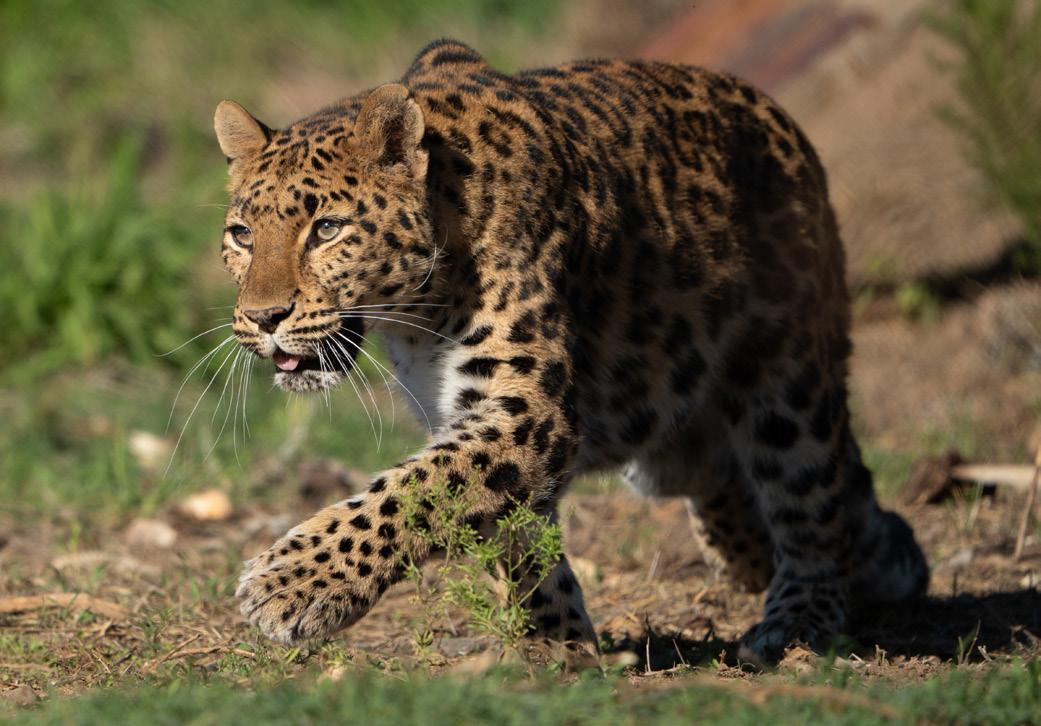
Other achievements included:
• The building of several new ‘predator-proof bomas’, bringing our total of reinforced livestock enclosures in Kenya to 415, helping thousands of people and their livestock coexist with predators with minimal conflict.
•
• Our new Tank Free campaign urged holidaymakers to speak out and not visit dolphin shows, pay to ‘swimwith’, or take selfies with captive dolphins.
•
• After years of our campaigning, it became illegal to sell ivory from hippos, narwhal, sperm whale and orca in the UK.
•
• Highlighting the plight of big cats in zoos, our Clawing at the Cages appeal and report led to 7,408 people signing our petition calling for a Roar-Free UK.
•
• With our help, Kenya is now home to 1,977 rhinos (1,004 black, 973 white), an 89% increase compared to the 1,047 recorded in 2014, the year Born Free began to support rhino conservation there.
•
• The rescue of cheetah orphan, Blue, who suffered lifethreatening injuries in a car accident in Ethiopia which killed her sister, and who is now safely recovering at our wildlife centre.
•
• After our investigations into animal suffering and a lengthy campaign, including our 6,055-name petition, South Lakes Zoo in Cumbria, UK, finally closed.
•
• The Drawn from the Heart art exhibition and auction, by acclaimed artist and long-term friend Gary Hodges, at London’s Mall Galleries.
My thanks go to my fellow Trustees, our generous supporters, our partners both in the field and across the corporate and media world, our colleagues at Born Free USA, and, of course, our own teams and associates from Born Free UK, Kenya, Ethiopia, South Africa, and many other countries. By working together, we can ensure our life-changing work to Keep Wildlife in the Wild can continue to flourish.

Michael Reyner Chair of Trustees
© Lyndon Brandt
Leopard mother and daughter Alda and Ginny, rescued from an illegal breeding facility in Poland, were given a home at our Shamwari sanctuary in South Africa.
WILL TRAVERS OBE
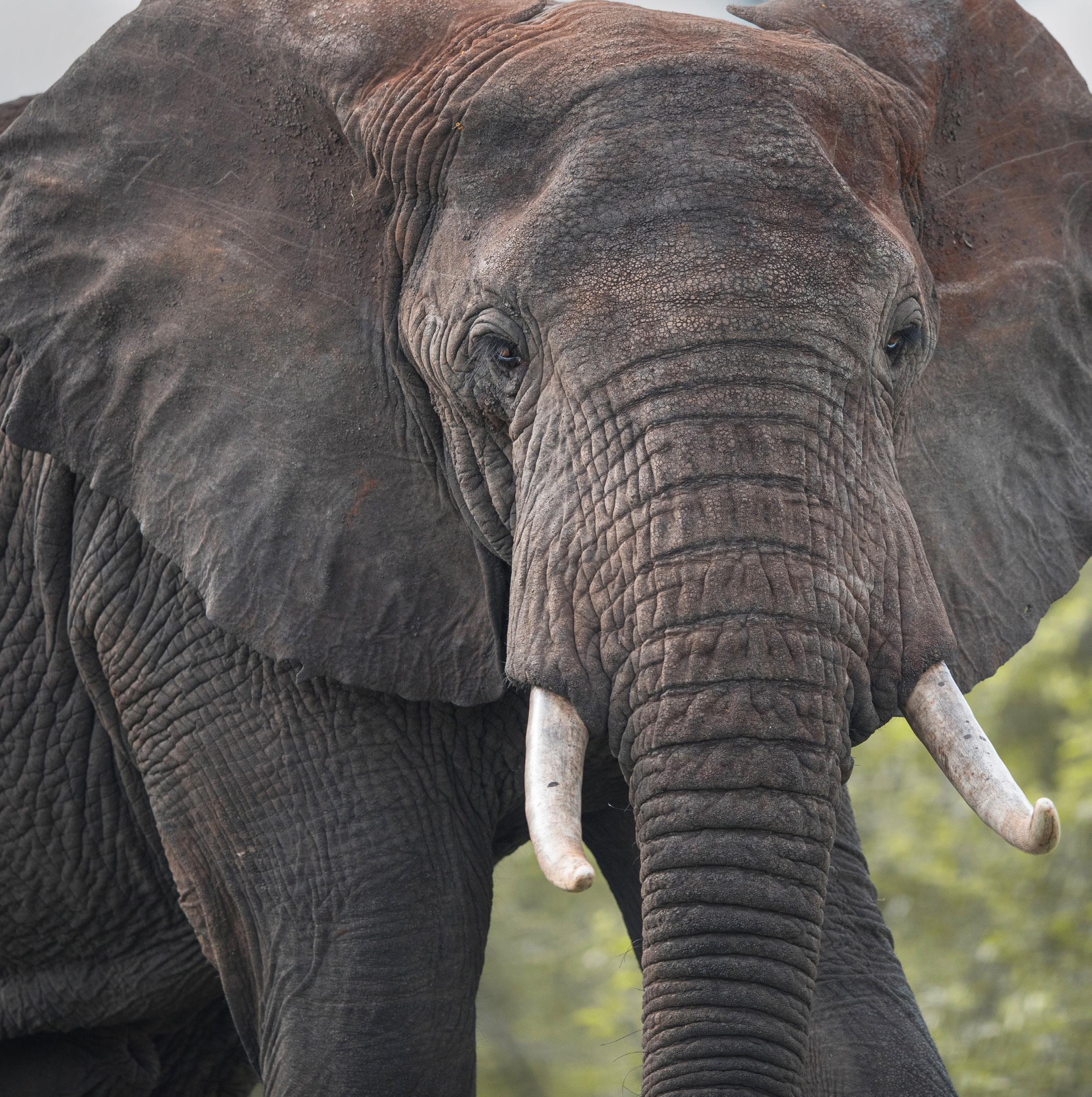
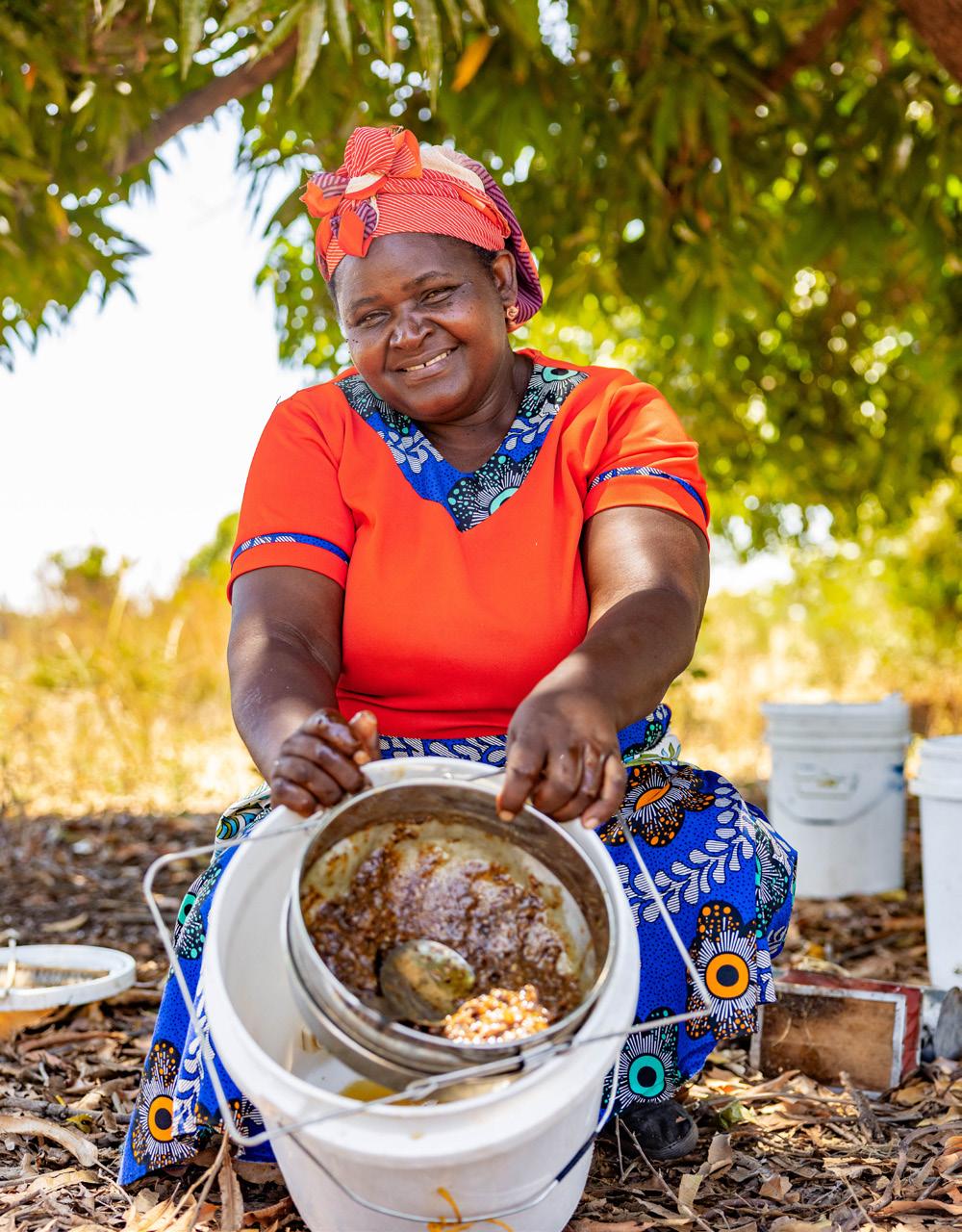
Dear Friends and Supporters
Welcome to Born Free’s Annual Report and Accounts 2024-25. It has been a year of significant action for wild animals, together with outstanding financial results. A year when the world became more challenging and more difficult for all those involved in protecting nature, reducing wild animal abuse and exploitation, and working to support communities who share their lives with wildlife.
Clearly, without the incredible work of our teams, and the generosity of our many loyal supporters, partners and donors – large and small, old and new – we would not have been able to achieve so much. The details will be revealed in the pages that follow.
Harvesting honey from our beehive fencing
Disappointingly, we identified several breaches of our staff management policies and procedures in Kenya. Following investigation, this resulted in the dismissal of staff members in the Kenya team. We have since undertaken work to support Kenyan staff in understanding and adhering to our polices and are undertaking a review of the Kenya management and leadership structure.
We are committed to ensuring that, each and every day, we uphold our values and policies, and that we continue to enjoy the trust placed in us by our supporters to do all we can for wildlife in need – captive and free-living – and for the communities that we also serve.
However, unusually for an Annual Report, I not only want to invite you to review the year just past, but to set the scene for the future by previewing our new five-year-strategy, Pathways to Freedom, which was approved by the Board in March 2025 and launched following year end in May 2025.
After over 40 years working for wildlife in need, whether in captivity or in their natural habitat – we must always ask the tough questions:
• Are we being as efficient as we can be?
•
• Are we making a lasting, positive impact?
•
• What have we learned?
•
• Can we do better?
So, in consultation with colleagues from across the organisation, including numerous members of the team as well as Trustees, and guided by an expert outside facilitator, we have spent much of 2024 considering, challenging, reviewing, understanding, and assessing our performance. Our objective? Simple: to learn from all we have been doing across a range of activities from the year of our inception – 1984 – to the present day. And then imaging what the next five years will look like.
Of course, it would be foolish to say this is an entirely new strategy. That would diminish and even negate the value of all that has gone before. It is, to put it succinctly, an evolution, not a revolution.
Our core principles remain intact, although the way we describe them will be better articulated than ever before. When it comes to our four disciplines, we will continue to pay relentless attention to:
• Individual wild animal welfare, rescue, and care
•
• Compassionate conservation
•
• Community engagement and empowerment
•
• Promoting wildlife-friendly policies.
I am genuinely impressed by how we have baked them into our future plans.
For the first time, our strategy sets out four CrossOrganisational Objectives, marking a shift away from our work predominantly sitting in programmatic silos. Our activities can, indeed must, respond holistically to a range of needs and objectives across the broadest possible operational landscape.
Let me give just one example. Our work in Meru, Kenya, focuses on four of our six, newly-defined, key species and groups of animals – elephants, lions, giraffe, and rhino. Protecting them, supporting their conservation, lies at the heart of Born Free. However, our cross-disciplinary approach means we must engage even more profoundly to achieve the lasting impact we seek, and the following activities are all part of delivering our strategy:
• Helping communities better manage the vulnerable water resources of the area, so that both people and wildlife have enough.
• Helping create and organise local Village Savings and Loans Associations which empower mainly local women to develop alternative, environmentally sustainable, wildlife friendly livelihoods.
•
• Assisting local farmers protect their crops from marauding elephants, through the installation of bee-hive fences (elephants are afraid of bees), and producing nutritious and commercially viable honey.
•
• Directly helping homesteads better protect their livestock from predators, tangibly benefitting the lives of hundreds of people, and virtually eliminating revenge attacks by farmers against carnivores.
When Born Free started, way back when I was 24 years old, I did not know or understand any of this. Now, I begin to get it. I have learned and evolved, so have my colleagues – and so has the Foundation.
Welcome to our Annual Report and Accounts 2024-25. It summarises an outstanding year for Born Free, but more than that, it sets the scene for the next chapter in our development as a charity and as humane beings. The past four decades have been quite a journey. But I am just as excited about the years ahead. I hope you are too and will want to stand shoulder to shoulder with us as we do our best for wild animals in need, nature, biodiversity, communities, and the planet.

Will Travers OBE Co-Founder & Executive President

LEGISLATION & POLICY ACHIEVEMENTS
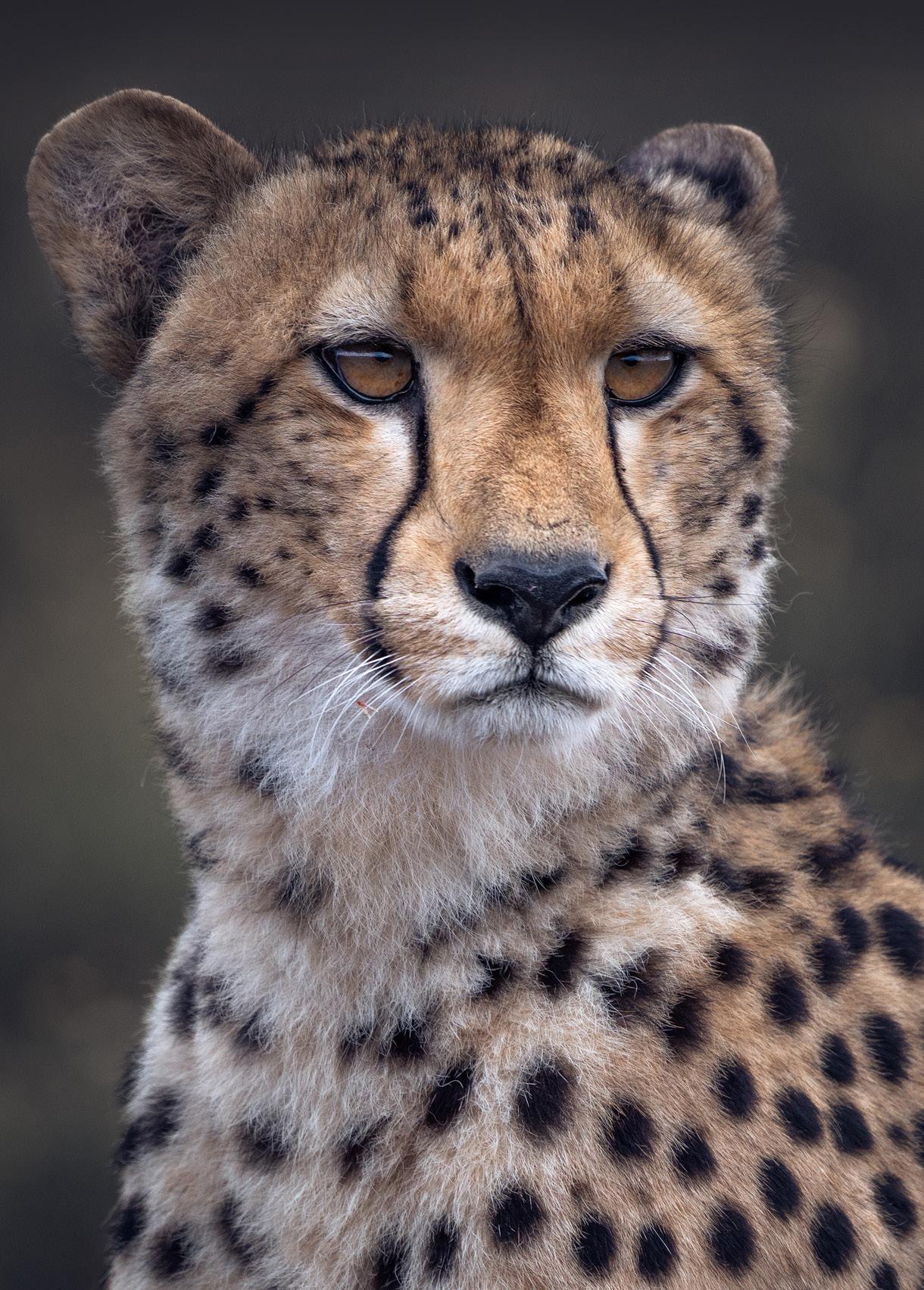
Our policy work is key to achieving our mission of protecting wild animals and their habitats, and ending their exploitation, suffering and killing. To achieve this, our dedicated Policy team works hard to engage policymakers, enforcement authorities, communities, and the wider public to secure new or improved laws and policies that support our conservation, rescue and care, and community engagement efforts.
GLOBAL POLICY WORK
Born Free is working to change the international wildlife policy landscape. Through our status as a recognised Observer Organisation at international wildlife forums, we continue to influence government representatives and policy makers to ensure that international environmental agreements prioritise wildlife protection and the wellbeing of wild animals.
Our work to improve global regulation of wildlife trade, alongside our Species Survival Network colleagues, continued at committee meetings of the Convention on International Trade in Endangered Species of Wild Fauna and Flora (CITES).
At the July 2024 CITES Animals Committee meeting, we urged for action to prevent disease emergence from wildlife trade and improve conditions for live animal transport. At the Standing Committee meeting in February 2025, we urged governments to step up efforts to protect African and Asian elephants, rhinos, cheetahs, monkeys, big cats, and others from trade, and pushed for a greater focus on CITES’ core mission over trade interests. These often complex and protracted negotiations will now move to the triennial Conference of the Parties late in 2025.
In October 2024, we celebrated the culmination of four years of work alongside our colleagues at the Global Initiative to End Wildlife Crime, when the UN Convention against Transnational Organised Crime (UNTOC) adopted
a Resolution committing governments to consider the development of a specific agreement to tackle wildlife trafficking and other environmental crimes. Our job now is to ensure the Resolution is implemented without delay, and a global agreement is developed to combat these activities which are amongst the most damaging of organised crimes.
Also in October 2024, at the UN Convention on Biological Diversity, we helped secure the adoption of a Global Action Plan on Biodiversity and Health, and decisions on the role wild animals play in mitigating climate change. The recognition that conserving and sustainably managing biodiversity is critical to addressing climate change is paramount to ensuring that governments prioritise wildlife protection.
Closer to home, we played a key role in securing agreement on a new Council of Europe Convention on the Protection of the Environment through Criminal Law, set to be adopted in 2025. We also worked with EU Member States and institutions to ensure the robust implementation of the EU’s new Environmental Crime Directive.
Throughout the year, we also advocated for the inclusion of strong pandemic prevention measures in the World Health Organisation’s upcoming Pandemics Agreement. This is due to be adopted at the World Health Assembly in May 2025, and will promote better regulation of high-risk activities like habitat destruction and wildlife trade, and the adoption of a ‘One Health’ approach to disease control.
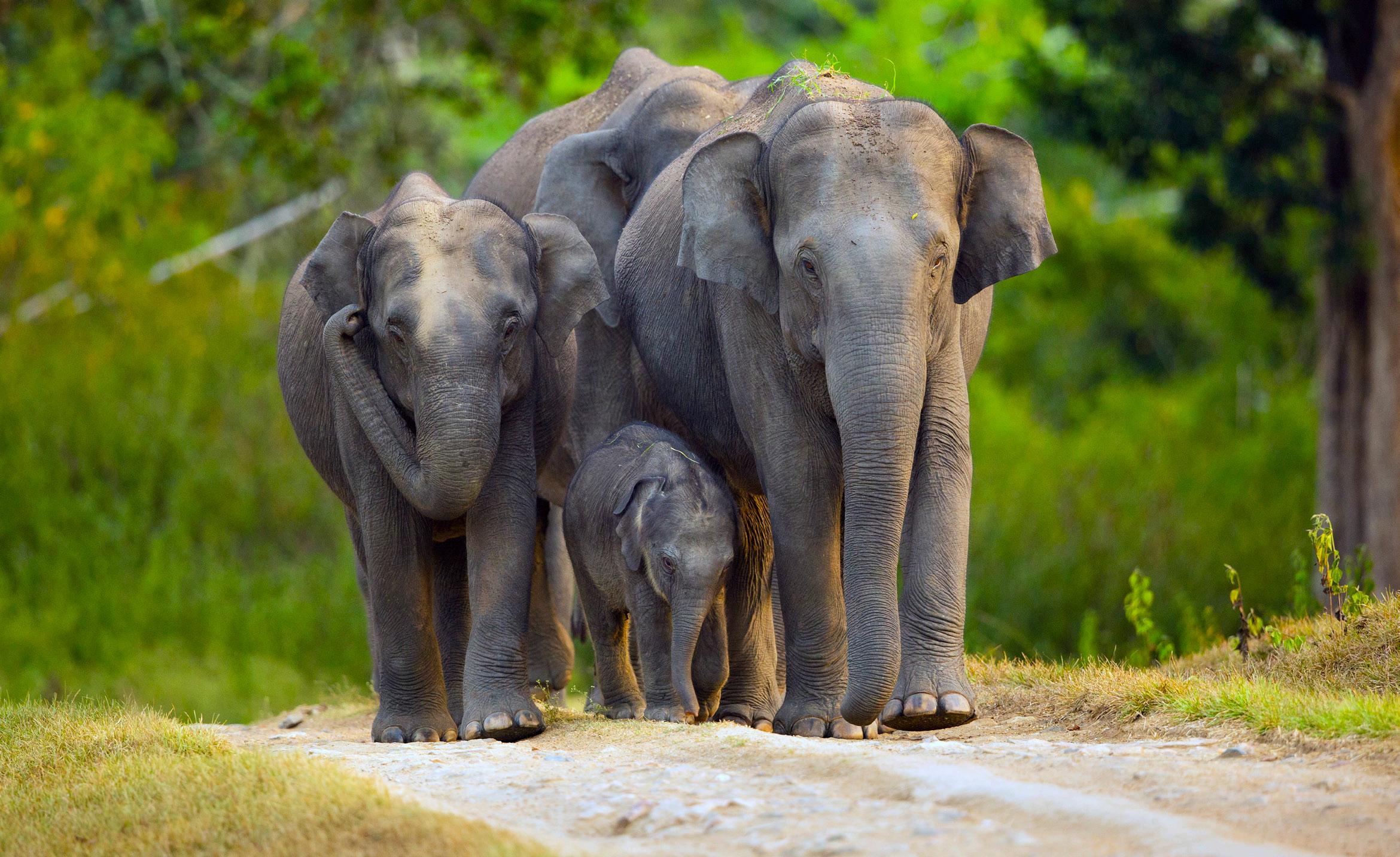

UK POLICY WORK
Born Free is also tackling wildlife issues in the UK
When the UK government called a snap general election, in July 2024, we were ready with our comprehensive UK Wildlife Conservation and Animal Welfare Manifesto. We had prepared this some months earlier in anticipation. Our supporters joined us in their thousands in getting our key messages to their party candidates.
The incoming government committed to implementing greater protections for Britain’s ever-diminishing wildlife, a ban on cruel hunting trophy imports, and a strengthening of the Hunting Act, and we are working to ensure these commitments are fulfilled, while lobbying for other improvements at party conferences and directly with Ministers.
In November 2024, we helped launch the annual UK Wildlife Crime Report alongside our colleagues at Wildlife and Countryside Link. The report highlighted the continuing scale and scope of wildlife crime in the UK. It called for action to make all wildlife crimes recordable and for enforcement, prosecutorial, and judicial authorities to be properly resourced to deal with them effectively.
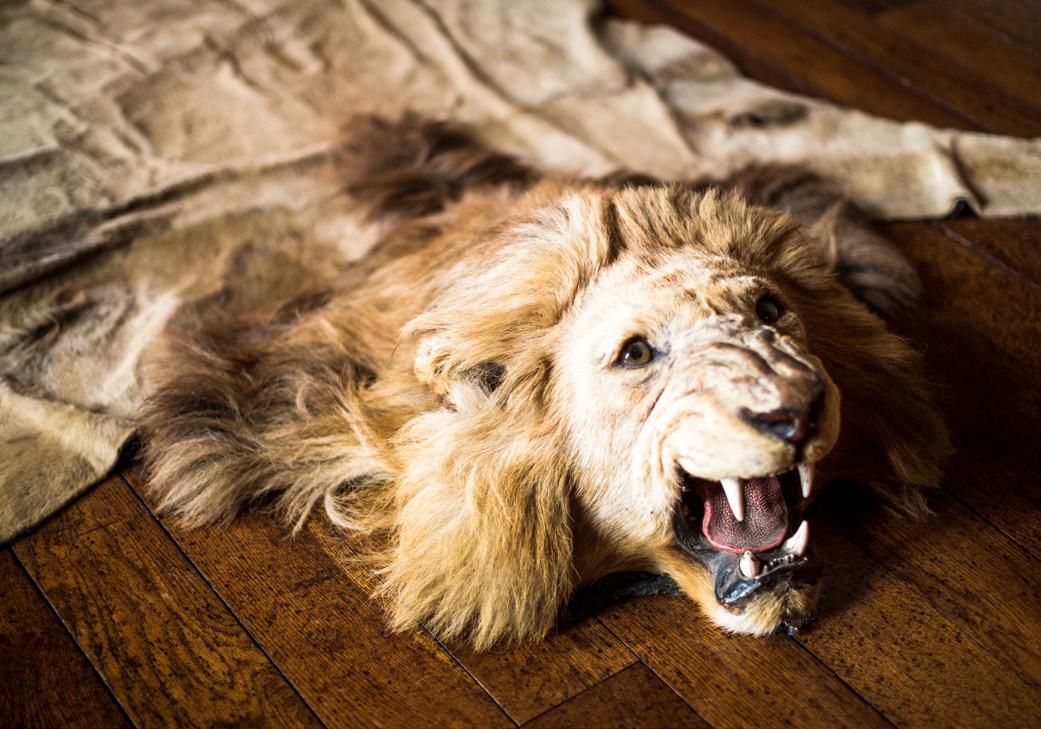
In December 2024, we helped secure a Private Members’ Bill to ban the shooting of hares during their breeding season in England and Wales. We are now working to secure the passage of this proposed legislation through Parliament. We continued to demand an end to the culling of badgers in England, through direct engagement with Ministers, and through the Bern Convention under which badgers are a protected species and to which the UK is a signatory.
In January 2025, we finally saw the provisions of the Ivory Act, which bans most trade in elephant ivory the UK, extended to include ivory from hippos, narwhals, sperm whales and killer whales. This is something Born Free has campaigned for since before the Ivory Act passed into law in 2018.
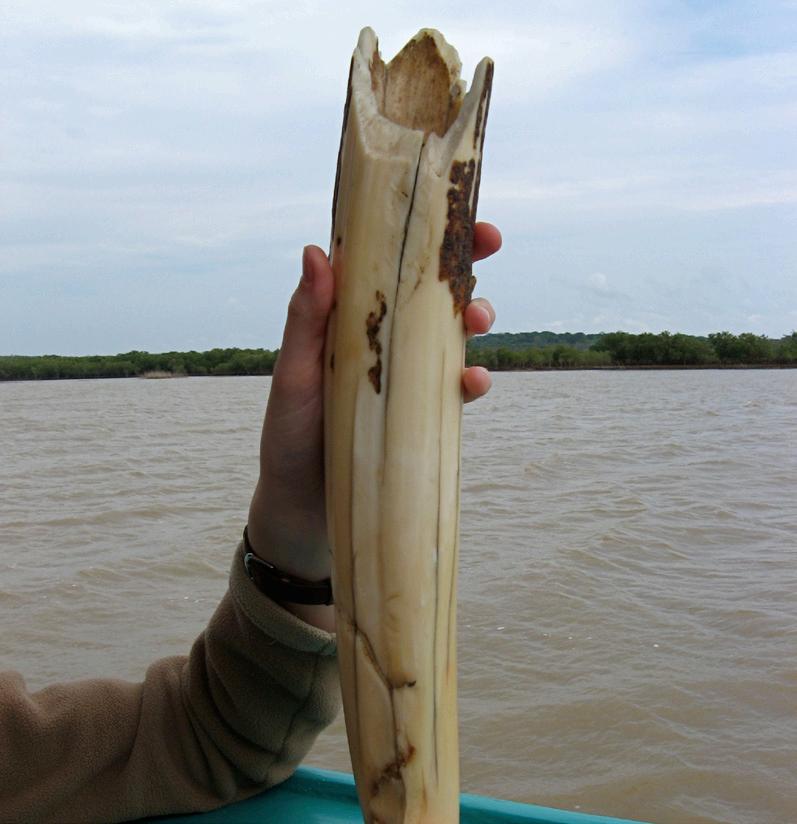
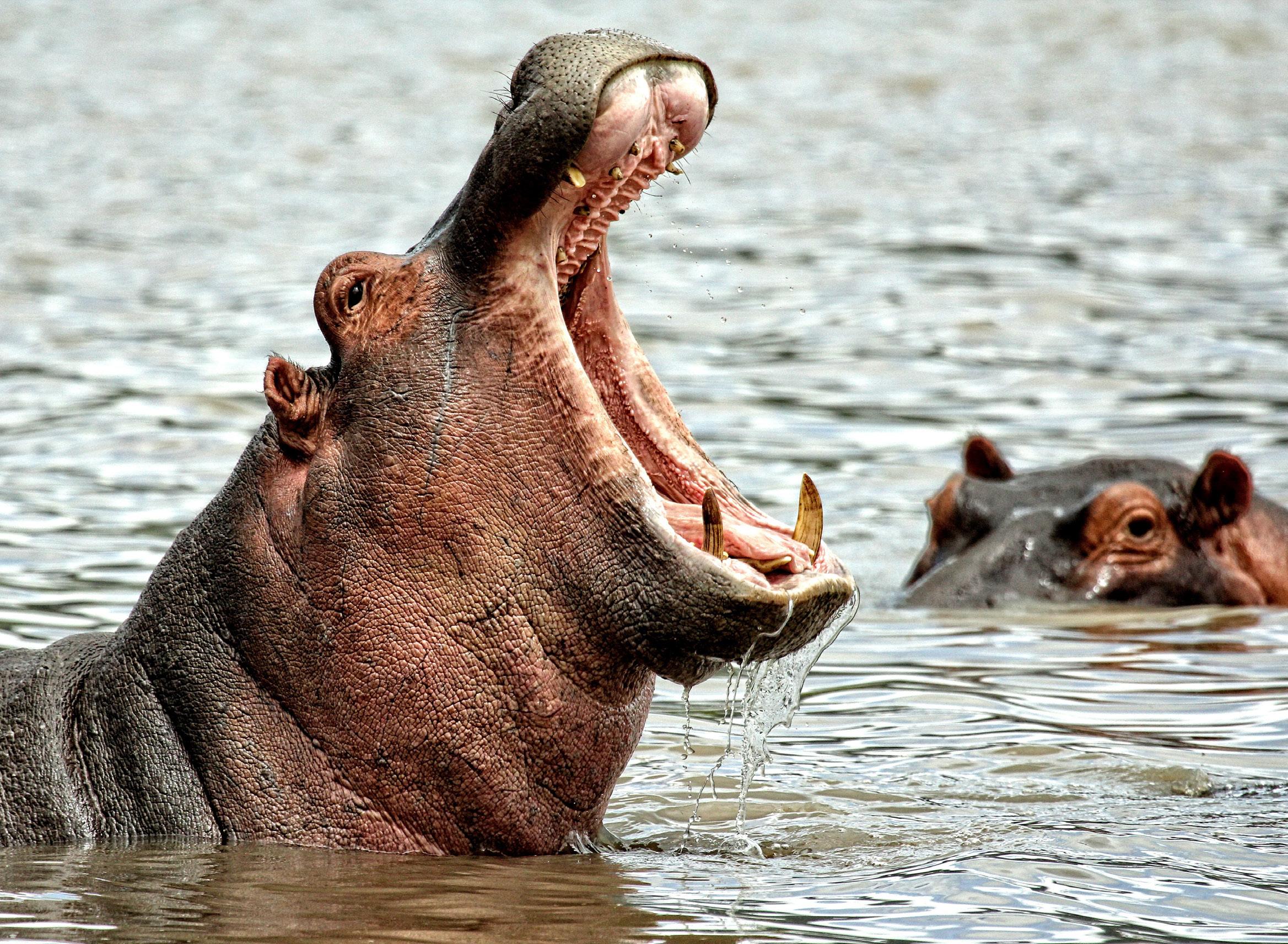

Ivory:
© Mark Turner
Hippo ivory
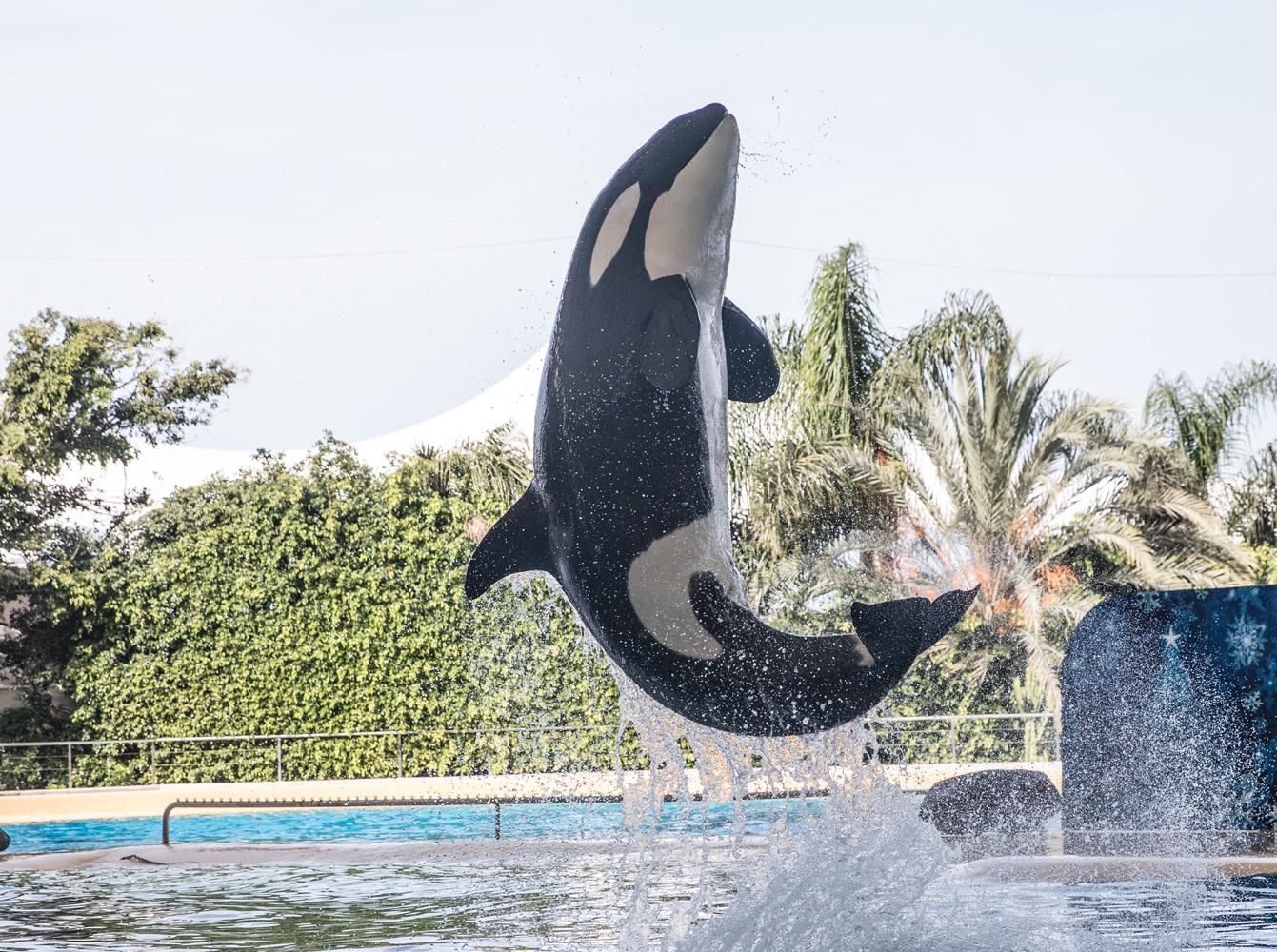
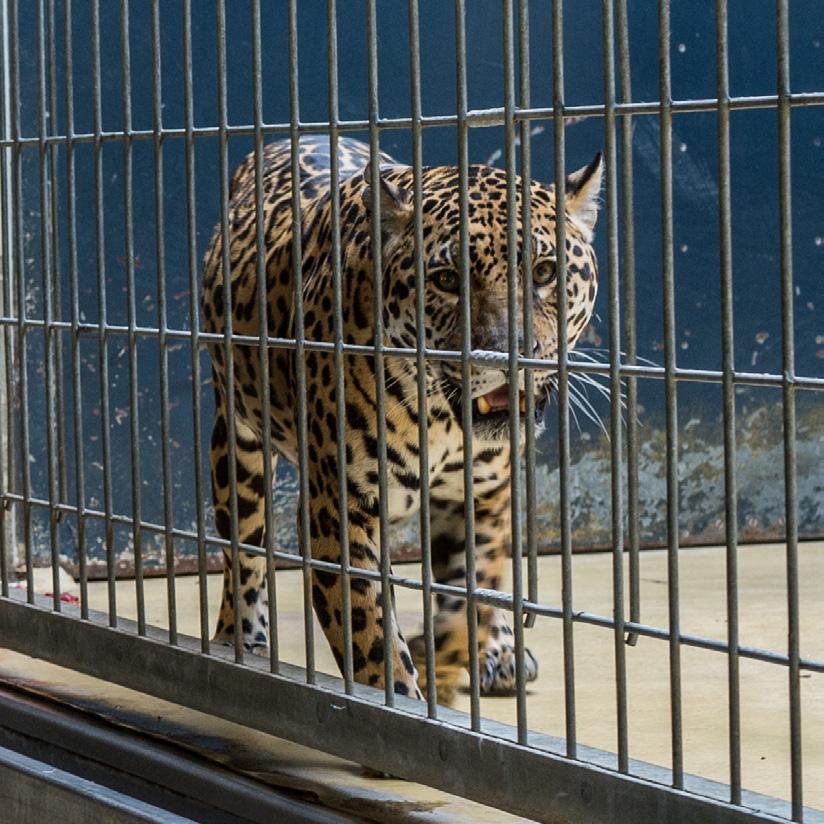
CAPTIVE ANIMALS POLICY WORK
Born Free continued to challenge keeping wild animals in captivity for human entertainment.
Our campaigns against the exploitation of wild animals in zoos gathered momentum, with the launch of our comprehensive report on big cats in zoos entitled Clawing at the Cages in September 2024. This garnered extensive media attention.
In December 2024, our efforts to highlight the failings of South Lakes Safari Zoo in Cumbria, including a public petition, culminated in the closure of the zoo. Work is underway to ensure the remaining animals are relocated to more appropriate facilities.
Our annual effort to shine a spotlight on the suffering of live reindeer at Christmas events helped bring the total number of event organisers that have ended their use of live animals since 2018 to 209.
In January we launched our Tank Free campaign, which is designed to highlight to the public the suffering of marine mammals exploited in dolphinaria for entertainment, and to persuade them not to visit such facilities. The campaign is slowly reaping rewards with the closure, in January 2025, of France’s largest dolphinarium in Antibes. Alongside our colleagues at the Dolphinaria-Free Europe coalition, we are calling on the French authorities to ensure that the remaining marine mammals at the facility are retired to sea sanctuaries.
Finally, we have been working with colleagues in Scotland to gather information on the scope and scale of the trade in and keeping of wild animals as pets north of the border, and launched the Don’t Pet Me report and campaign in Spring 2025 to persuade the Scottish government to take much-needed action.
These and many other aspects of our policy work simply wouldn’t happen without the generous support of our donors and the collaboration of our partners, for which we are continually grateful.
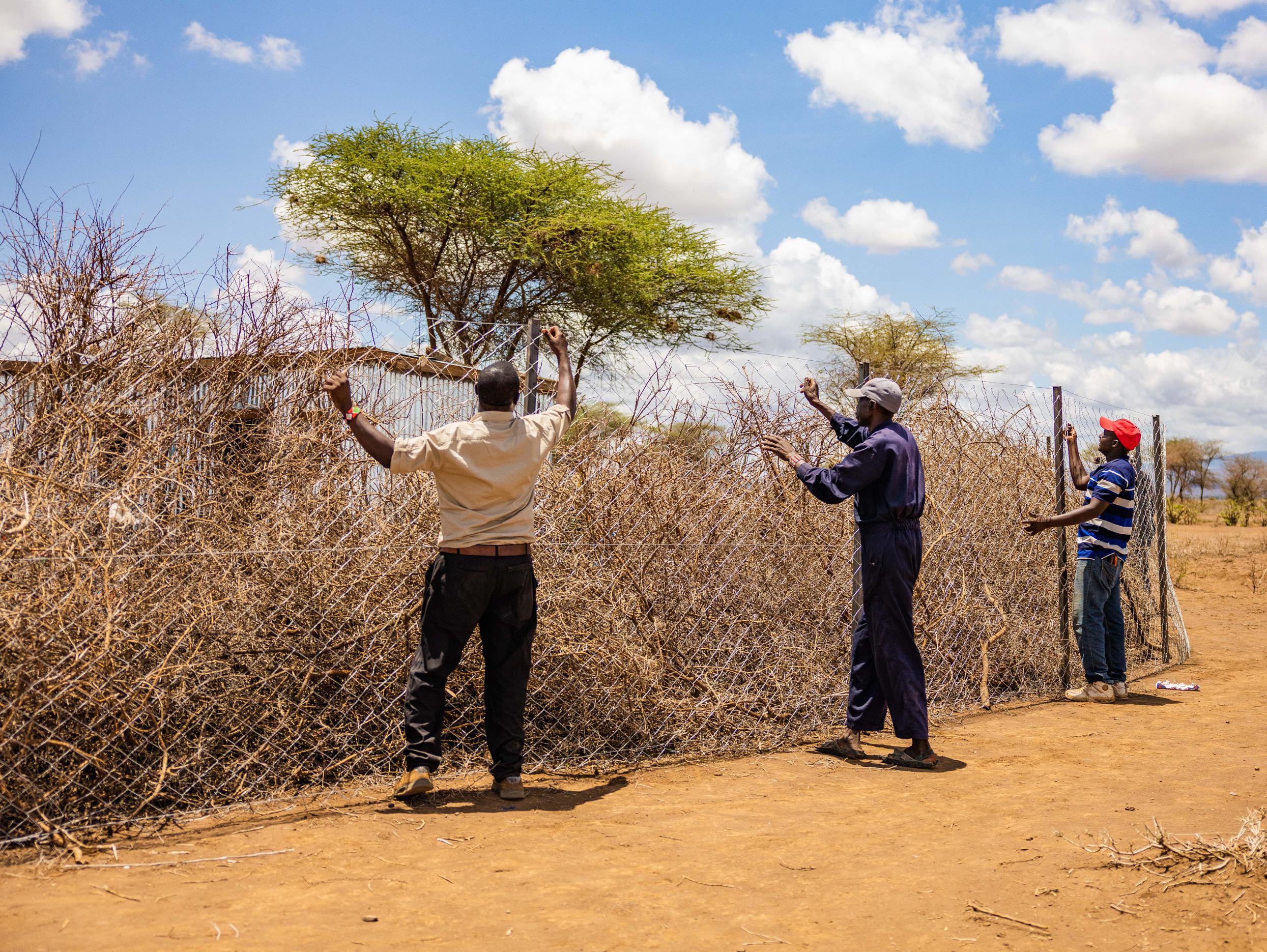
OUR WORK IN KENYA
Kenya is our charity’s heartland, where the Born Free story began, and it is home to our first overseas office that opened in 2002. Operating in two key landscapes, Amboseli Ecosystem and Meru Conservation Area, we work with a range of partners, including the Kenya Wildlife Service (KWS) and communities, to protect wild animals in their natural habitat, helping local people to peacefully coexist with wildlife.
PRIDE OF AMBOSELI
In the Amboseli Ecosystem, changing land use and governance, together with increasing pressures on the natural habitat, result in high rates of negative encounters between Maasai people and wildlife. To help local people live alongside predators, including lions, leopards and hyenas, we reinforce traditional thornbush enclosures, known as bomas, that surround homes and livestock corrals with two-metre wire mesh and functioning gates.
In 2024-25 we constructed five new ‘predator-proof bomas’ (PPBs) and repaired 12 more. This brings our total number to 415 since our programme began in 2010. The new bomas will help safeguard 2,331 livestock (633 cattle and 1,698 sheep/goats), and directly benefit 210 people (25 men, 30 women and 155 children).
We conducted a status assessment survey of our existing PPBs. This revealed 125 (30%) had suffered some neglect or damage and are in need of repair. The survey also revealed 94% of owners stated their living standards had improved since their PPBs were built. Also, 86% said they agreed or mostly agreed that people and wildlife can live together in harmony – reflecting positive beliefs about sharing the landscape with wildlife.
To further enhance lives, we distributed 34 solar light units and 17 water storage tanks to each of the new and repaired bomas, while the repaired bomas each received 24 ‘jikos’ (energy saving stoves). Since our programme began, 7,726 jikos, 485 solar lighting units, and 291 water storage tanks have been distributed.
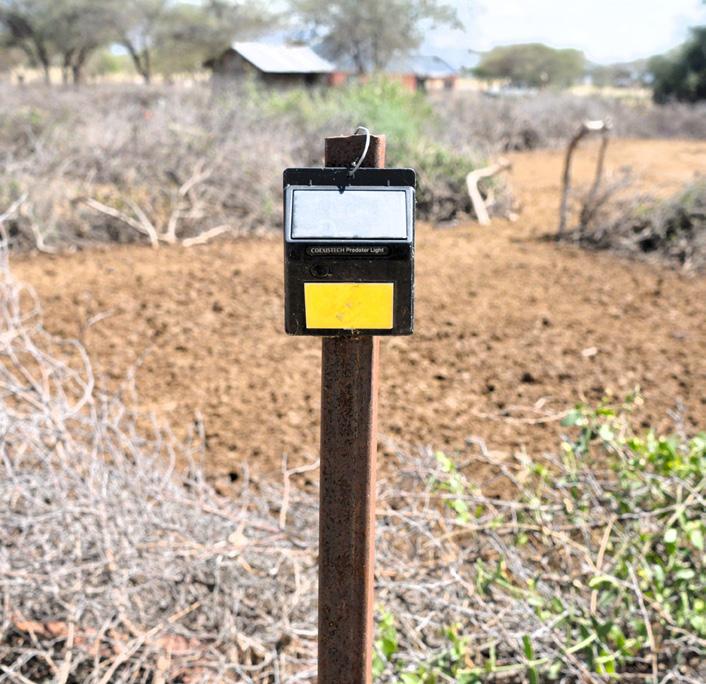
Analyses indicate that our PPB project is having a positive impact on attitudes and perceptions. Before their PPBs were constructed, only 23 out of 80 (29%) boma owners interviewed said their living standards had improved in the recent years, whereas 36 months after their PPBs were constructed, 71 (89%) reported an improvement, perhaps due to PPBs contributing to a reduction in the negative economic impacts experienced as a result of conflict with wildlife. When asked if they thought it was good that lions live in Amboseli, a weakly positive response (45 out of 80, 41%) rose to a much stronger 71 people (89%) after 36 months of having a PPB.
Back in June 2023, 171 flashing ‘predator deterrent lights’ (PDLs) were installed at 19 bomas. In an 18-month follow-up survey, in December 2024, 16 PPB owners (82%) stated their living standards had improved. This might be due to an increase in livestock numbers, rising from an average of 304 animals to 379, likely because of reduced predation. Before the installation of the lights, 18 out of 19 beneficiaries (95%) said they had lost their livestock to predators. After 18 months, PPB owners reported no loss of livestock within their boma since the lights were installed.
© Peter Ndung’u, George Leakey
Reinforcing a traditional livestock enclosure. Inset: a predator deterrent light
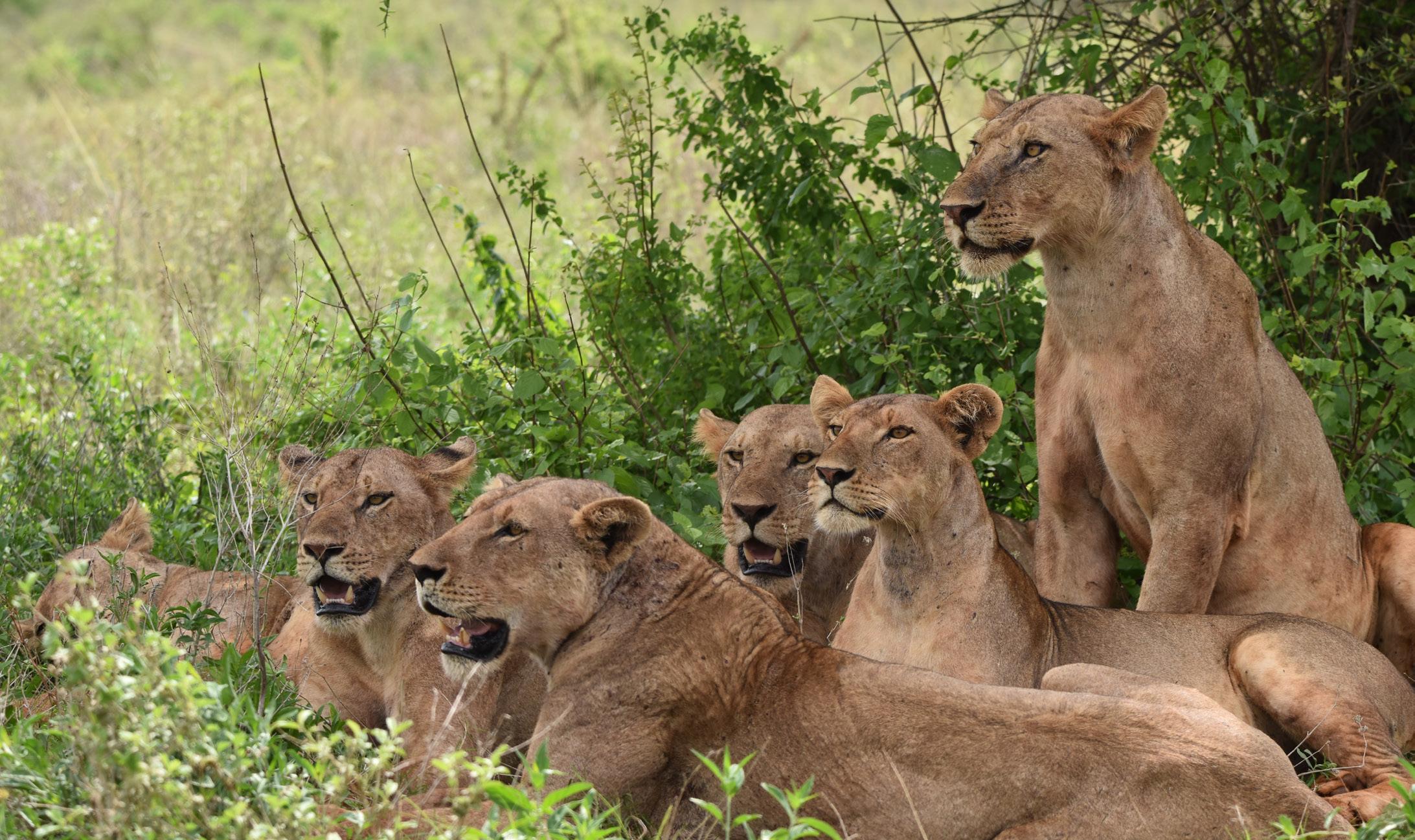
PRIDE OF MERU
Since 2014, we have worked with the local community to monitor wild lions in Meru National Park, where Elsa the lioness (featured on our logo) was successfully returned to the wild in 1958. By understanding their behaviour, we can develop the best-possible solutions to ensure their conservation and promote coexistence with people.
Our lion database now includes 92 identified individuals, with 50 in the ‘living register’. There are also nine cubs under one year, from three of the five prides. These cubs are not included in the living register until they are one year old. Over the last year, we spent 73 days monitoring a total of 3,958 km, and had 85 sightings of carnivores, including 40 sightings of lions, 26 of which were direct sightings, observing a total of 159 individuals.
The prides we monitor are: Elsa’s Pride, with 14 living individuals (six males, eight females), Mulika’s Pride, with 10 individuals (one male, nine females), Bisanadi’s Pride of 17 (five males, 12 females), Virginia’s Pride of seven (one male, six females), and two translocated males.
As part of our trialling of different conflict mitigation tools, we began a trial of new PPBs and PDLs in April 2024, in 69 bomas across five locations in Meru. Forty of these were fitted with eight PDLs (totalling 320), 20 more bomas with no PDLs will act as controls. Nine were upgraded to PPB status, six of which also were fitted with PDLs (totalling 48). Since we started using PDLs in 2022-23, we have distributed a grand total up to 656 in Meru.
Our baseline survey showed, in the 12 months before the trial, the majority of the 69 boma owners reported livestock attacks inside their bomas (49, or 72%), as well as ‘in the field’ (14, or 20%). Hyena were perceived as the most problematic carnivore by 97% (69) of the boma owners. We expect the PDLs and PPBs to have a real impact in addressing this conflict over time. Data collection carried out for 12 months suggest bomas suffered fewer attacks in that period compared to the 12 months before the trial began.
We recorded 254 incidences of carnivore threats, human attacks, livestock depredation, and carnivores being killed. The highest number of incidents involved spotted hyena accounting for 187 events (74%) followed by leopard 38 events (15%), caracal 12 events, (5%), and lion five events (2%). Of 125 livestock depredation events, hyena were involved in 77 (62%) of these.
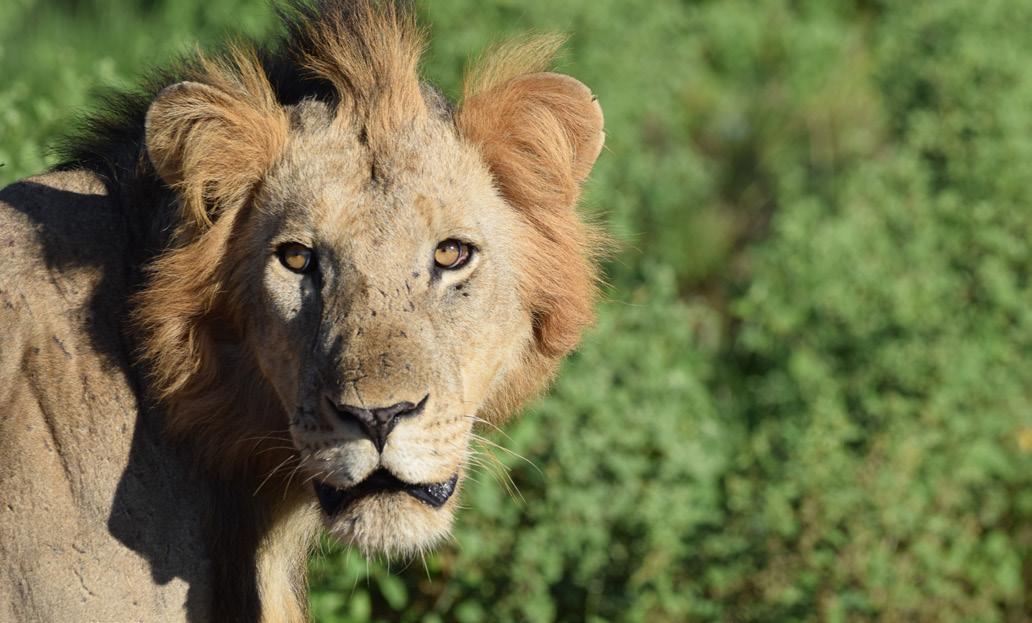
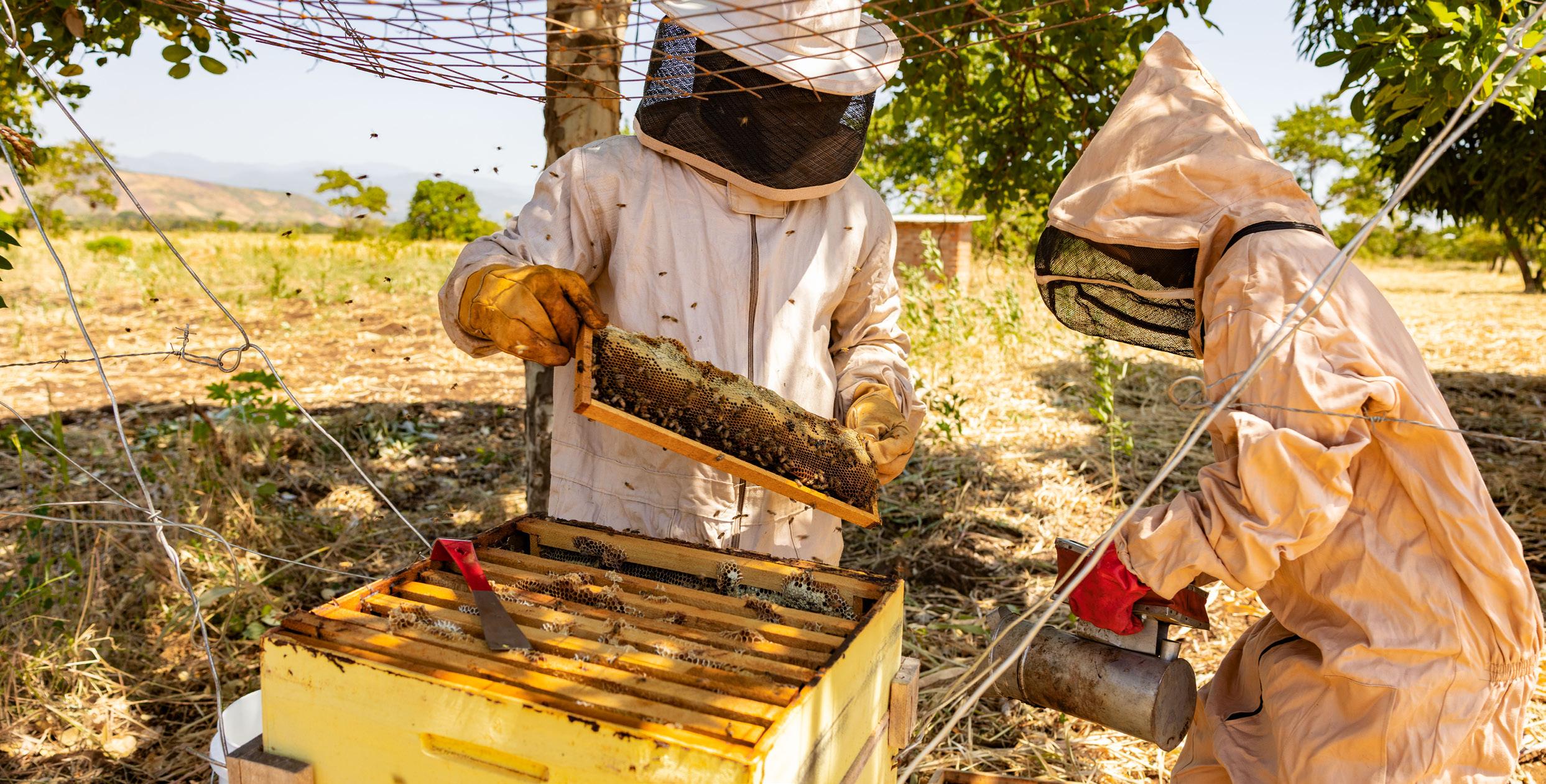
SAVING MERU’S GIANTS
This major Born Free project, launched in 2021, works with the local community to study and protect rare giraffes and elephants in the Meru Conservation Area. Our innovative solutions include beehive fences to protect crops. Elephants are afraid of bees and honey helps supplement income.
In 2024-25, our team covered 4,366 km over 88 days monitoring species. We added 54 males and 33 females to our elephant database, bringing the total number we have identified since the programme began to 426 individuals. We identified and documented an additional 181 individual giraffes this year, so our giraffe database now comprises 535 individuals. To protect giraffes, our Twiga* Team conducted 226 foot-patrols in 2024-25, covering 940km, removing 493 snares, of which 456 (92%) were active. In total, since we began de-snaring, our team has covered 2,000 km and removed 1,635 snares.
During the year we recorded 174 human-elephant conflict events, with 111 of these (64%) involving crop-foraging. To address this, we constructed ten more ‘beehive fences’, so we have a total of 18 beehive fences on 18 farms across four locations, comprising 246 hives. Of these, 57 (23%) are currently occupied by bees. We distributed 82 more human-elephant conflict mitigation toolkits (400 have now been distributed), and conducted training sessions for 270 participants. Farmers have begun to try out different elephant deterrent tools, such as chilli bricks, noise deterrents, night guarding, and a smelly repellent made from chilli, garlic, ginger, cow dung (or any other dung) and rotten eggs.
In 2024-25, we supported Kenya Wildlife Service to protect rhinos in Meru National Park and to celebrate World Rhino Day. Alongside county representatives, partners and students from secondary and primary schools, we planted trees at the rhino sanctuary base, participated in clean-up activities and helped deliver awareness-raising programmes to schools and community members. Over 100 black and white rhinos live in The Rhino Sanctuary, inside Meru National Park, where they are protected by rangers.
*Swahili for giraffe
VILLAGE SAVINGS AND LOAN ASSOCIATIONS (VSLAS)
In Amboseli and Meru, our Community Engagement team has been helping local people establish VSLAs – a group who save together and take small loans. VSLAs help create the necessary conditions for conservation, serving as a platform for involving communities in conservation efforts, establishing trust, and providing opportunities for people, especially women, to diversify their livelihoods. This year, we established an additional 18 VSLA groups in Meru, leading to a total of 34 in Meru and involving 386 members in total, as well as 39 groups with over 800 members established last year in Amboseli.
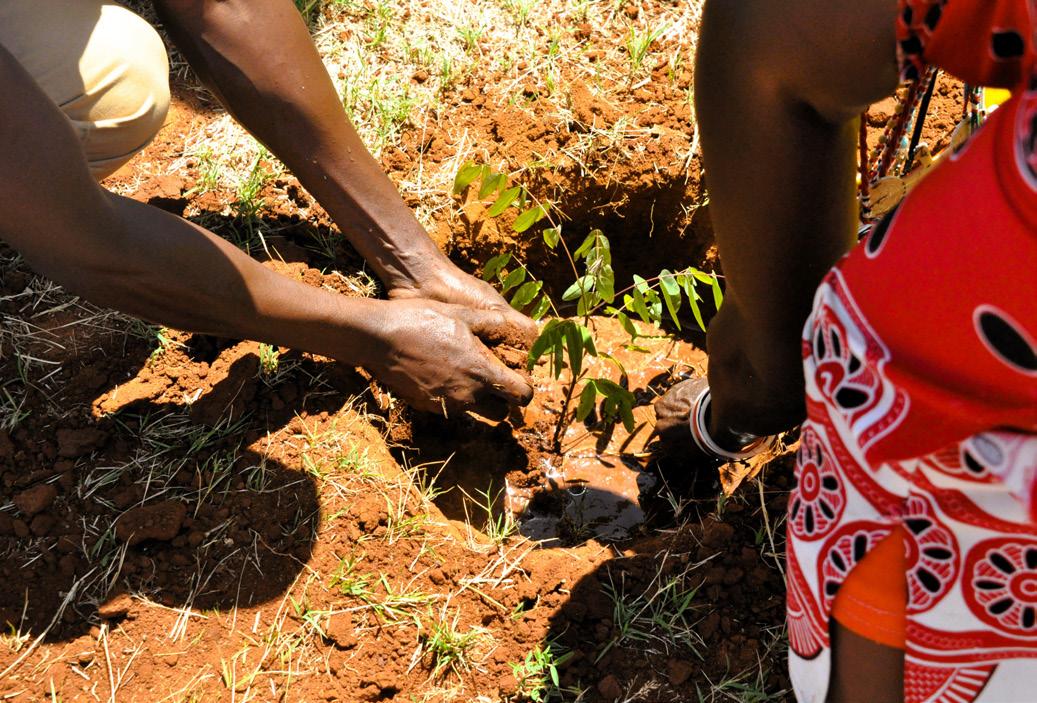
TREE PLANTING
Globally, reforestation schemes plant trees to capture carbon, maintain a healthy atmosphere and restore a balanced ecosystem. Planting the right trees in the right places can bring significant benefits. Born Free has supported the community in planting over 1,000 waterfriendly seedlings in the Mporoko water catchment in Meru County on World Wetland Day, 2 February 2025. This is supporting the community to move towards sustainable water conservation in a vital local wetland and is part of a wider water conservation project which aims to engage community members with workable, local solutions to wildlife and habitat challenges.
AMBOSELI TRUST FOR ELEPHANTS (ATE)
Our partner ATE, supported by Born Free since 1992, continued to monitor Amboseli’s elephants, the world’s longest continuous elephant research programme. Their in-depth research gives incredible insights into elephant behaviour. They can now recognise and collect demographics on 2,000 individuals – this includes sightings, births, deaths, fertility cycles and mating. They carried out an impressive 484 family census’ in 2024. A male, Esau, who was collared and had injuries treated in March 2024, was recorded in February 2025 being in musth (a surge in reproductive hormones). This is a strong indication that he is in excellent physical condition.
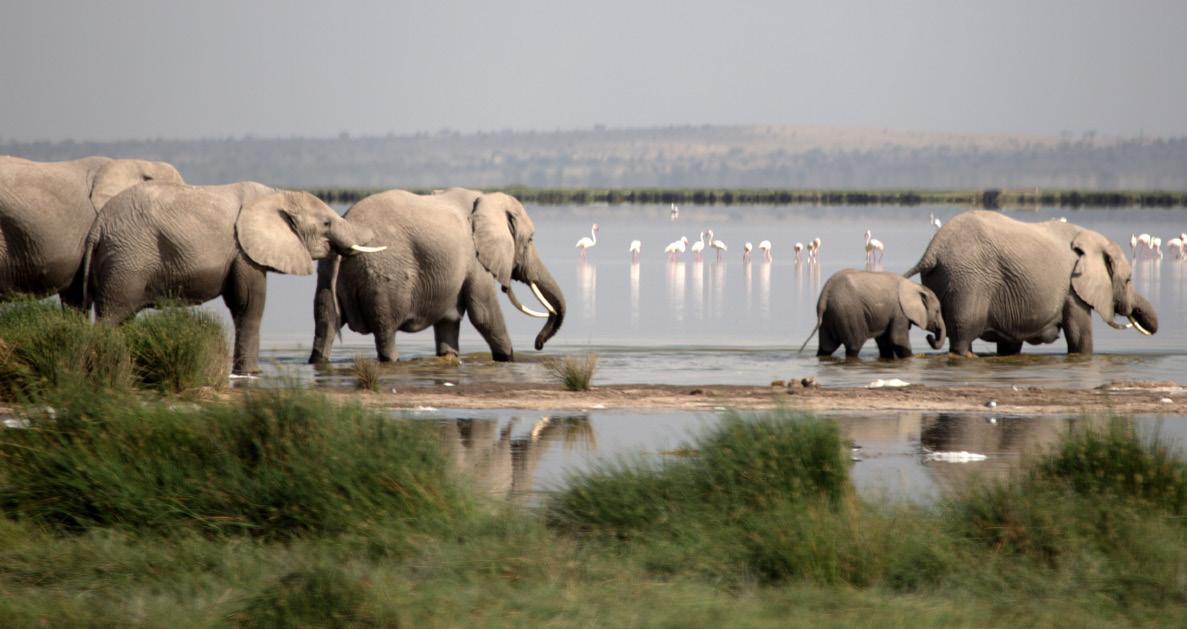
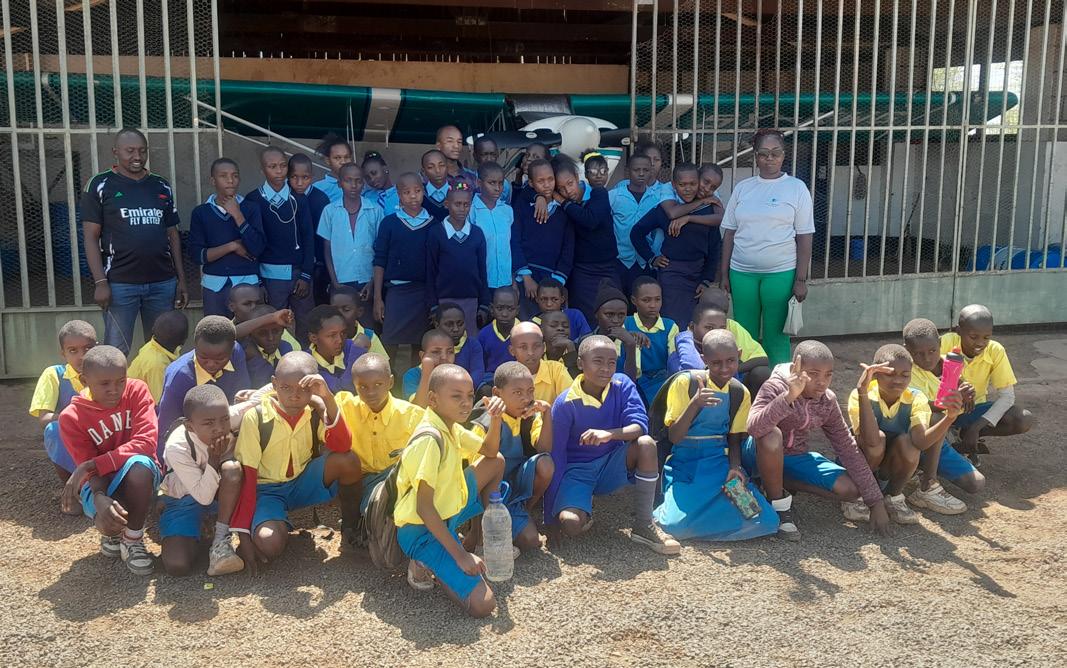
SCHOOL ECO-TRIPS
Born Free ran eco-trips for four partner schools in Meru and two partner schools in Amboseli, reaching a total of 337 students, along with 22 club patrons. Unfortunately, prior to their involvement, nearly all our students only had negative experiences of wildlife through crop destruction by elephants, loss of livestock by predators or the fear they feel when such incidents occur. Therefore, seeing and learning about wildlife in a non-threatening environment helps them develop the wonder and awe that may inspire them to take steps towards positive conservation.
Students come away with greater knowledge of the actions they can take to protect wildlife at school or home after the eco-trip (compared to a control group). This was strongest for students from Kisimani Primary School (Meru), where 89% of students’ scores increased (compared to 57% for all intervention groups and 21% for control groups). This goes side by side with our long running Kenya conservation club and community engagement programme activities, which benefit hundreds of students and thousands of community members each year.
WATER CONSERVATION
In October 2024, we again teamed up with the Water Resource Authority, the community of Ngaya-Murera Water Resource User Association, and various stakeholders, for a five-day Sub-catchment Management Plan development workshop in Meru. This community experiences a lot of conflict with elephants due to water shortage and other factors, and this plan helps the community manage their resources effectively, ensuring more sustainable and equitable sharing. This Plan will benefit over 160,000 members of the wider community, as well as countless wildlife species found within the neighbouring National Park. Adopted in March 2025, this plan is now ready for implementation by the community over the coming ten years.
OUR WORK IN ETHIOPIA
In 2009, Born Free opened Ensessa Kotteh (‘animal footprints’), our Wildlife Rescue, Conservation and Education centre on an idyllic 77-hectare site about 25km southwest of the capital, Addis Ababa. It is Ethiopia’s first and only wildlife sanctuary. We work together with the Ethiopian authorities to rescue cheetahs, lions, and other wild animals in need which have been confiscated from illegal trade or ownership, orphaned or injured, returning them to the wild where possible, or providing lifetime care in spacious, natural habitat enclosures, enhanced by regular environmental enrichment. The centre has an education outreach programme which offers learning for local schools, nature clubs, colleges and universities.
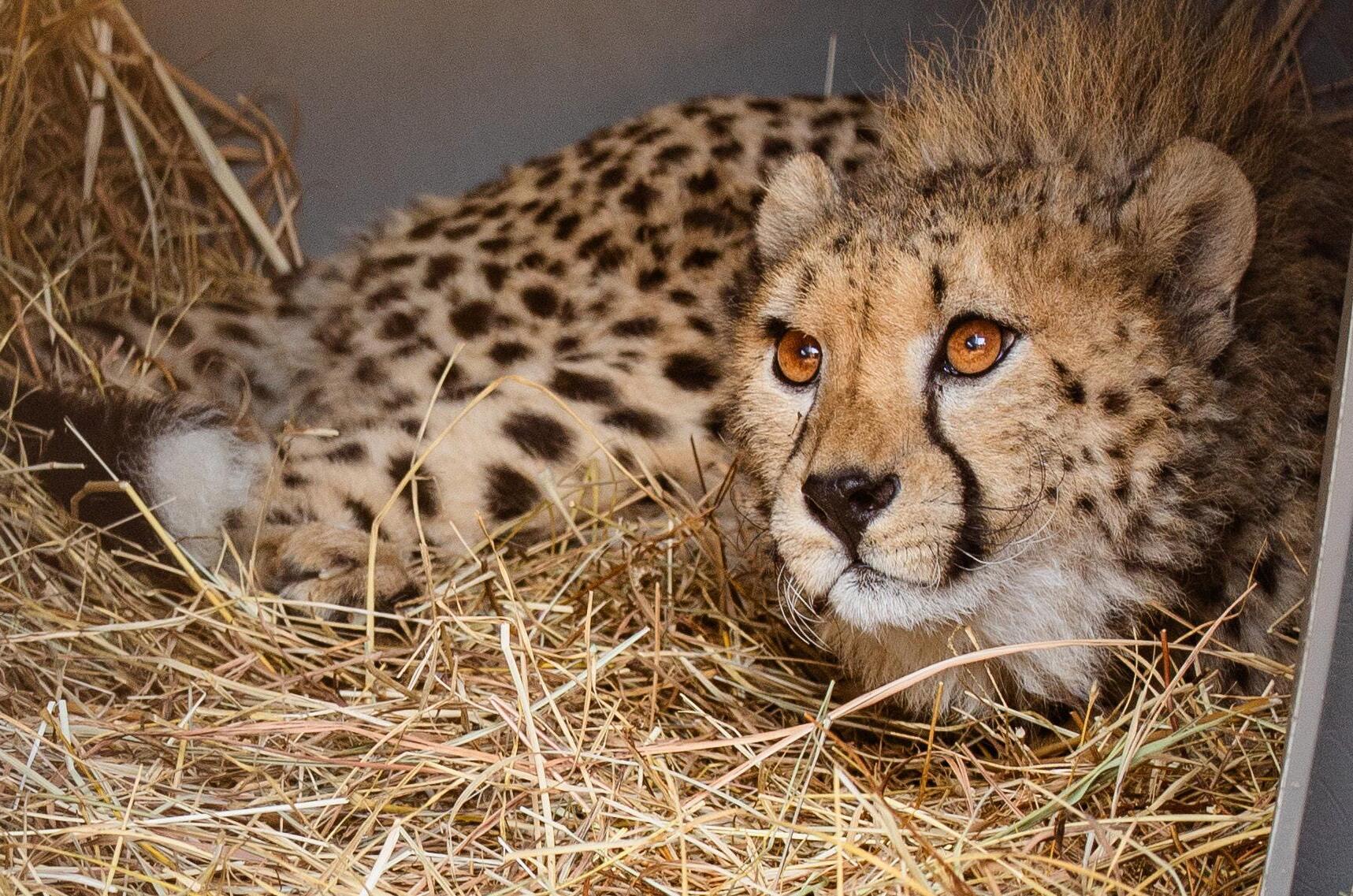
ANIMAL RESCUES
Our dedicated sanctuary team, working in partnership with the Ethiopia Wildlife Conservation Authority (EWCA), rescued ten animals in need in 2024-25. We currently have 177 rescued animals in our care at Ensessa Kotteh, having rescued a cheetah cub, one young reedbuck, seven tortoises and a juvenile grivet monkey this year.
The female cheetah cub, named Blue, had tragically been hit by a car in Yabelo Wildlife Sanctuary, a protected area in southern Ethiopia. Blue sustained severe injuries, including a badly broken leg. Her sibling lay dead beside her, and her mother was nowhere to be seen. Taken to the safety of Ensessa Kotteh in August 2024, under the diligent care of our veterinary team and animal carers, Blue has progressed well but her road to good health has been complicated. Slowly but surely, we hope she will continue to get stronger as she recovers from her ordeal.
In August 2024 we also rescued a young male reedbuck who was orphaned in Bale Mountains National Park. Named Saudi, this vulnerable infant was taken in by a woman in the local community. The caring community member looked after Saudi in her home for the next five months, bottle feeding him cow’s milk while she awaited assistance from the authorities. When we were alerted to the situation, we knew we could help. Saudi now lives at
Ensessa Kotteh, next door to an older female reedbuck. We plan to introduce the pair, in the hope they will live happily together.
We rescued seven tortoises (three species – Bell’s hinged, African spurred, and leopard), confiscated by EWCA after being kept illegally. In July 2024, a tortoise was taken from a former Embassy property in the capital Addis Ababa, while six more were confiscated from a hotel in Bishoftu town. We also rescued a young female grivet monkey who was confiscated by EWCA having been kept illegally, alone and in poor condition, by a hotel in Bishoftu town. They are now all being cared for at our centre.
MAINS POWER
Since its inception Ensessa Kotteh has operated without mains electricity, relying on solar panels to generate some electricity. For many years we have wanted to connect to the national grid to ensure a reliable source of power for key operations, including the veterinary clinic.
In February 2025 we installed a transformer and overhead wires bringing mains power onsite, located approximately 650m from the main road. In 2025-26, we hope to complete this project, by running power wires underground from the transformer to priority areas (including the vet clinic, garage and store, and food preparation area) and create a muchneeded cold storage area and meat preparation area.
This significant infrastructure would transform operations and make a huge difference to the resident rescued animals and our team who provide such dedicated care.
NEW EQUIPMENT AND
TRAINING
We were able to equip our veterinary clinic at Ensessa Kotteh with a portable x-ray generator and accompanying Digital Radiography system thanks to a generous supporter. X-rays can now be taken on site, even inside animal enclosures, and the x-rays can be developed in real time. Being digital, the x-rays can also be easily shared between our Ethiopia and UK team, and a wildlife specialist vet who provides veterinary support and training.
Our veterinary team received training to use the new equipment and further training on diagnostic techniques and species-specific health screening. Our Veterinary Technician, Hailu Dagnachew, qualified for a Bachelor of Veterinary Science (BVSc) degree from the University of Ambo, his course proudly funded by Born Free. His new qualification will make a world of difference as he works closely with our Centre Veterinarian, the Animal Care Team Leaders, and Head of Centre, to ensure the health and wellbeing of our rescued animals.
RABIES VACCINATIONS
Following our community survey, conducted in February 2023, we have been working with the Holeta and Wolmera Veterinary Offices around Ensessa Kotteh to develop a rabies vaccination programme for dogs within the local community. The aim is to decrease the prevalence of rabies disease impacting humans, domestic animals and wild animals around the centre, and to provide opportunities to engage with community members on wildlife and environmental issues.
Across 17 days in February and March 2025, a trial was carried out in 11 villages, reaching 1,589 people with Born Free distributing wildlife protection and rabies information via 1,600 leaflets, and supporting the vaccination of 1,910 dogs.
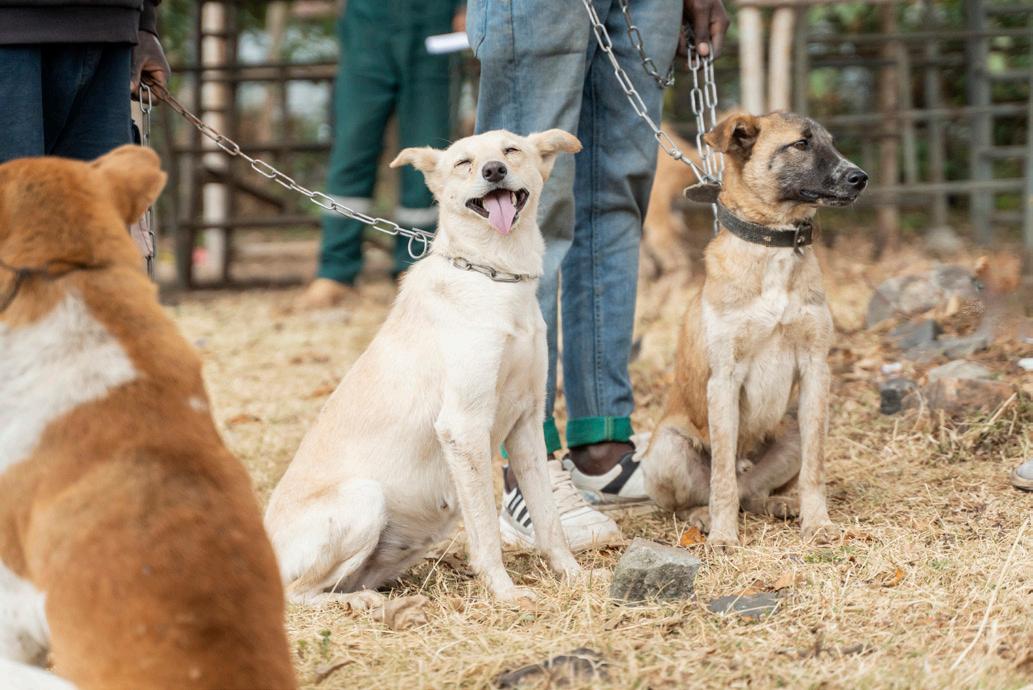
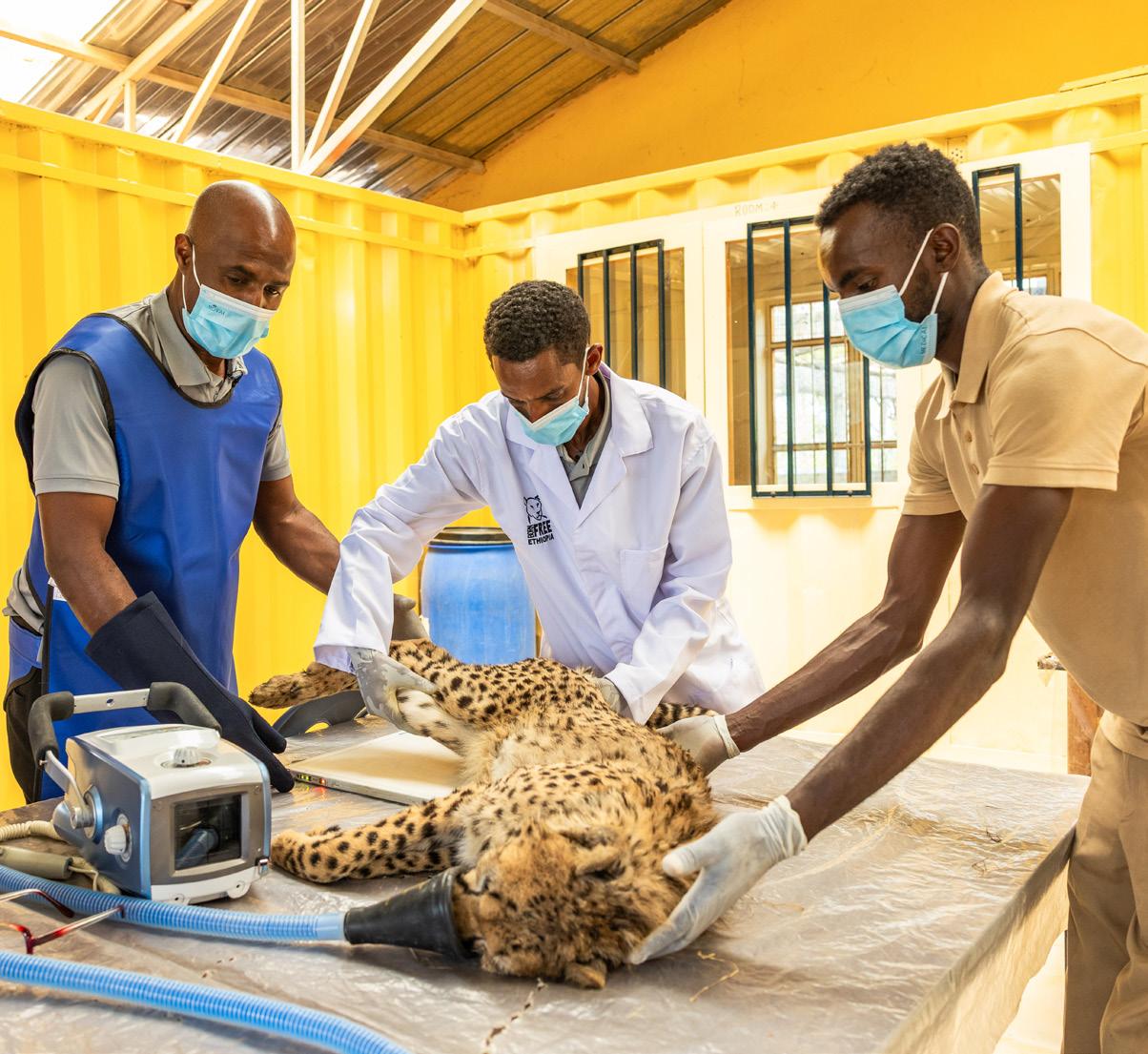
CLEAN-UP CAMPAIGNS
A team of 291, made up of 20 people from Sadamo community, 21 Born Free staff members and 250 military trainees from a local division, collaboratively conducted a cleaning campaign outside of Ensessa Kotteh. By reducing waste material near the road, we can reduce the risk to wildlife of both consuming plastic and road-related animal deaths. During this joint clean-up campaign 100 sacks, containing an estimated 3,500kg of dumped waste, were removed. The area will now be monitored by both Born Free and the local military institution.
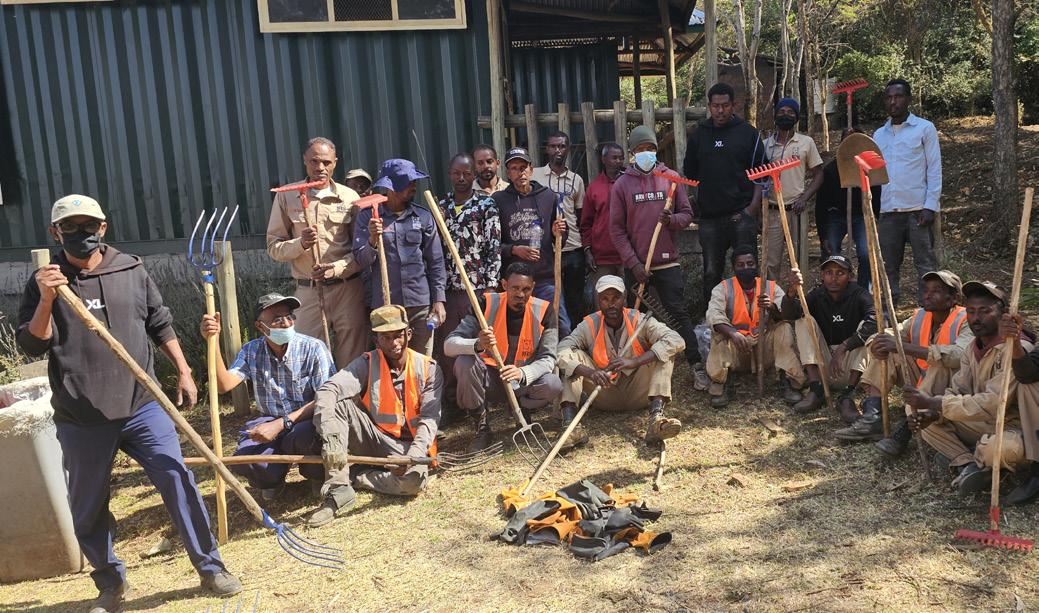
SCHOOL CLUBS
Long-term engagement with our local partner schools continued. Encouraging a new generation of wild animallovers, our work reached 175 pupils from five partner schools with regular environmental education, tree planting and centre visits.
© Peter Ndung’u
Ensessa Kotteh vet Dr Sisay (left) and our team gently prepare Blue for an x-ray, to check how her bone density is improving
OUR WORK IN CAMEROON
Born Free has supported wildlife rescue and care in Cameroon for many years, working with the Limbe Wildlife Centre, and, in 2022, launching our own major conservation initiative, ‘Guardians of Dja’.
Through this programme, we support local communities and work with them to protect rare gorillas, chimpanzees, forest elephants, pangolins and countless other species in the vast tropical rainforests of the Dja landscape, a remote and largely intact forested landscape in southeastern Cameroon.
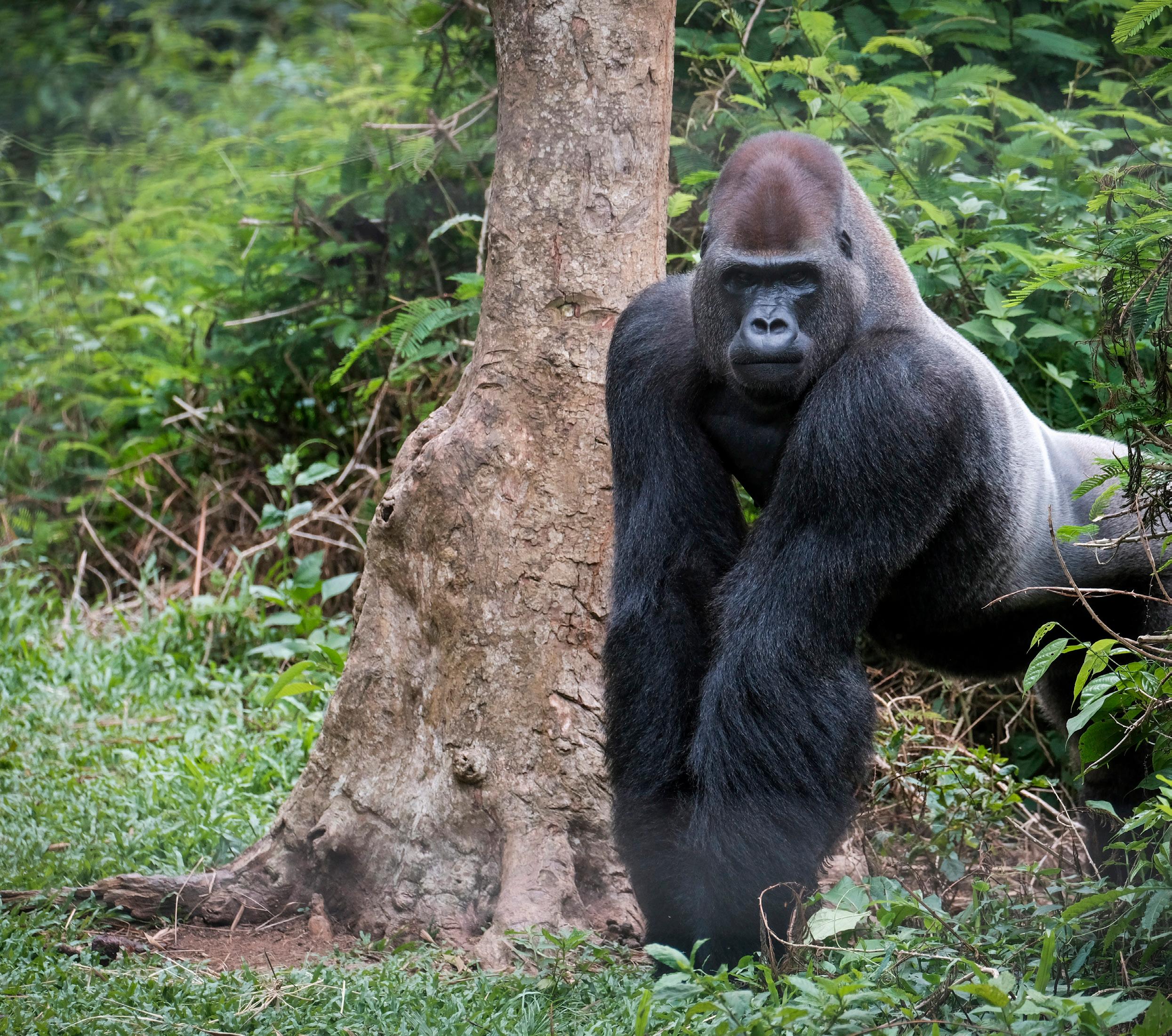
SUSTAINABLE AGRICULTURE
Guardians of Dja helps provide local communities with the skills and motivation to develop a reliable sustainable trade, such as eco-friendly crop production, while reducing pressures on the forests and wildlife for income and protein.
In 2024-25, 71 trainees participated in Born Freesponsored cocoa agroforestry training schemes at the local Agroforestry Training Centre and six graduated. This brings the total to 196 trainees since our programme began, with 17 having graduated to set up their own cocoa or sustainable oil palm plantations. As part of the
programme’s expansion into three more villages, 7,500 oil palm seeds were planted into nurseries – once sufficiently grown, the seedlings will be distributed to 160 households across three villages to launch a sustainable, small scale yet reliable trade for these farmers, as an alternative to poaching.
COMMUNITY OUTREACH
In 2024-25, 79 primary school pupils received weekly conservation lessons, bringing the number of children supported in this Born Free-supported local school to 248 since the programme work began. The team celebrated three national days, promoting wildlife and conservation to more than 6,000 people, with an additional focus on 1,400 youth through the annual football and handball tournament.
TREE PLANTING
In 2024-25, 160 households from three villages were supported and empowered to restore forest. A total of 5,100 agroforestry tree seedlings were distributed to farmers which they planted out on a total of 50 hectares of degraded land. This adds up to 126 hectares of forest being reclaimed with the planting of 12,720 agroforestry trees since our programme began in 2022. A total of 65 farmers were taught how to make and use compost from household and natural waste, which will be used to cultivate crops on fallow areas and reduce rates of deforestation.
GREAT APE GUARDIANS
We continue to support our locally-employed team of 12 Great Ape Guardians (GAGs). We also trained an additional 12 GAGs in three more villages we have now expanded into. With our support, 15 anti-poaching patrols were carried out by the wildlife authorities, 92 poachers’ camps were destroyed and 96kg bushmeat (meat from wild animals) confiscated. This brings the total to 30 patrols, 182 camps destroyed and 1,074 kg of bushmeat confiscated since our work began in April 2022.
APE ACTION AFRICA
At the start of the year, Born Free began working with Ape Action Africa, whose core mission is to rescue, rehabilitate, and provide long-term care of endangered primates. Originally founded to improve conditions in Yaoundé Zoo, they realised the urgent need for a place to care for orphans, and created Mefou Primate Sanctuary, set in 1000ha of rainforest in southern Cameroon.
With our help, they now care for over 292 primates including 26 western lowland gorillas, 120 chimpanzees, and 146 monkeys, many rescued from the illegal wild pet trade. In 2024-25, new arrivals included two infant chimpanzees, both only three months old, and Barbie, an 18-monthold gorilla with bullet fragments in her skull. All received excellent care and are settling in.
LIMBE WILDLIFE CENTRE
Supported by Born Free since 2004, Limbe Wildlife Centre works to combat the illegal wildlife trade, provide lifetime care for rescued chimpanzees and rehabilitate confiscated grey parrots back to the wild. They play a crucial role rescuing and rehabilitating wildlife affected by the illegal bushmeat and pet trades, alongside delivering an extensive local outreach and education programme.
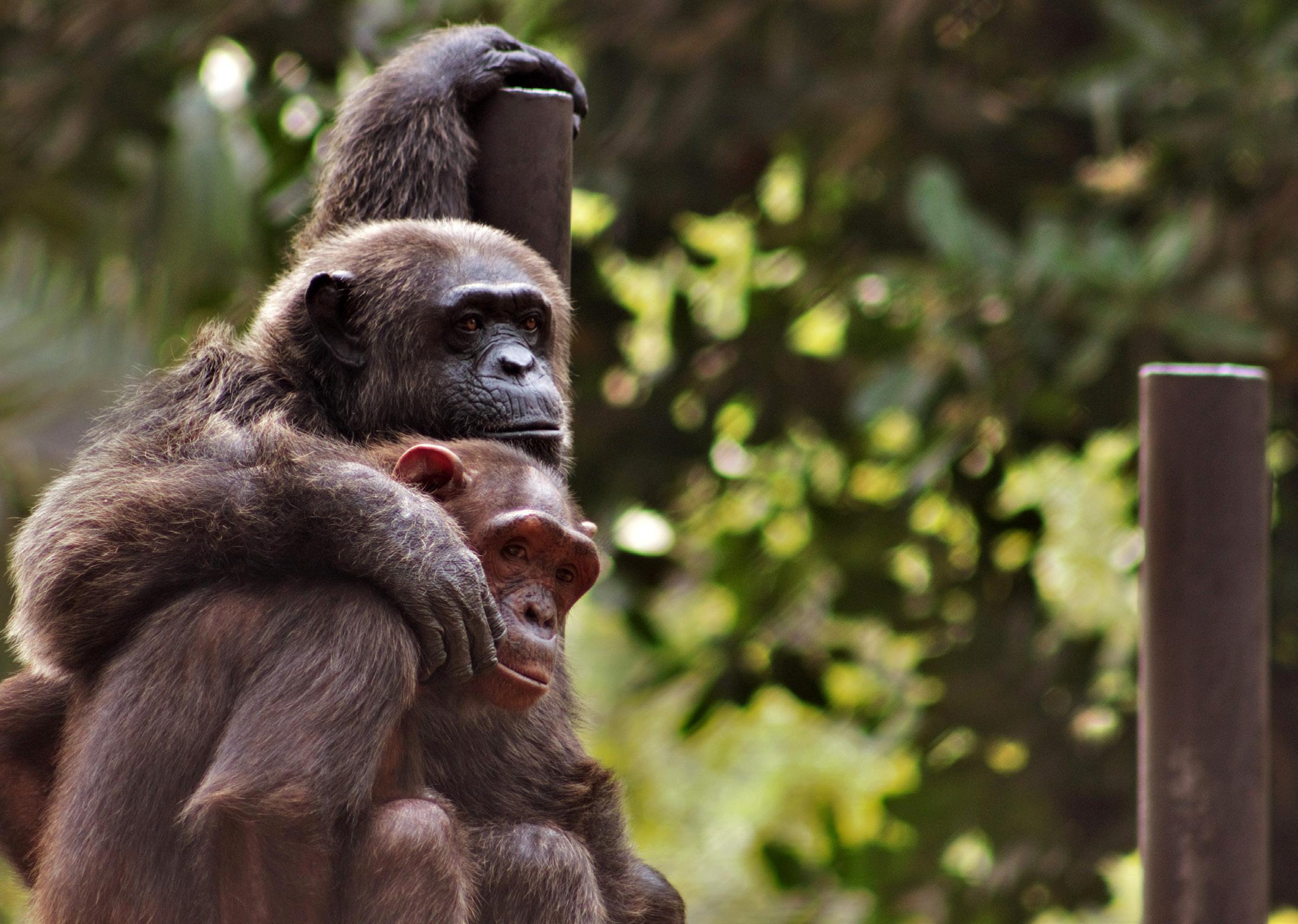
The Centre’s dedicated team currently care for hundreds of confiscated animals, including Mbolle-Annalies, a young chimpanzee, thought to be an ex-pet, found with deep wounds from a machete attack and now on the road to recovery. This year, funding from Born Free helped cover care costs for Chinoise, a rescued chimpanzee, as well as support the salary of her two primary carers, senior staff, Victor and Andreas.
OUR WORK IN SOUTH AFRICA
Since 1997, Born Free has supported the provision of lifetime care for lions and leopards rescued from zoos, circuses, private ownership, and other captive facilities at Shamwari Private Game Reserve in the Eastern Cape. We operate two Born Free sanctuaries, with large bush enclosures and carefully managed visitor centres.
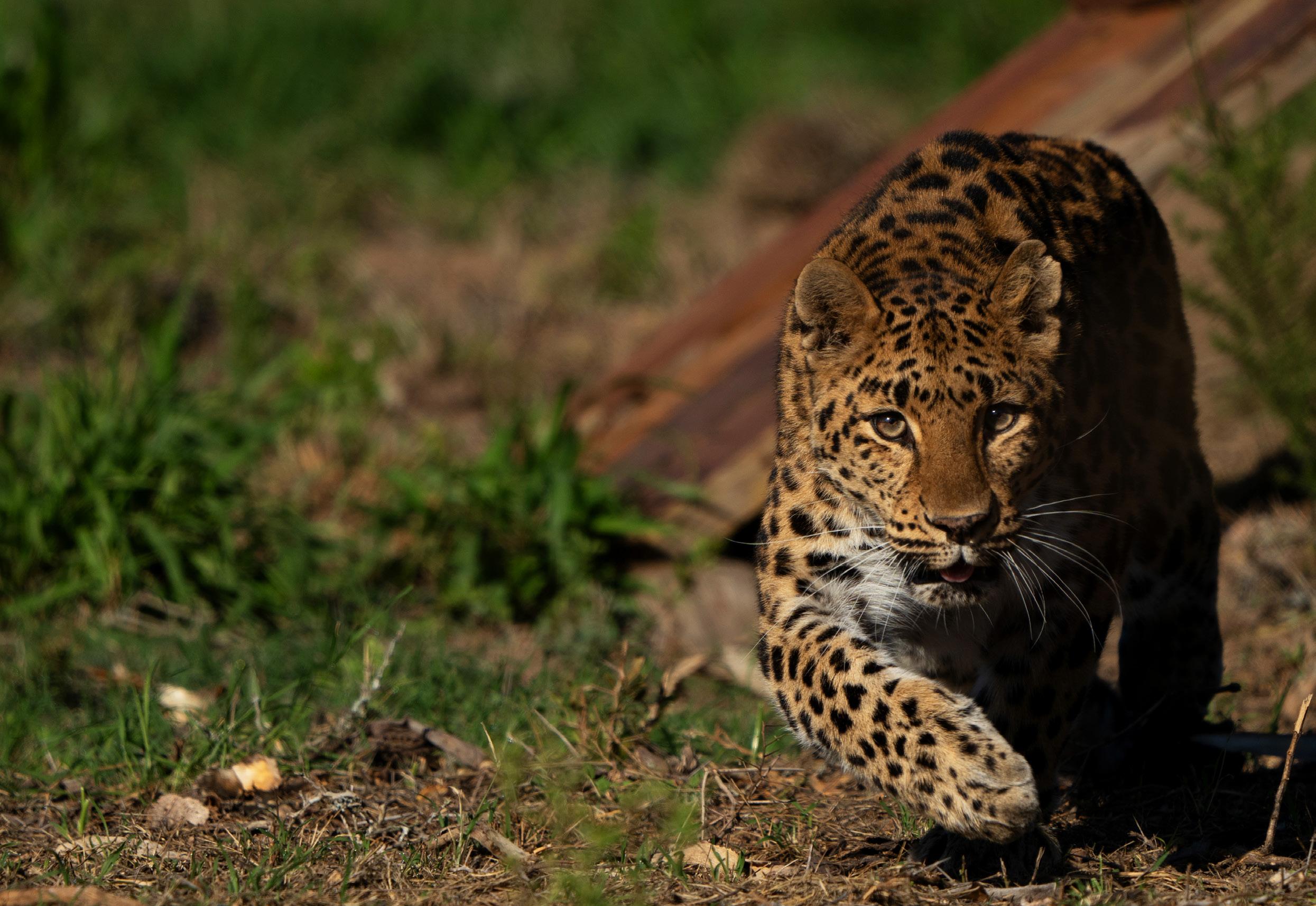
BIG CAT RESCUE
In 2024, our sanctuary at Shamwari was officially recognised for its exceptional standards by the Global Federation of Animal Sanctuaries (GFAS). This is the first big cat sanctuary in South Africa to be awarded accredited status by GFAS, the only internationally-recognised organisation that sets standards to help identify legitimate animal sanctuaries.
Since Born Free was founded in 1984, we’ve given 52 rescued big cats a safe and permanent home at Shamwari, and this recognition is the result of many years of hard work from our dedicated team – both in South Africa and in the UK.
Leopards Alda and Ginny, both victims of the illegal wildlife trade, were relocated to Shamwari in May 2024. In 2017, they were confiscated from an illegal breeding facility in Śrem, Poland. Experts from Belgian wildlife rescue centre, Natuurhulpcentrum, travelled to collect them. They were found in dire conditions, their coats filthy, with signs of malnourishment. Fortunately, Born Free was able to offer them a permanent home at Shamwari, where, under the care of our expert dedicated team, they have flourished.
New climbing platforms were built for our rescued lions Angela and Bellone, while platforms for lions Cersei and Ciam, King and Thea, and Zeiss the leopard, were all extended, giving even more elevated climbing and resting places. These provide additional enrichment and are used daily. Essential repairs were carried out to maintain the big cat night-houses at our Julie Ward sanctuary site.
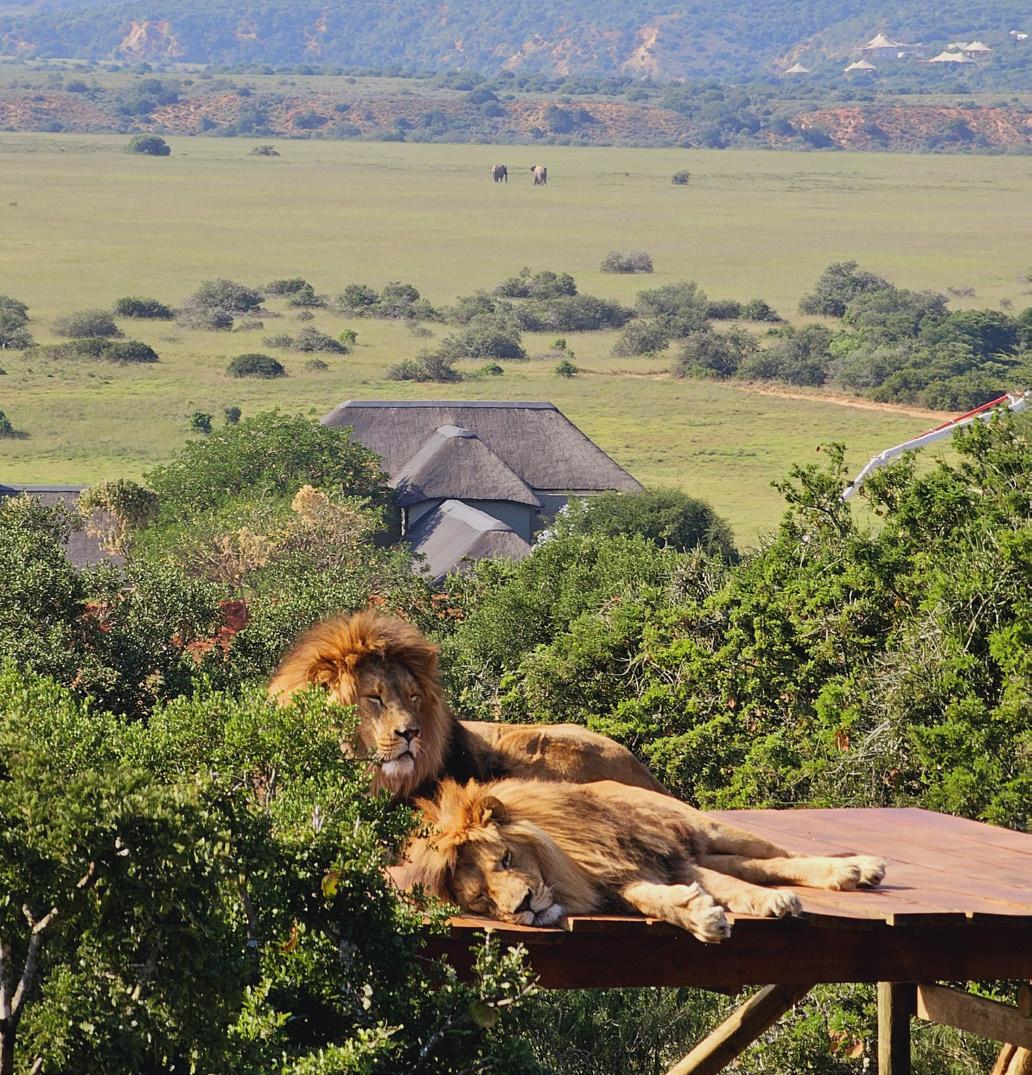
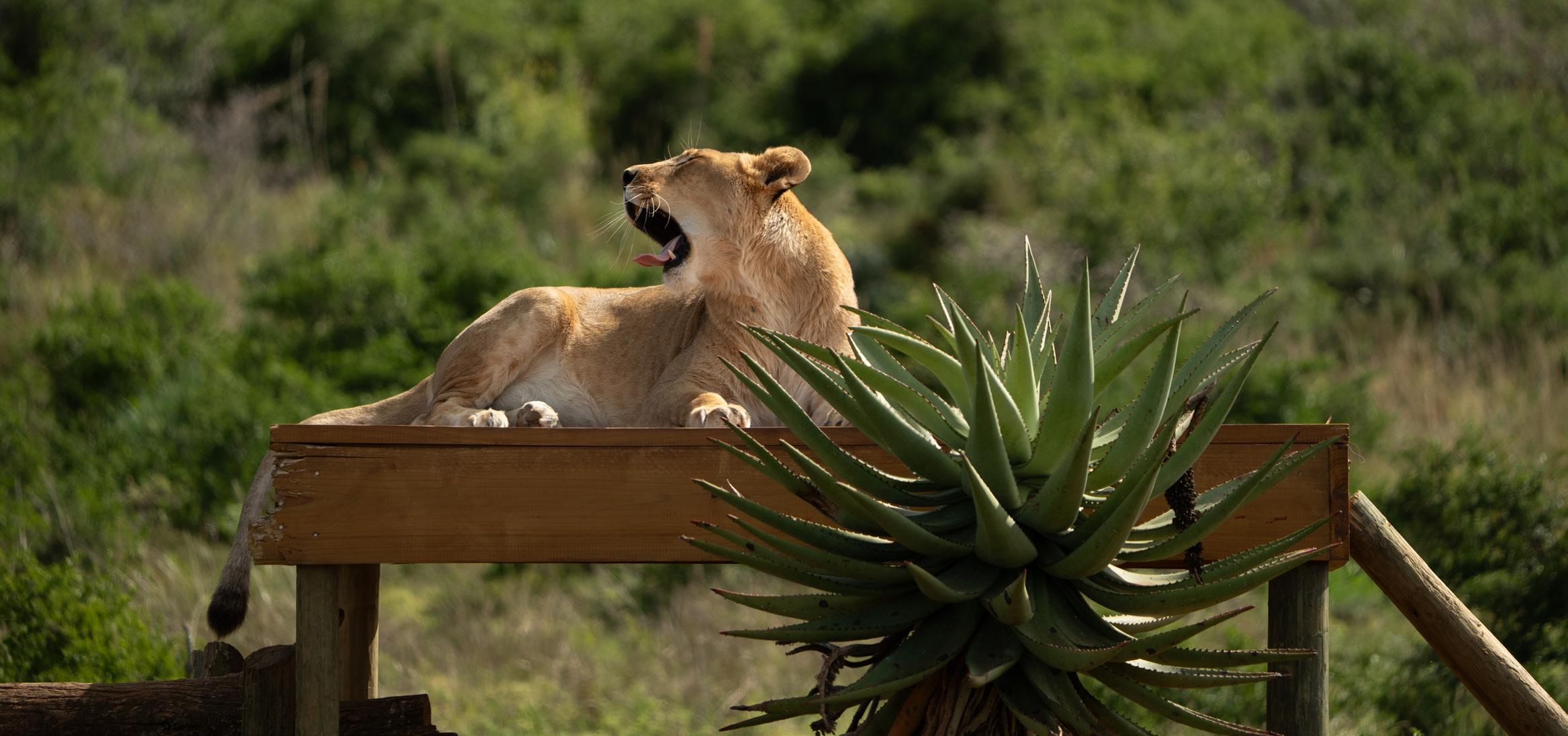
SCHOOL VISITS
We have continued to host carefully managed visits at our sanctuaries at Shamwari throughout the year. These increase knowledge and understanding of environmental problems, develop workable, local solutions, and increase positive attitudes to wild animals, both as individuals and as species. Over this period, we welcomed 900 students from 15 different schools.
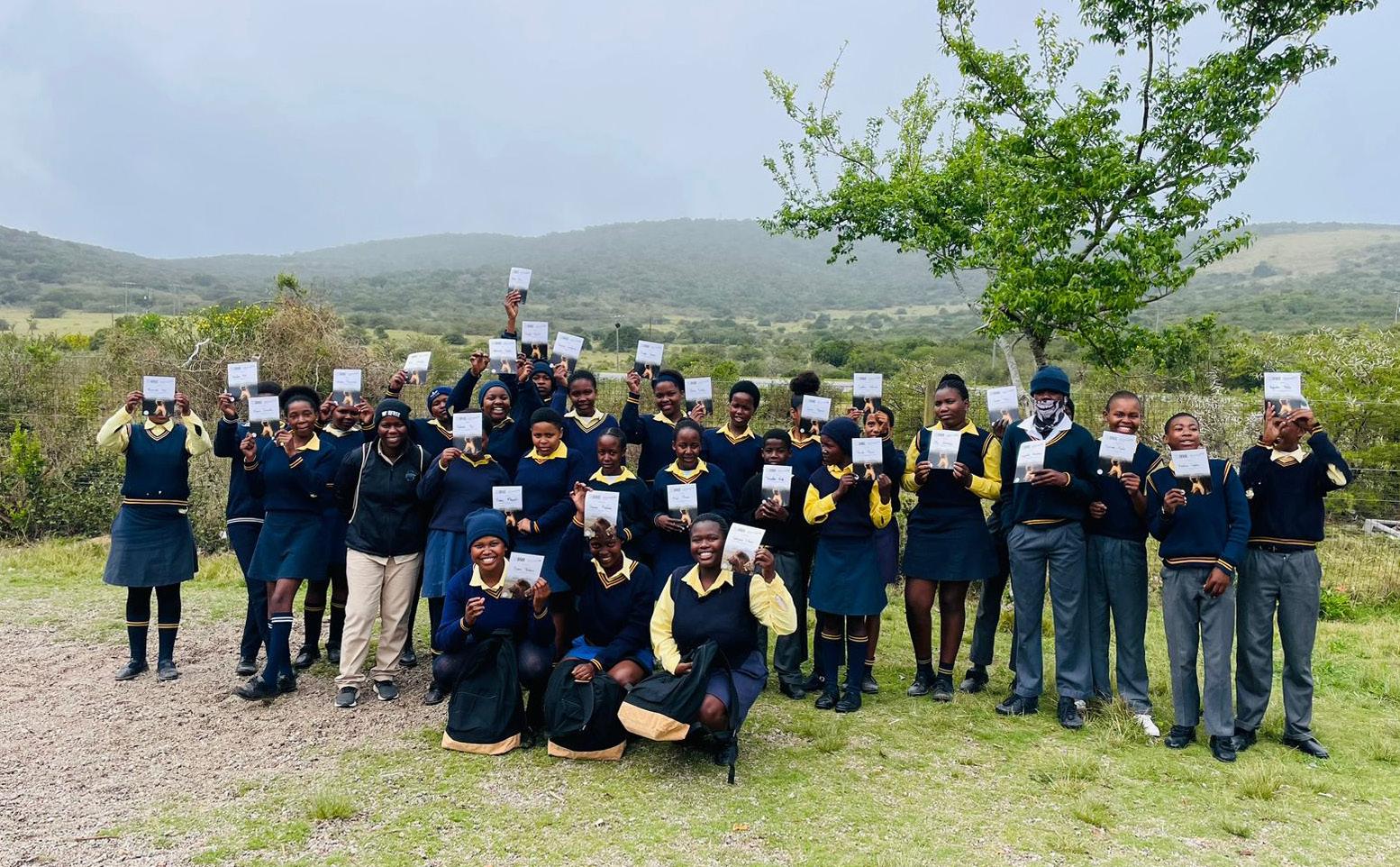
POSTER COMPETITION
On World Environmental Day, 5 June 2024, we hosted a poster competition with British Airways Holidays. Our 114 school club members were asked to showcase an environmental issue with a possible solution, encouraging students to think about local challenges. Winners either enjoyed a unique visit to our sanctuaries, or the opportunity to job shadow in different departments at Shamwari – a fantastic chance to expand their knowledge about the world of work.
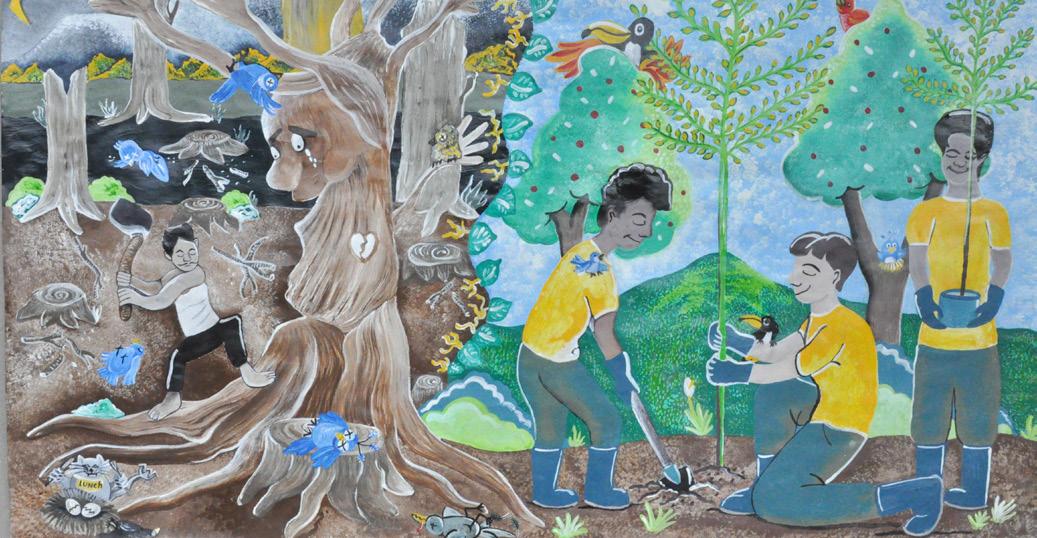
SPORTS FOR CONSERVATION
In March 2025, we held a World Wildlife Day event with the local Paterson community, to foster empathy towards nature, raise the importance of recycling, and strengthen community cohesion. Some 400 community members were involved in the day, which included a football tournament, kids’ wildlife quiz, a litter pick, and a traditional braai barbeque.
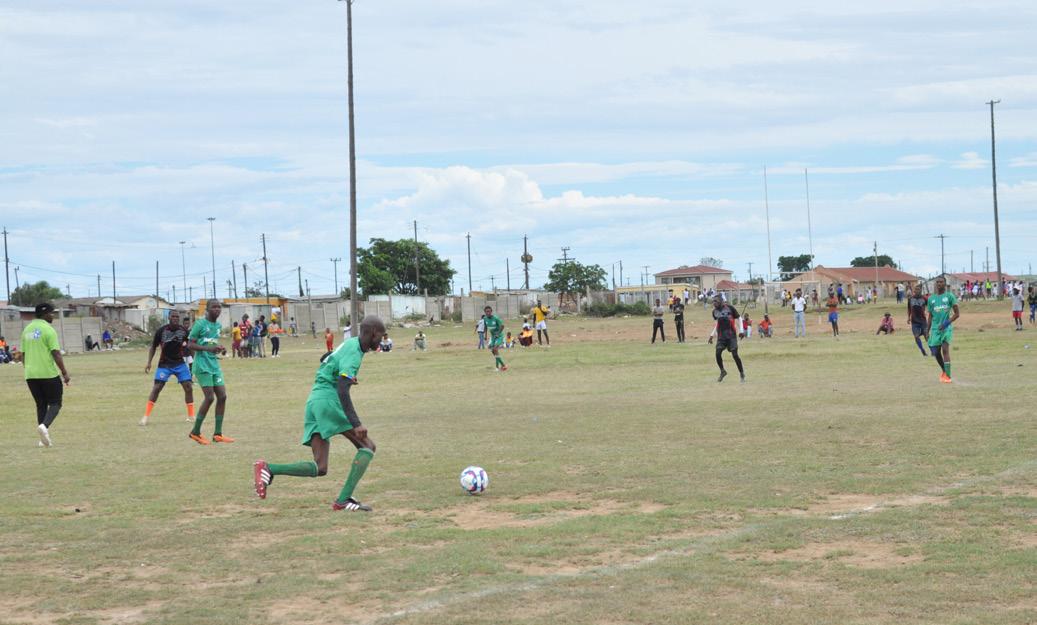
© Lyndon Brandt
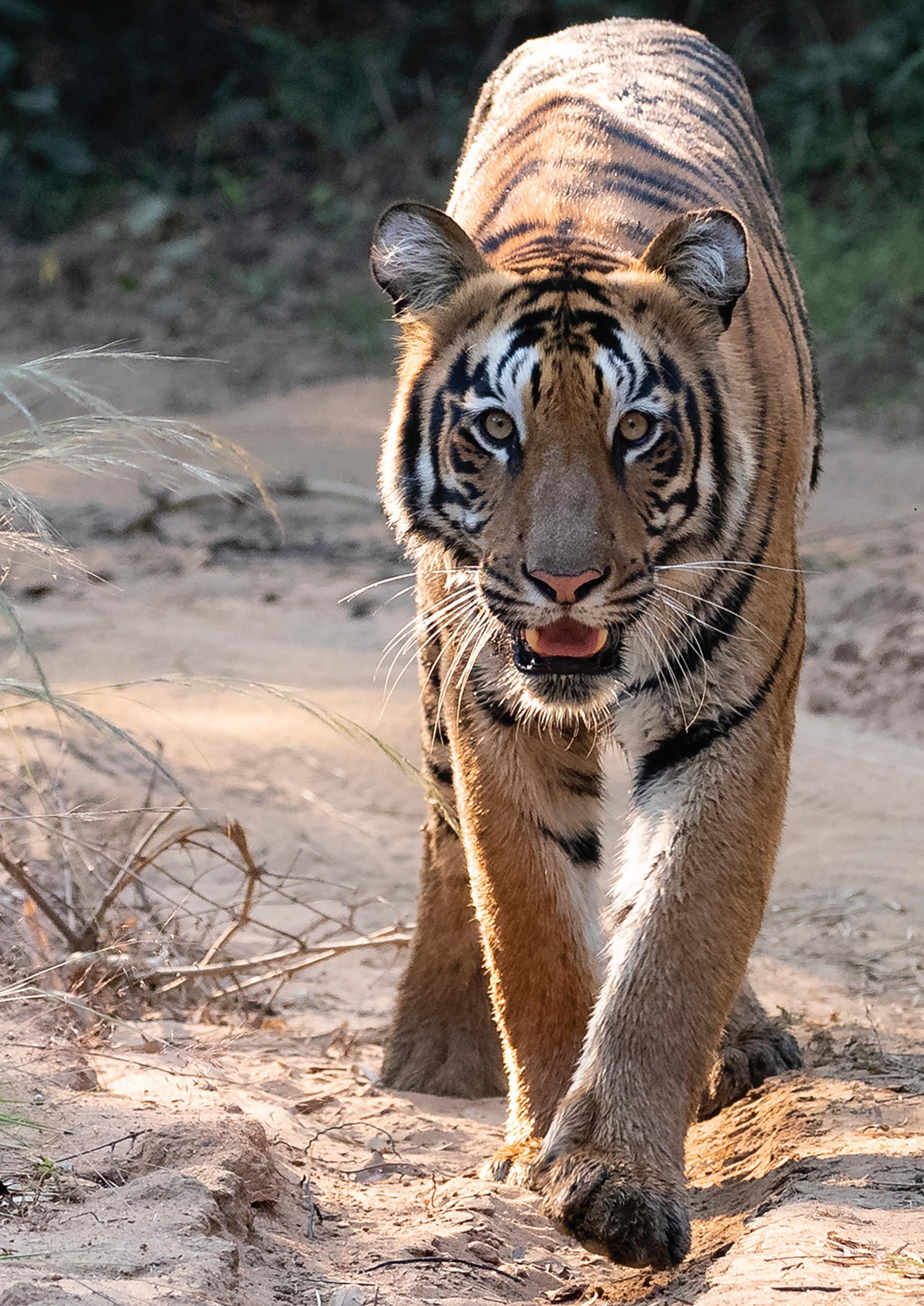

OUR WORK IN INDIA
To protect tigers in the wild, since 2004 Born Free has pioneered the coordination of an impressive network of nine local conservation organisations who deliver a range of benefits to tigers across seven reserves in central India, as well as bringing benefit to the environment and local communities
SATPUDA LANDSCAPE
TIGER PARTNERSHIP
2024 marked an incredible 20-year milestone for this network. The annual partner meeting, in February 2025, provided an opportunity for representatives to come together, this time to discuss the theme ‘Enabling coexistence: An integrated approach to wildlife conservation outside Protected Areas’.
The seminar took place in Gir National Park, India, home to the rare Asiatic lion and a successful conservation project. The group learnt more about initiatives being implemented for human-large carnivore conflict resolution, and the carnivore rescue and rehabilitation infrastructure established to reduce negative impacts on the local community.
Other activities carried out by SLTP partners in 2024-25 include the following:
• Medical care was delivered to 11,016 community members, thanks to 338 mobile health camps conducted in 65 villages by Nature Conservation Society of Amravati as part of its vital conservation outreach and community support work.
•
• 186 education programmes were delivered at 50 schools, reaching over 2,000 students in Chandrapur district in Central India by the Bombay Natural History Society. One-day nature camps for 592 students and 30 teachers from 40 schools were also held.
•
• Tiger Research & Conservation Trust’s programme reached over 2,700 individuals from 25 villages living in the buffer of Nawegaon Nagzhira Tiger Reserve, and the team delivered 25 awareness-raising workshops.
•
• The Corbett Foundation now has a total of 20 hectares of village land being used to produce some 20,000kg of green cattle fodder a year. This helps reduce the pressure of livestock grazing on forest resources and prevent tiger attacks on livestock owners in the Kanha Tiger Reserve. The project protects 326 cattle and the livelihoods of 40 households across two villages.
Meanwhile, Satpuda Foundation’s Landscape Monitoring Unit continues its important work to improve consensus, policy and action for tiger conservation across the Satpuda landscape by assisting in managing humanwildlife conflict events, supporting the deployment of India’s first AI-supported camera system for forest fire detection, and successfully distributing 500 predatordeterrent lights to farmers in buffer villages of Pench and Tadoba-Andhari Tiger Reserves.
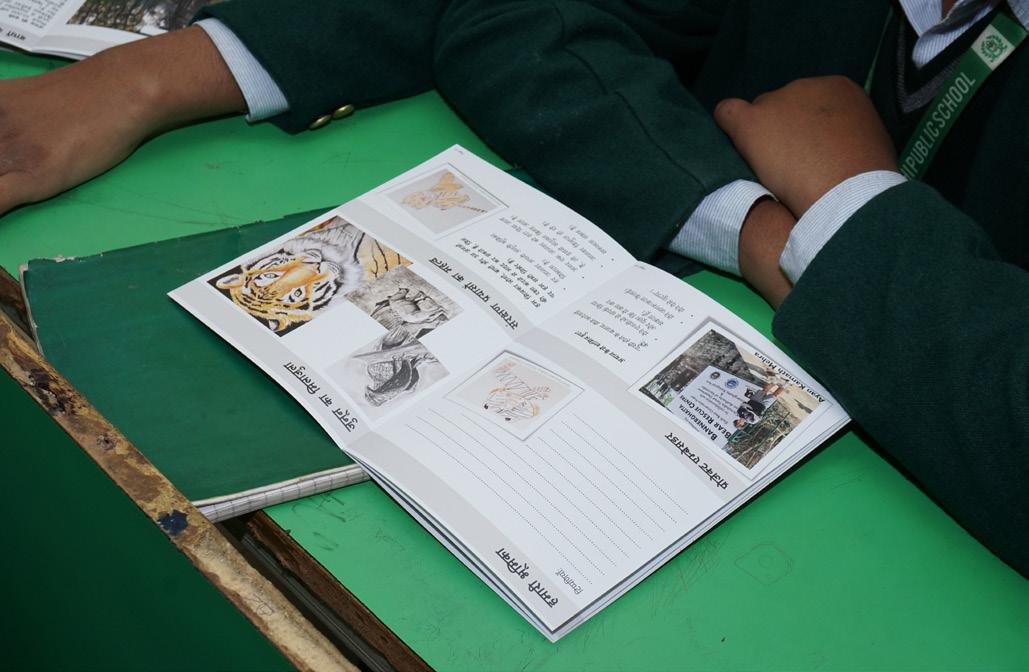
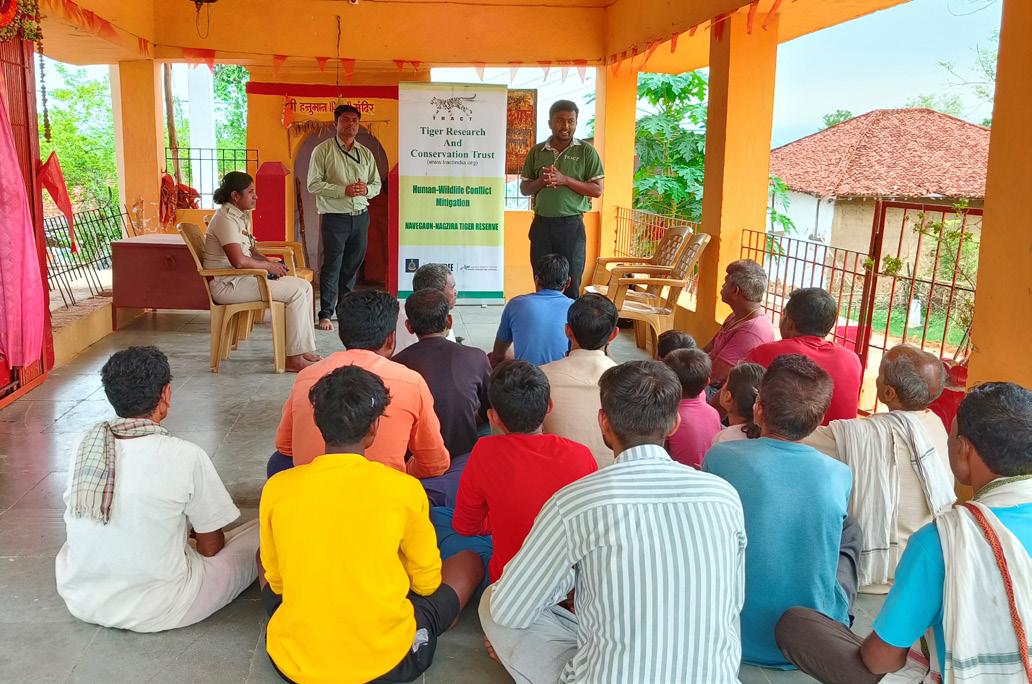
Our STLP partners in India:
• Tiger Research & Conservation Trust
• The Corbett Foundation
• Nature Conservation Society Amravati
• The Satpuda Foundation
• Bombay Natural History Society
• Conservation Action Trust
• Wildlife Conservation Trust
• Bagh Aap Aur Van
• Network for Conserving Central India
YOUTH AMBASSADOR
Born Free’s Youth Ambassador, Ayan Kamath Mehra, delivered tiger art and environmental education workshops, in collaboration with our Wildlife SOS partners. This is an initiative created by our colleagues at Drawing for the Planet, in partnership with Born Free and other wildlife organisations in India and Singapore. The workshops raise awareness of the importance of tigers and their protection. So far, the project has reached 72 pupils across two schools in Delhi, along with 977 pupils in the UK, 245 in USA and 24 in Singapore.
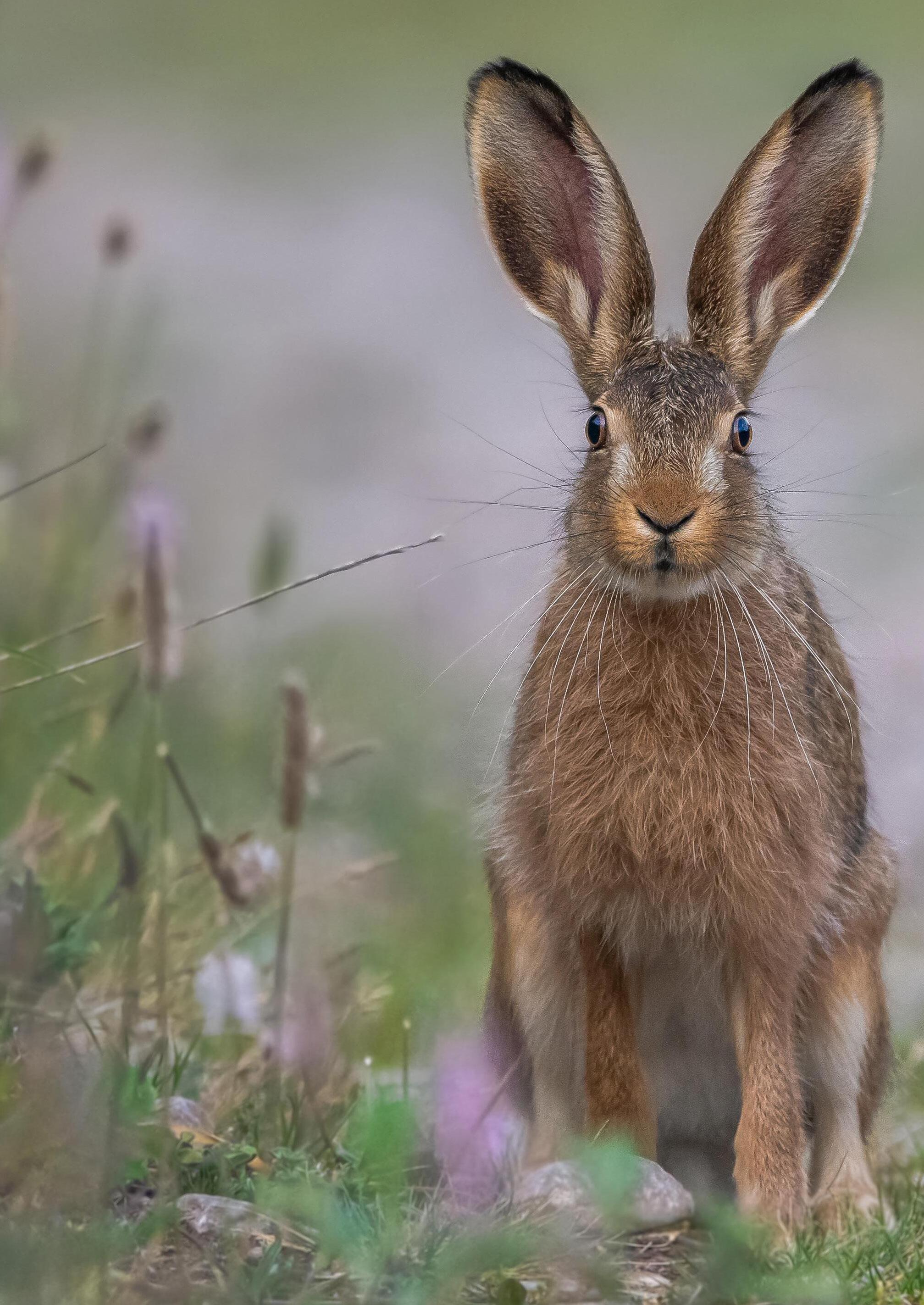

OUR WORK IN THE UK
The UK is the charity’s hub for all our policy, conservation, rescue and care, and education work, including UK-based projects such as supporting wildlife rescue, school education and policy. It provides oversight, guidance, and direction for our governance, financial management and administrative activities.
EDUCATION
Our amazing Youth and Junior Ambassadors want to make a difference for wildlife and have the power to influence positive change amongst their peers. Over the past 12 months they supported Born Free in a multitude of ways, including:
• Attending the Restore Nature Now rally in London, our joint Kill the Badger Cull peaceful protest at Westminster, our Clawing at the Cages campaign launch in London and the Hares, Closed Season event in Parliament.
•
• Lobbying their local MPs about various issues.
•
• Taking part in fundraising events, including our Walk on the Wild Side in August 2024 and the Junior Great North Run.
•
• Running and supporting workshops across the UK, India and Singapore.
•
• Recording interviews and writing content to highlight key conservation and animal welfare messages.
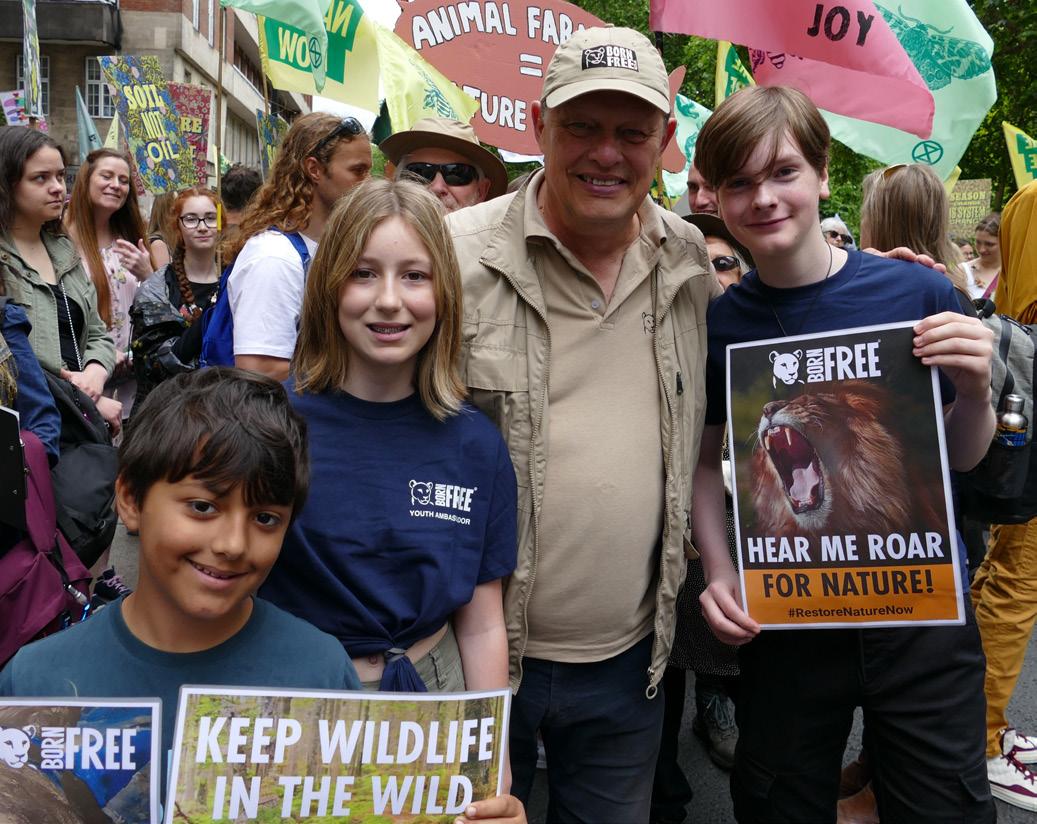
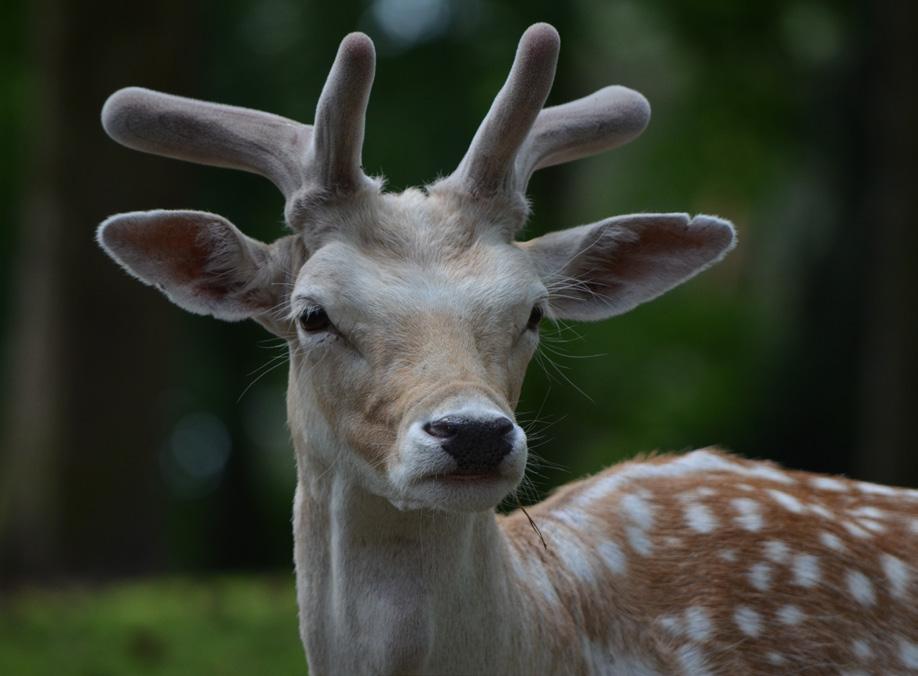
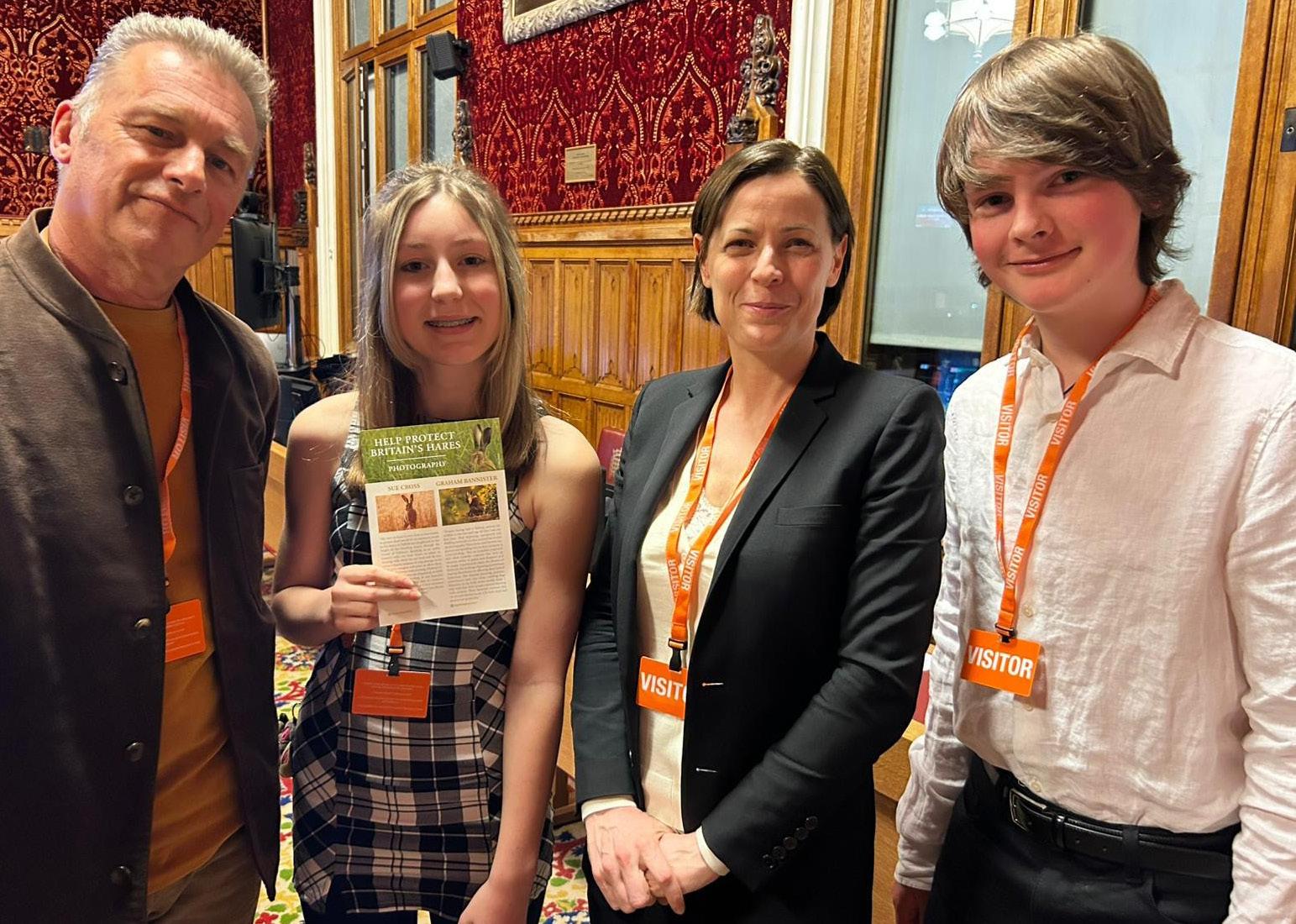
Ambassador Nikita Dhawan, who is from India, explained the issues faced by wild animals in zoos for BBC’s What in the World Podcast. Since its publication, the YouTube version has been viewed over 72,000 times.
In March 2025, Will Travers and the UK Education Team, in partnership with Empathy Week, hosted a webinar to empower teachers around the world and help them to integrate empathy for animals into their wider curriculum and teaching. Over 100 teachers signed up to this online event, representing 26 countries, with 100% of the attendees saying they now see the importance of incorporating empathy into their work as a teacher.
Our workshops, both directly to schools and through our partners at GenEarth, reached over 6,000 pupils, across 59 schools and educational institutions. The programme also reached large numbers of schools and students through our free online teaching resources hosted on tes.com. Over the last 12 months, these have been downloaded over 29,000 times, reaching tens of thousands of students across multiple continents.
RESCUE AND REHABILITATION
Born Free provides small grants to wildlife rescue centres across the UK, supporting the care of British wild animal orphans and casualties, before they can be returned to the wild. This year we supported Oxfordshire Wildlife Rescue, funding materials for a purpose-built shed to house larger deer. This will provide a quiet area for fallow and roe deer – vital for their successful rehabilitation – in preparation for their release.
Youth
Executive President Will Travers with Youth Ambassadors Leo Sordello-Savale, Thea Caine and Hector Bateman
Broadcaster Chris Packham (left) with Thea Caine, Raising Hare author Claire Dalton and Hector Bateman at Parliament
OUR WORK IN OTHER COUNTRIES
Born Free supports a range of other projects, funding and helping facilitate the vital work of partner organisations who share our aims to help wild animals in need.
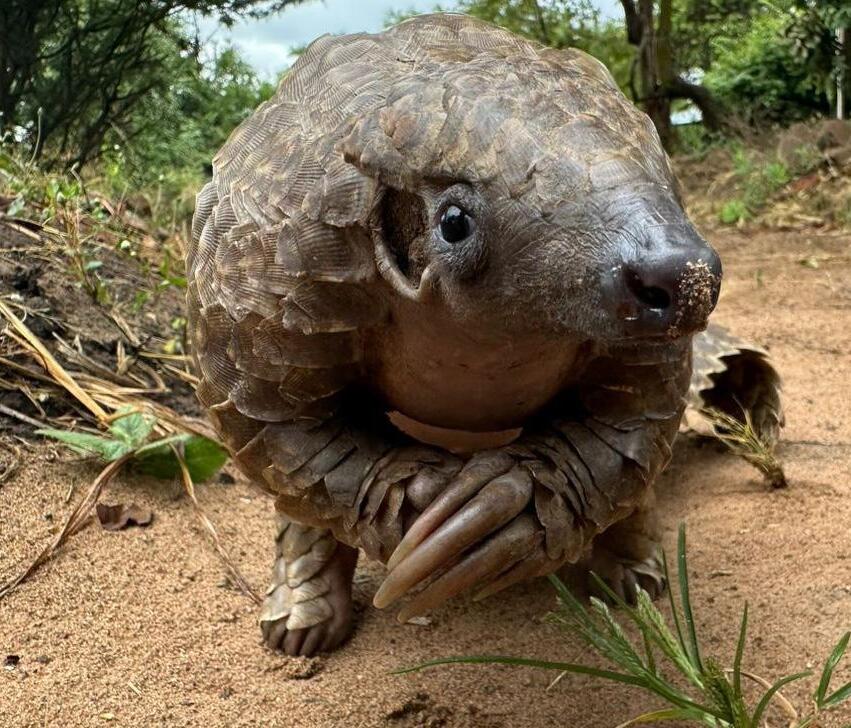
PANGEA
Born Free has a founding interest in The Pangea Trust, a charity established to create a much-needed elephant sanctuary in Europe. During the year, philanthropic loans were repaid that had enabled Pangea to purchase land in Portugal, where the sanctuary will be established. Work has now begun on the key infrastructure needed, including testing safe fencing options.
The staff team was expanded to support operations, fundraising and awareness-raising of Pangea at this critical stage of its development.
Looking forward, Born Free has renewed its commitment to Pangea and it is hoped that the Sanctuary might be able to welcome its first elephant(s) in 2025-26.
OTHER RESCUE AND WELFARE PROJECTS
Born Free has continued to support Game Rangers International’s Zambia Primate Project (ZPP) which rescues, vervet monkeys and baboons– that have been victims of the illegal wildlife trade or injured due to human activities. It rehabilitates the primates and releases them back to the wild. During the year, they rescued 15 primates, including two baboons less than two weeks old, which had been confiscated by local authorities. Their mothers had been killed by a farmer protecting crops and the infants were being sold as pets at a local market.
With our help, Lilongwe Wildlife Trust supports wild animals in need across Malawi. Their Wildlife Emergence Response Unit (WERU) provides field-based emergency support and vet care, with longer-term rehabilitation at Lilongwe Wildlife Centre in the capital city. In 2024-25, they took 85 animals into their care, including 17 pangolins, and returned 47 wild animals to the wild.
At Arcturos Bear Sanctuary in Greece, Born Free supported the annual care of rescued brown bear Kyriakos. As well as caring for 19 other rescued bears, Arcturos rescued Martha, a young bear cub found in a village without her mother. Martha has now entered a rehabilitation programme, and it’s hoped she will be released in spring/summer 2025.
We support the Chimpanzee Sanctuary and Wildlife Conservation Trust’s Ngamba Island Chimpanzee Sanctuary in Uganda, home to 53 chimpanzees. We helped procure veterinary supplies, provide routine veterinary care and process laboratory samples for these chimpanzees. We are also proud to report that Ngamba Island was awarded GFAS accreditation in the year.
OTHER CONSERVATION PROJECTS SUPPORTED BY BORN FREE
In Uganda, our colleagues at Bulindi Chimpanzee & Community Project continued to monitor chimpanzees who live outside of protected areas, and reducing risks and conflict with local farmers. BCCP delivered classroom lessons about chimpanzees in six primary schools, reaching 473 pupils. BCCP included an additional 76 families in its scheme to promote the conservation of chimpanzee habitat through sponsoring children’s education of those who own and conserve areas of natural forest. This initiative now protects 282 acres of natural forest in the Budongo-Bugoma Corridor.
During the year, Born Free worked with the Carnivore Research Malawi. Carnivores are in decline due to persecution, with hyenas particularly under pressure, and the project works to reduce human-wildlife conflict with local communities, including via a project that manages a conflict hotline. Experts from the organisation are helping us develop plans to address hyena conflict and conservation challenges in Kenya.
Supported by Born Free, the Orangutan Foundation protects orangutans and their habitat in Indonesia. In 2024, their ground patrols and community engagement in Lamandau Wildlife Reserve helped to ensure the area remained free from illegal logging. Two new guards are undergoing training, while the team also helped to fight seven bushfire outbreaks in the reserve.
OTHER EDUCATION PROJECTS
This year we continued to support our amazing partners at Chipembele Wildlife Education Trust in Zambia, helping them to reach 1,426 students with their Conservation Clubs, hold 167 community meetings and engage approximately 5,000 people at the annual Mfuwe Fun Run, with activities designed to promote the protection of habitats for wildlife and people.
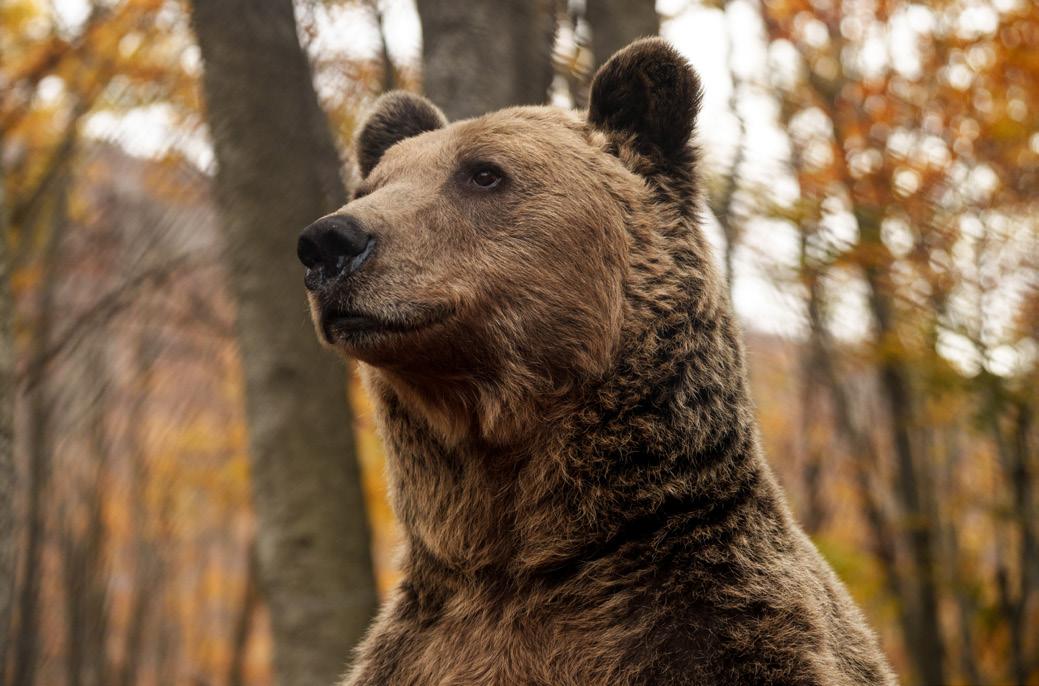
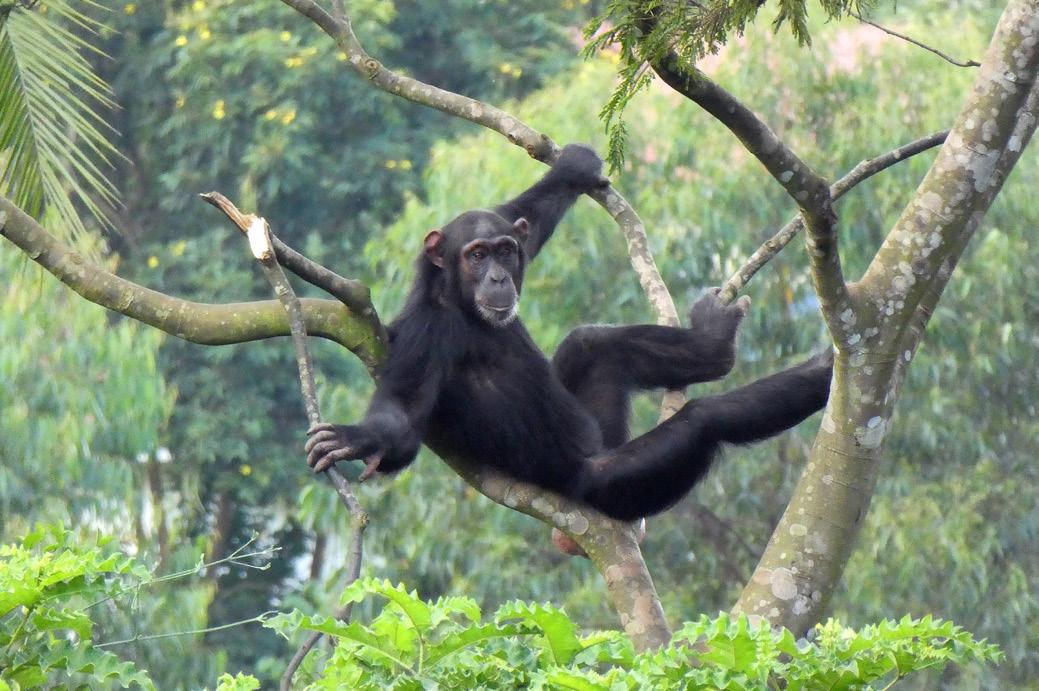
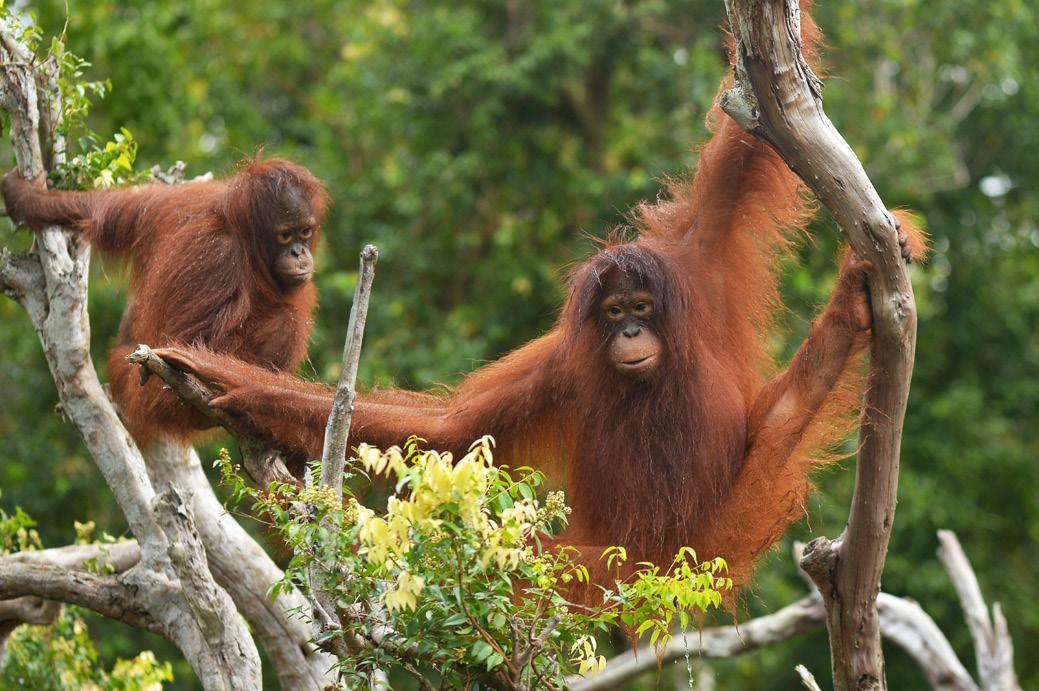
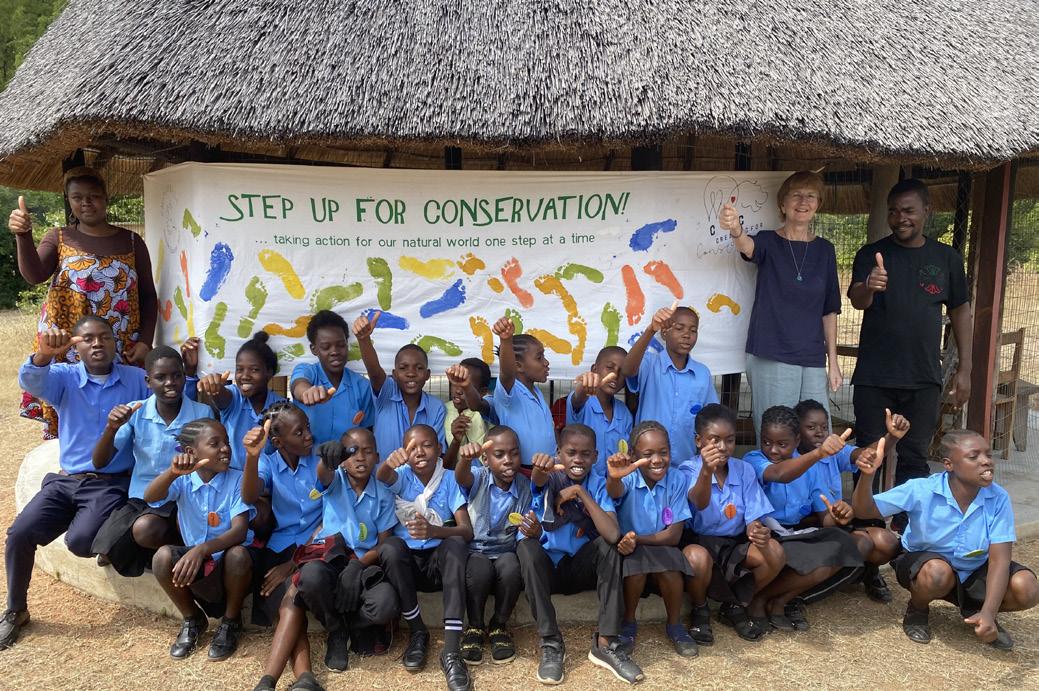
COMMUNICATIONS AND PR
Driving awareness, action, and impact in our 40th year
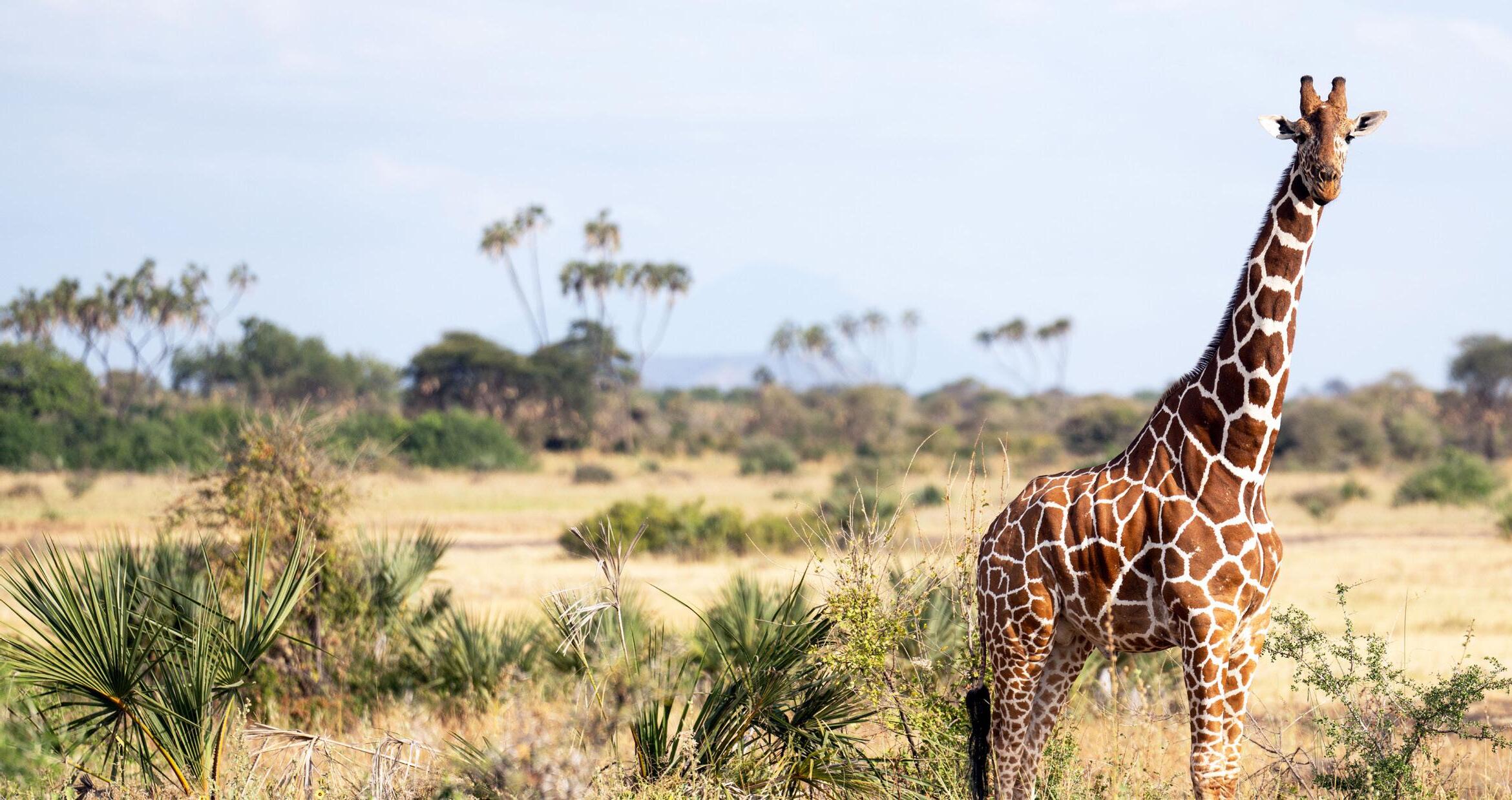
The year 2024-25 marked a milestone for Born Free as we proudly celebrated our 40th anniversary. Through powerful storytelling, bold campaigns, and integrated digital strategies, we deepened our supporter relationships and expanded our reach worldwide. Our fully integrated communications approach — combining digital marketing, social media, and Public Relations (PR) — ensured consistent messaging and maximised the visibility of our mission to keep wildlife in the wild.
Our digital campaigns, like #StopSelfishSelfies and #TankFree, continued to raise awareness about animal exploitation, generating strong engagement and empowering people to make ethical choices. We achieved over 18,000 views and nearly 5,000 signatures for our Selfish Selfies petition, with over 600,000 engagements across social channels. Tank Free gained 66,000 engagements across all social channels, with over 15,000 link clicks.
In September, The Human Habitat campaign saw our Patrons, including Amanda Holden, Kirsty Gallacher, Jenny Seagrove, Ritchi Edwards, and Hector Bateman symbolically ‘caged’ in Leicester Square, London, to highlight the confinement of big cats in European zoos. The campaign gained high-profile media coverage, with over 806 articles across print, local and national radio, TV, and online, including Daily Mail, The Guardian, The Telegraph, Radio 2 and ITV news.
We also continued to spotlight welfare concerns at South Lakes Safari Zoo in Cumbria, which announced its closure by year-end – an outcome we welcomed, calling for animal welfare to remain a priority. Interviews with key spokespeople were broadcast across 39 BBC radio stations, and coverage included BBC News, The Daily Mail, The Independent and The Sun.
Our redesigned website has become a cornerstone of supporter engagement, attracting 302,521 users and 387,889 sessions in its first year. With 64,972 advocacy conversions and donation income growing, the site has delivered measurable impact. A standout 46% conversion rate on our main donation page — more than double the sector average — reflects the success of our user-focused design and calls to action.
We also grew our email database by over 9%, reaching nearly 105,000 wildlife supporters. Social media continues to grow in reach and engagement as we continue with our ‘video first’ approach, ensuring supporters can gain a real understanding of our work in the field.
Wild Life, our biannual supporter magazine, continues to delight and inform over 8,000 print readers and 100k digital readers in its longer, 36-page format.
Together, our communications efforts have increased awareness, supported fundraising, and inspired action — ensuring Born Free’s voice for wildlife continues to grow louder and be more influential than ever before.
Amanda Holden helped raise awareness to our Clawing at the Cages campaign.
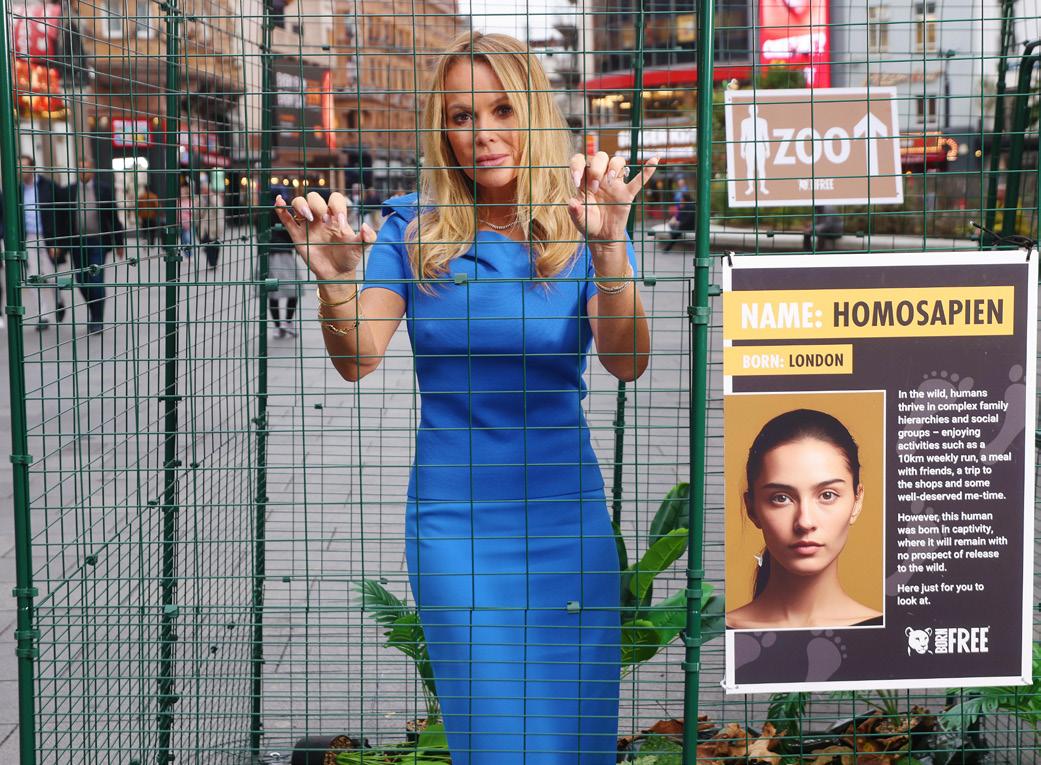
FUNDRAISING
All our work is only possible thanks to the incredible generosity of our thousands of individual supporters who donate, adopt, play our lottery, attend fundraising events and leave us gifts in their Wills, plus the funding we receive from grant givers and our corporate partners. Thank you all.
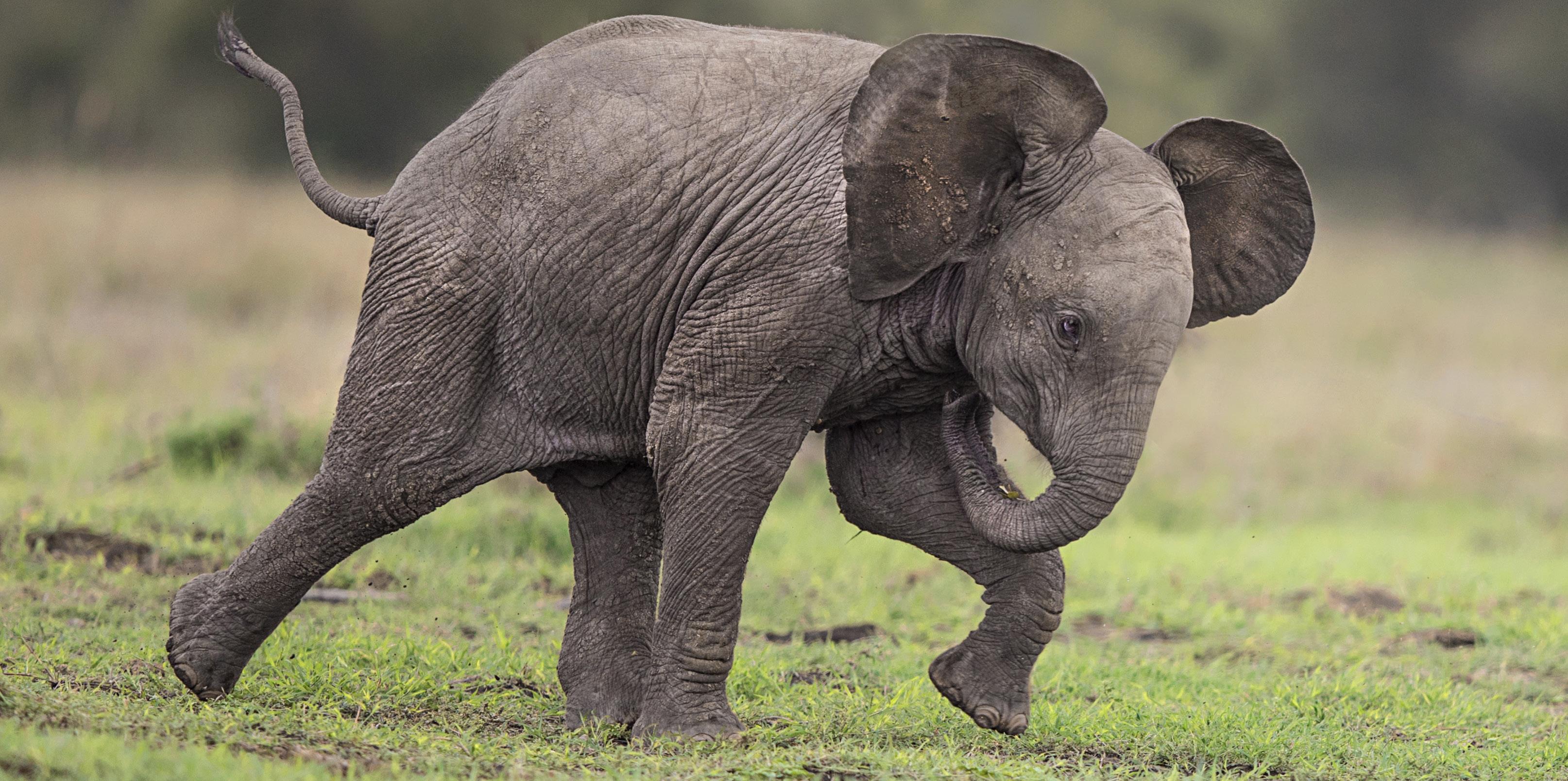
Active fundraising accounted for 98% of Born Free’s overall income and our total income grew by £1.5m to £7.7m in 2024-25, following investment in fundraising in 2023-24. Gifts in Wills were again the largest source of income, contributing 48% of total income and £1.6m more than in 2023-24. We are enormously grateful to everyone who has included the Born Free Foundation in their Wills, and we expect legacies will continue to be a very important source of funding into the future.
Born Free supporters, through a range of public fundraising activities, such as our animal adoptions and fundraising appeals, enable our charity to undertake its work. Regular monthly and annual gifts, made by direct debit, provide important sustainable income, helping us to plan ahead, which is vital, given the long-term commitments we make to animals in our care and the multi-year projects we run to keep wild animals in the wild.
During the year, many supporters generously increased their regular gifts, including those made as part of our animal adoptions and through our charity lottery. Growing regular annual income is an important aspect of our fundraising strategy and we continue to work to understand and serve our donors better, to inform our future plans.
Philanthropic giving grew significantly in the year and supported a wide range of Born Free projects, including in Kenya, Ethiopia, and South Africa, as well as our vital policy work. Likewise, we welcomed new corporate partners and developed a strong pipeline for future growth. The more relationship-based approach to fundraising introduced last year is helping to grow all high value income streams, including with philanthropists, businesses, trusts, foundations, and other grant givers.
Our second Footsteps to Freedom Ball raised important funds for our work and brought together many supporters and their guests to celebrate Born Free’s achievements over more than four decades, as did an exhibition at the Mall Galleries, London, of work by the acclaimed wildlife artist and long-term Born Free supporter, Gary Hodges.
We are also grateful to everyone who fundraised for us, including supporters who bravely ran the London Marathon.
More details on ways to support Born Free can be found on our website or by contacting the fundraising team via info@bornfree.org.uk.
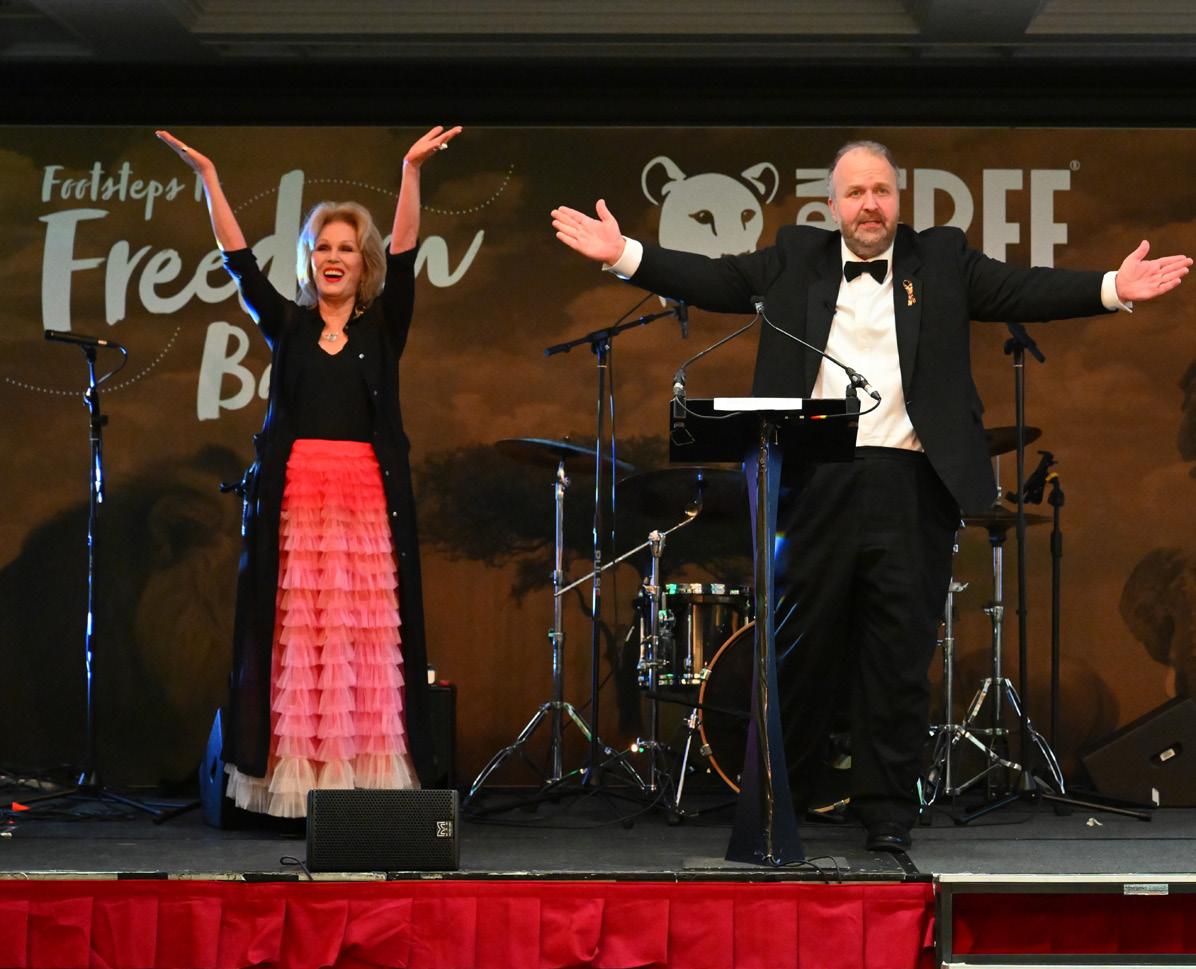
Founder Patron Dame Joanna Lumley and TV auctioneer and Patron James Lewis at Footsteps to Freedom
PLANS FOR THE FUTURE
A key focus in 2024-25 was the development of our next five-year strategy. Born Free’s Pathways to Freedom strategy was launched in May 2025. The strategy will continue to advance us towards our vision of a world where wildlife and people live in harmony. It draws on over 40 years’ experience, standing up for wild animals, their habitats, and local communities, and working with those who share our values to achieve our goals.
OUR ‘THEORY OF CHANGE’
WHAT NEEDS TO CHANGE?
The exploitation, suffering, and killing of wild animals needs to end.
HOW
WILL CHANGE HAPPEN?
Engaging and empowering communities and people through education and support.
2 Wild animals, habitats, and ecosystems need to be protected. 1 1 2 3 4 1 2 3 4
Supporting local people to coexist harmoniously alongside thriving wildlife populations.
Directly contributing to the delivery of wild animal rescue, care, protection, and conservation.
Improving wildlife law and policy development, enhancement, and enforcement.
WHAT DIFFERENCE WILL IT MAKE?
Safeguarding the welfare and reducing the presence of wild animals in captivity.
Returning individual healthy animals to the wild, where possible.
Working in partnership with organisations that enhance our shared impact.
Encouraging communities, organisations, and governments to make choices that protect the welfare of wildlife and their natural habitats.
Underpinned by our Theory of Change, we have set four Cross-Organisational Objectives in pursuit of our longerterm vision of a world where wild animals live their lives free from harmful exploitation, as part of functional, viable, ecosystems. These goals are highly interconnected, and our vision requires all four to be achieved.
• End the exploitation, suffering and killing of wild animals for entertainment and trade by engaging, educating and empowering society.
•
• Rescue and care for individual wild animals, either taken from the wild or born in captivity, working towards their release, where possible.
•
• Advocate for new or improved policies and legislation to end the exploitation, suffering and killing of wild animals, strengthen measures aimed at delivering the long-term, sustainable protection of their habitats, and securing greater resourcing for the enforcement of all relevant laws.
•
• Work with communities living with wildlife to reduce conflict with wild animals, protect wildlife habitats and promote sustainable human/wildlife coexistence.
We will focus our work on six primary species and groupings of wild animals – big cats (including lions and tigers), elephants, giraffe, rhinos, great apes and pangolins. In doing this, we believe we can have the greatest impact for these animals, many of which are now threatened and declining in the wild.
They are, in many cases, keystone species whose presence is vital to the health of the ecosystems in which they exist. Their futures will affect the future of many other individuals and species – animals and plants that are so vital for biodiversity and, ultimately, our future too.
Our holistic approach recognises that these animals face many different threats – from captivity as exotic pets, in zoos, and for entertainment, through to poaching and illegal trade, and as a result of habitat loss and fragmentation.
We will continue to be bold in our actions to keep wild animals in the wild, and our multi-disciplinary strategy, built on years of experience, offers viable solutions to the complex challenges faced by our increasingly threatened natural world.
As an international wildlife charity, most of our work takes place – and most of our staff are located – outside of the UK. We also fund and work closely with many other organisations around the world to achieve our goals. Over the next five years, we will be looking to consolidate or expand partnerships to achieve more for wild animals in the landscapes in which we work.
Our primary programmes will continue to be in six countries: UK; Kenya; Ethiopia; Cameroon; South Africa; and India.
Our team is diverse, drawn from many cultures and countries, and it is by harnessing their talents and commitment, and through the support of our partners, funders, and donors, that we will deliver our organisational goals.
Our Pathways to Freedom strategy will grow our impact. It will require us to be agile yet focussed, served by good governance, sound operations and sustainable finances.
Embracing technology has allowed us to work in a more integrated and flexible way, and we will continue to innovate how our teams work together, wherever they are based.
To help us operate efficiently over the next five years, we will develop a five-year financial model and aligned fundraising strategy, which enables our charity to meet its objectives and to grow sustainably, and we will establish an impact and decision-making framework to monitor our performance and use our resources wisely.
With the help of our supporters, we will do everything in our power to deliver a better world for people and wildlife.
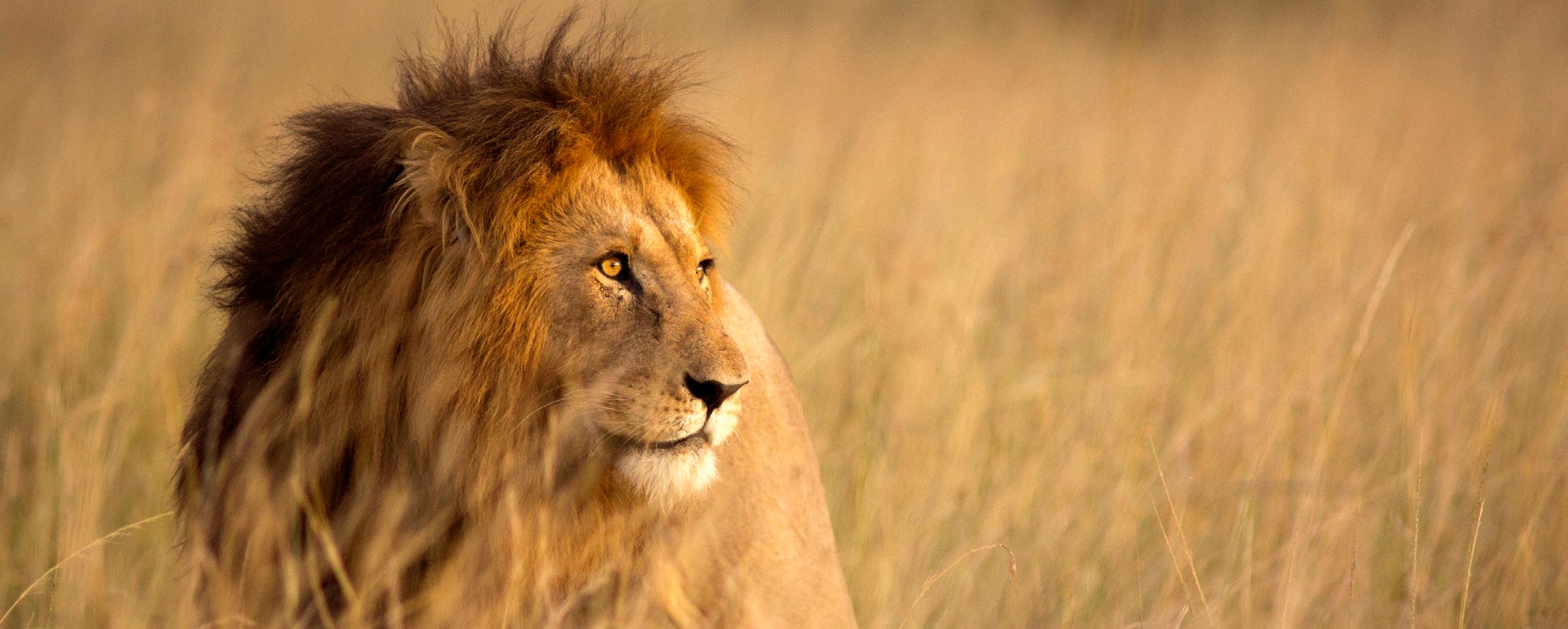

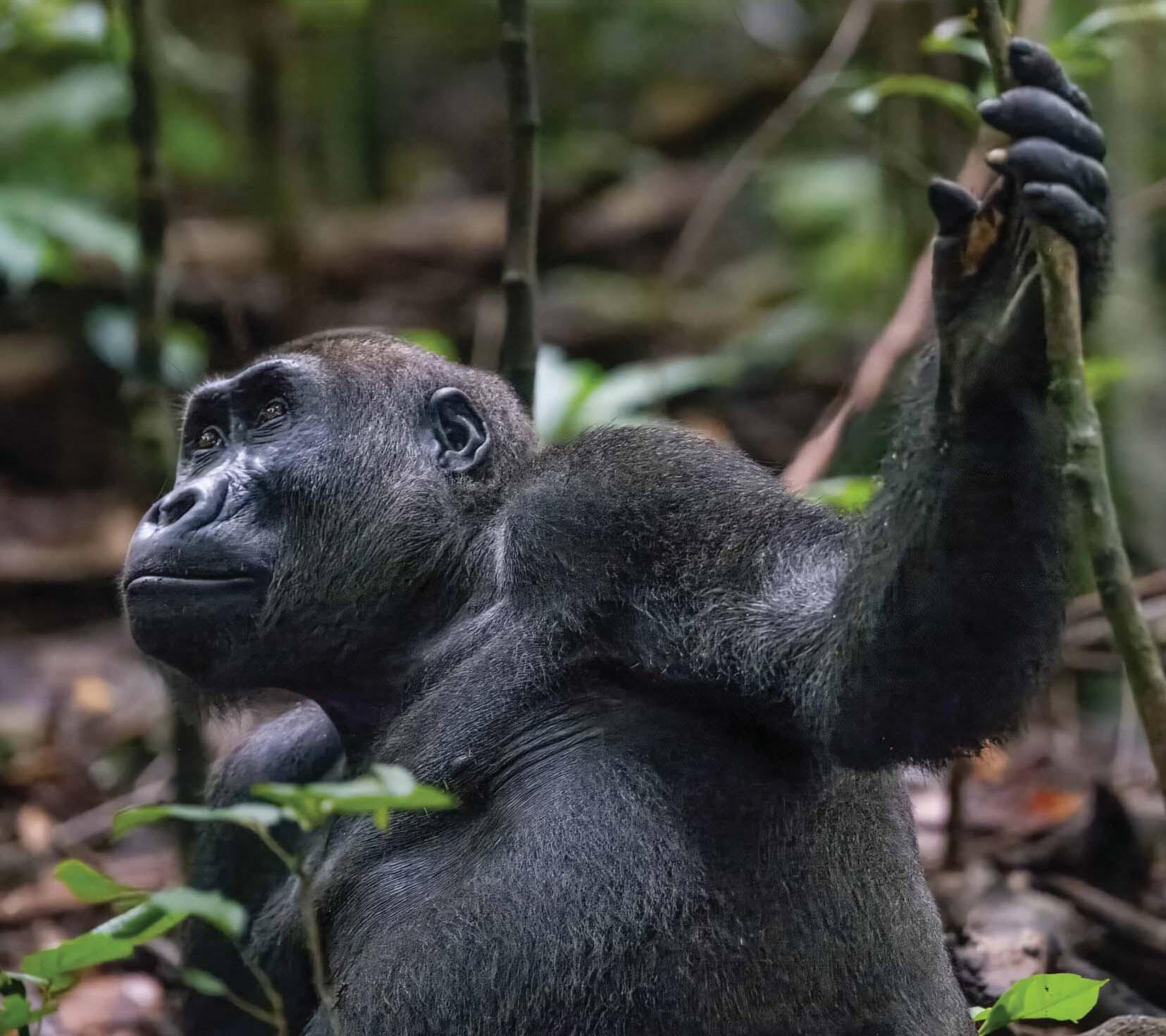
STRUCTURE, GOVERNANCE AND MANAGEMENT
Status and Objects
The charity is a company limited by guarantee. Our governing document is a Memorandum & Articles of Association, dated 1998. Our charitable objects as set out in the Memorandum & Articles of Association are:
•To preserve and conserve animal species in their natural habitat on an international basis and to undertake all relevant research activities in connection therewith or ancillary thereto, and to publish the useful results of such research, and to provide relevant educational materials and equipment and other support to communities in areas where preservation and conservation are undertaken;
•To prevent all types of cruelty and abuse of animals and wildlife particularly in zoos and other places where animals are kept in captivity;
•To educate the public and to advance the education of natural history, environmental studies, ecology and resource conservation in an industrial, urban, rural, natural and marine environments; and
•To relieve the suffering of animals of any species which are in need of care and attention and (where appropriate) assist in the provision of improved facilities for the care of animals in captivity.
Governing Body and Structure
Our governing body is a Board of Directors. The Directors are the Trustees of the charity. As at 31 March 2025, there were 11 Trustees. The Board meets quarterly and has two sub-committees, the Finance & General Purposes Committee that also meets quarterly, and the Remuneration Committee that meets annually. In addition, we have established Advisory Panels where Trustees, senior staff and independent experts meet to discuss specific issues in more detail to help evolve our approach and work plans. During the year, the Income Generation and Communications Advisory Panel and the Programmatic Advisory Panel each met once. The two Panels also met as a combined group to contribute to the drafting of the 2025-30 Strategy.
We have overseas branches in Kenya and Ethiopia and a long-established partnership with Shamwari Game Reserve in South Africa. The charity has two subsidiaries that are separate legal entities – Born Free Trading Ltd and Born Free Films Ltd, which is dormant. A third subsidiary, Born Free South Africa Ltd, was de-registered in 2024 having been dormant for a number of years. We have a sister organisation in the USA, named Born Free USA, which has a separate Board and is incorporated in the United States as a not-for-profit 501(c)(3).
We have a well-established annual planning and budgeting process that covers the charity and its subsidiaries and branches.
Decision-making
The Trustees’ prime function is to ensure the good governance of the charity and to this end the Board focuses on matters of policy and general strategy, the approval of plans, the monitoring of progress with regard to our charitable objects, fiduciary responsibility, financial controls and investments.
Operational responsibility is delegated to the Executive Management Team, consisting of the Executive President, Managing Director, Chief Financial Officer and the Director of Fundraising.
The Board receives formal reports in advance of its quarterly meetings. These reports contain details of our programmatic activity, organisational and support function activities, the current position of our finances and other related governance matters.
The Finance and General Purposes Committee makes recommendations to the Board on financial matters, including the approval of finance-related policies, the annual budget and the management of investments. The Remuneration Committee approves the salaries for staff,
including the salaries of the Executive Management Team. Use is made of relevant sector benchmarks for comparable roles to help establish the salary bands. Cost of living increases are guided by the prevailing level of inflation. Due regard is also given to affordability in the context of the total annual budget.
Trustees
When we recruit new Trustees, we follow a best-practice process, including a skills audit to identify the qualities sought in potential candidates. We provide new Trustees with a structured induction that includes comprehensive documentation and individual briefings from key staff.
The Charity Governance Code was published in 2017 and updated in 2020. The code sets out seven principles of good governance and encourages charities to review their governance structures and processes against the code to ensure they are fit for purpose and operate efficiently. The Trustees have received training on the content of the code, and they have due regard to its principles when conducting their business.
Public benefit
The Trustees have given due consideration to the Charity Commission’s published guidance on the Public Benefit requirement under the Charities Act 2011.
The protection of the natural world and its myriad biodiversity is a shared responsibility. The role of, and benefit to, the public cannot be under-estimated. Born Free leads by example, demonstrating through its charitable activities how we can all play a part in securing a vibrant and thriving natural environment. Setting out our values and vision allows people from all walks of life to make informed choices about how they live their lives. At the same time, by exposing bad practices, those that harm, demean, marginalise and cause suffering to wild animals and wild environments, we allow the widest possible number of people, through the decisions they make in their everyday lives, to singly and cumulatively, bring about positive, lasting, sustainable change.
Grant-making
To help achieve our objectives, Born Free makes grants to other not-for-profit organisations. This includes making grants to organisations that provide sanctuary to rescued animals, organisations undertaking conservation work and organisations that deliver wildliferelated educational activities. Many of the organisations to whom we give grants are long-term partners of the charity. Our Grants Policy sets out the process for selecting partners, awarding grants and reviewing how funds have been applied.
REFERENCE AND ADMINISTRATIVE INFORMATION
Board of Trustees
Michael Reyner (Chair)
Michael Drake (Deputy Chair)
Dr Amal-Lee Amin (to June 2025)
Sean Cassidy
Navindu Katugampola
Arabella Lack
Virginia McKenna DBE
Sharon Peake
Jessica Ruben
Jenny Seagrove
Kate Stephenson (to June 2025)
Nicky Whitehead (from April 2025)
Finance and General Purposes Committee
Michael Reyner
Navindu Katugampola
Jessica Ruben (from November 2024 to August 2025)
Nicky Whitehead (from May 2025)
Remuneration Committee
Michael Reyner
Sharon Peake
Will Travers
Karen Botha
Sharon Martin
EXECUTIVE MANAGEMENT TEAM
Executive President
Will Travers OBE
Managing Director
Karen Botha
Chief Financial Officer
Sharon Martin CPFA
Director of Fundraising
Katie Arber
REGISTERED INFORMATION
Registered charity name The Born Free Foundation
Charity number 1070906 (In Ethiopia: 0686)
Company registration number 03603432 (In Kenya: F.76/2003)
Registered office 2nd Floor, Frazer House 14 Carfax
Horsham West Sussex RH12 1ER
PROFESSIONAL ADVISORS
Auditors
Saffery LLP 71 Queen Victoria Street
London
EC4V 4BE
Bankers
HSBC Bank Plc
Insurance broker
Gallagher Metro House, Northgate Chichester West Sussex PO19 1BE
Investment managers
James Hambro & Partners 45 Pall Mall London SW1Y 5JG
Quilter Cheviot Investment Management Three Temple Quay Temple Way
Bristol BS1 6DZ
FINANCIAL REVIEW
The year 2024-25 was successful for Born Free financially, with income of £7.7m and delivering a net surplus before gains and losses of £0.5m. This success was driven by a sharp increase in legacy income. Our expenditure in the year benefited from the GB Pound strengthening against currencies in Africa, most notably the Ethiopian Birr, increasing our purchasing power in-country. However, when the branch balance sheets are translated into GBP, this has resulted in a foreign exchange loss of £0.2m. Our investments delivered a small, unrealised gain of £0.1m and we completed the year with an outturn surplus of £0.4m. Further analysis of our income and expenditure is provided below.
Total income for the year was £7,652k, an increase of £1,546k (25%) compared to the previous year’s total of £6,106k. Legacies were a key driver of the increase in income. In 2024-25, we have recognised legacy income of £3,709k, compared to £2,076k in the previous year. The increase of £1,633k (79%) has been driven by the number of high value gifts, defined as a gift of £100k or more. In 2023-24, we received three high value gifts totalling £0.5m. In 2024-25, we received ten high value gifts totalling £1.8m. It is difficult to cite a single reason for the improvement in this income stream, although it could partly be due to the backlog that had been experienced in the Probate Courts starting to clear.
Income from donations has decreased by £330k (9%) to £3,284k. However, in 2023-24, we received an exceptional, one-off gift of £841k and if we exclude that gift, several fundraising income streams grew in the year, including Grants and Trusts, Corporate donations and philanthropic gifts. This reflects investments made in the last two years to strengthen the capacity and skills within the Fundraising team, as can be seen by our increased expenditure on Raising Funds, rising from £1,544k in 2023-24 to £2,078k in 2024-25. Income from Adoptions has declined and we will be considering how we can maximise the net return on this important fundraising product going forward.
Expenditure on our Charitable Activities has increased by £542k (12%) to £5,064k. This reflects growth in our work in Kenya, and a one-off increase in our contributions to the Pangea Trust, of which Born Free is a founding member, as we reached the final year of the first Member Agreement.
During the year, our expenditure overseas benefitted from the strengthening GB Pound. This was particularly the case in Ethiopia were the Ethiopian Birr devalued sharply following the Government’s decision to float the currency. While this did result in cost increases in-country, these were more than offset by the exchange rate which halved during the year, meaning the funds we sent from the UK had greater purchasing power in Ethiopia. However, when converting assets held by our branches into GBP to
prepare the consolidated balance sheet, the appreciation of the GBP has resulted in a loss on foreign exchange of £170k.
While there has been turbulence on the stock markets as a result of geopolitical events, the sharp (but short-lived) decline occurred after the financial year end. As at 31 March, our investment portfolio was showing a gain for the year of £62k.
Our final outturn 2025-24 is a surplus of £402k, compared to a surplus of £232k in 2024-25. The net assets of the Group at year end are £6,193k, of which £4,881k are free reserves (see Note 20).
Since 1 April 2024, we have submitted two Serious Incident Reports to the Charity Commission. The first report was submitted in November 2024 and related to an attempted fraud, perpetrated by an external third party, to extract funds via a bogus donation of laptops, initially by requesting an upfront cash payment and subsequently by issuing a fraudulent invoice. Our internal controls prevented any loss of funds occurring and the incident was reported to both Action Fraud and the Charity Commission to inform their sector intelligence.
The second report was submitted in April 2025 but related to incidents that were identified during 2024-25. Unfortunately, three separate cases of theft by Born Free staff in Kenya were uncovered. One case related to a finance officer diverting funds intended for a supplier payment, which was identified through the application of our internal controls. One case related to an officer receiving funds from members of the community and neither recording the receipt nor passing the funds on to the charity. This was identified when a member of the community contacted Born Free to ask when he was due to receive the services for which he had paid. Finally, another member of staff retained a small proportion of funds that were due to be banked. In all cases, the staff members were placed through the disciplinary process and subsequently dismissed based on the findings of that process. In one of the cases, the charity was fully reimbursed for the funds and the total loss recorded was just under £1,500. Born Free has a zero-tolerance approach to fraud and theft and we have subsequently reviewed and enhanced our processes in Kenya to help prevent a reoccurrence.
Reserves policy
Our Trustees require the Foundation to set aside reserves to manage financial risk and short-term income volatility. Reserves allow Born Free to continue performing our charitable activities in the event of a fall in our income or an unexpected increase in our costs. They ensure that our immediate and medium-term financial commitments can
be met. They help support the charity’s long-term financial viability and offer protection against adverse external factors, allowing us to take advantage of opportunities as and when they arise. The Trustees have determined that we should not retain income for longer than required by our Reserves Policy or hold excess unrestricted or designated reserves beyond our identified needs.
The current Reserves Policy was approved by Trustees in June 2025. Under the Policy, there are two designated funds:
•the Fixed Asset Reserve: £1,138k as at 31 March 2025 (2024: £1,152k) – the balance on this fund is equal to the net book value of tangible fixed assets disclosed on the balance sheet. It recognises that these funds are not liquid and therefore not available to meet any immediate cash needs of the charity. In addition, the funds may not be realised in cash at the value stated on the balance sheet; and
•the Ethiopia Infrastructure Reserve: £150k as at 31 March 2025 (2024: £nil) – this new Fund was created to support the completion of key infrastructure projects at our Ensessa Kotteh Sanctuary in Ethiopia. The fund provides for connecting the recently installed electricity supply to key points across the Sanctuary and for purchasing a walk-in freezer to store animal food onsite.
The Pangea Reserve, a designated fund created in 202223, was fully expended by 31 March 2025. This fund represented the outstanding financial commitment that the charity made under the original five-year Membership Agreement with The Pangea Trust (registered charity number 1177137).
After accounting for the two extant designated funds, the balance of unrestricted reserves represents the free reserves of the charity. The charity aims to hold free reserves that are sufficient to allow it to:
•Continue with planned activities even if we fail to achieve planned income, in particular, recognising the extremely volatile and unpredictable nature of our legacy income;
•Continue to support the animals in our care and manage an orderly transition to alternative arrangements in the extreme event that the Foundation ceases to exist or is unable to operate;
•Retain cash balances sufficient to meet our immediate liabilities, enabling the charity to manage its working capital; and
•Fund a small, planned budget deficit for 2025-26.
Having performed a risk-assessment of our income streams, calculated the cost of our lifetime care commitments and assessed our need for working capital,
we have concluded that we need to maintain free reserves within the range of £4,600k to £4,800k. The target level of reserves has increased since last year (£3,600k to £3,900k) as we have allowed for greater, and more sustained volatility in legacy income based on the £1.5m swing from legacy income in 2023-24 to 2024-25.
As at 31 March 2025, our free reserves stood at £4,881k (2024: £3,854k). This is slightly above the target range specified in our reserves policy. Our budget for 2025-26 provides for a small deficit that will bring our free reserves closer to the target range.
As at 31 March 2025, the balance on our restricted funds was £24k (2024: £33k).
Investment performance, policy and objectives
At 31 March 2025, the charity held investments totalling £3,184k (2025: £3,133k). This balance represents the entirety of the charity’s investment portfolio, which is managed by two investment managers – James Hambro and Quilter Cheviot. The total value of the portfolio as at 31 March 2025 was £3,184k (2024: £2,889k), with the funds split broadly equally between the two investment managers. Funds are invested across a range of equities, fixed income and cash.
Included within the charity’s Investment Management Strategy is the investment objective of funds providing a total return of CPI +2.0%, measured after fees and annualised over five years. During the past year, this objective was achieved. We review the performance of the investment managers against their peer group for similarly structured charity portfolios on a quarterly basis. In the year, Quilter Cheviot consistently outperformed its peer group while James Hambro performed in line with, or slightly better than, its peer group.
The charity has an ethical investment policy. The policy sets out which activities are to be excluded from our investment portfolio altogether and activities to which our exposure will be severely limited, for example, by a company in which we are investing not deriving more than a specified percentage of its income from those activities. Amongst other defined restrictions, Born Free does not invest in companies that are involved in extracting or processing fossil fuels.
During the year, the charity sold an investment property, which had been recorded in the balance sheet at a market value of £200k. The property sold in March 2025 for £206k. Of the funds received, £200k was transferred into our investment portfolio, with £100k going to each of the fund managers. Further details of the transactions on the portfolio are set out in Note 12.
Risk management
Our approach to risk management is well-established and our risk register is regularly analysed, reviewed and updated. The risk register was last reviewed by Trustees in
June 2025. From the 14 charity-wide risks recorded on our register, the following were identified as being the principal risks facing Born Free:
External threats and to overseas operations: the majority of Born Free’s charitable activities are delivered overseas, in particular, through our branches in Kenya and Ethiopia, and with our partner Shamwari Private Game Reserve in South Africa. Born Free relies on the cooperation and support of in-country governments, at both a local and national level, and partner agencies, to deliver its services. The current geo-political environment is highly dynamic, with previously accepted norms under challenge. Proposed changes in laws and regulations can have a significant impact on our work. To manage the risks this causes, we liaise regularly with relevant agencies and partners to maintain the spirit of co-operation, formalising collaborative engagements in multi-year memorandums of understanding and framework agreements. We work closely with other NGOs to ensure we are aware of pending changes and are represented by a strong and united voice. We accept that many events are outside of our control, but we build resilience in our work to ensure that we can respond accordingly while still delivering our strategic objectives.
Compliance: regrettably, we uncovered matters of noncompliance with our internal Human Resources policies and procedures in Kenya in 2024-25. We have investigated and addressed these issues, but it has highlighted the need for further work to develop a strong performance management culture with transparency and accountability. We have relaunched the Kenya Employee Handbook which takes account of Kenya labour laws and will provide training in staff management. We are reviewing the senior structure in both UK and Kenya to ensure that it is fit for purpose, ahead of recruiting a new Country Director later in 2025.
Delivering our strategy: we are proud to launch our new strategy for 2025-2030; there was significant work across the organisation to develop the planning framework and cross organisational objectives that we will work towards. By their nature, many of our activities, including influencing international and national policy-makers, changing attitudes towards wildlife, and conservation work, can take a long time to deliver and to demonstrate a correlation, i.e. how our actions led to the result, can be difficult. Given these challenges, while we have the strategy, we are still finalising the development of a performance monitoring framework to set measurable targets and indicators for our key measurable outputs and outcomes. Getting this framework right will be transformational in demonstrating our impact and directing our activities. We will engage specialist support to help us design a framework that is fit for purpose while remaining proportionate to our resources.
Cyber-attack: all organisations are vulnerable to a malicious cyber-attack that could result in a loss of data and/or funds, and cyber-attack has consistently ranked
as one of Born Free’s principal risks in recent years. While we have controls in place to help address this risk and continue to invest in improvements to our technological infrastructure, we acknowledge that even the most sophisticated organisations cannot prevent a determined attacker.
Staff safety and security: our staff work in challenging conditions, from 24-hour security patrols at our Ensessa Kotteh Sanctuary in Ethiopia, to caregiving to potentially dangerous animals, to working with heavy equipment and machinery when building bomas in Kenya. To mitigate these risks, we ensure that protocols are in place, and staff are provided with the necessary means of communications and appropriate protective clothing and equipment. When an incident occurs, we review what gave rise to it and take actions to prevent any future reoccurrence.
Ensuring we fundraise responsibly
Born Free is committed to the highest standards of supporter care and fundraising. Our Fundraising Promise clearly outlines our guarantee to those who choose to support Born Free. Through our promise we are committed to transparency about how we use donations, sharing stories that demonstrate impact, respecting privacy and generosity, offering an approach that’s right for the individual and ensuring a friendly and open response when we’re contacted by supporters.
Born Free ensures that our values are reflected in all our fundraising activities and that we comply with the provisions of The Charities (Protection and Social Investment) Act 2016. We are registered with the Fundraising Regulator. We adhere to the Code of Fundraising Practice (the Code). We also have an Ethical Fundraising Policy.
We raise funds in a variety of ways including: recruiting regular givers, through our adoption scheme, donations to appeals, philanthropic gifts, holding events, supporting sponsored challenges, running a weekly lottery, receiving gifts in wills, applying for grants from trusts and foundations, and corporate fundraising with local, national and international companies.
The majority of our fundraising activity is performed directly by our own staff. We rarely contract with professional fundraisers, which are fundraising agencies or third-party service providers who act as agents in raising funds on behalf of Born Free. Where we do, we perform due diligence to ensure they too operate to the highest standards and comply with the Code and train and support them to work on our behalf, and conduct regular meetings with them to look at performance, supporter feedback and to ensure compliance with the Code and our Fundraising Promise. In 2024-25 a telephone fundraising agency, Ethicall, was contracted to undertake fundraising projects for Born Free and our lottery was run by CFP.
We also work with carefully selected commercial participators which are usually businesses who encourage the sale of their goods or services on the basis that Born Free will receive funding as a result. In all cases, we have contractual arrangements with these fundraising partners that set the standards and obligations that our fundraising activities must meet.
Due to the varied nature of our fundraising activities, we are aware of the potential for a breach of compliance to occur. We manage and minimise this risk by providing training to our staff, ensuring they are aware of the requirements of the Code. We also engage the services of a specialist Data Protection advisor. No such breaches were identified in the financial year (2024: none).
Whilst Born Free seeks to reduce the need for supporters or the public to make complaints by delivering the highest standards in everything we do, there may be times when we do not meet these standards. When this happens, Born Free has a clear and easy procedure in order to deal with the situation as quickly possible and put measures in place to stop it happening again. We listen to feedback and respond appropriately to compliments and criticism we receive. During the year, the charity received two complaints in relation to its fundraising activities (2024: none).
We take our duty to protect vulnerable people and personal privacy seriously. We have signed up to the Fundraising Preference Service and in conjunction with the Code, adhere to our own Vulnerable Persons Policy that seeks to help us identify a vulnerable person and provides guidance as to how we should conduct any communication. We have age limits on who can be approached with a fundraising ask to protect minors. In respect of the weekly lottery, we are registered with the Gambling Commission and ensure we adhere to the law and offer self-exclusion for individuals who may have issues with gambling.
Statement of Trustees’ responsibilities
The Trustees, who are also Directors of the charity for the purposes of company law, are responsible for preparing the Trustees’ Report and the financial statements in accordance with applicable law and United Kingdom Accounting Standards (United Kingdom Generally Accepted Accounting Practice).
Company law requires the Trustees to prepare financial statements for each financial year which give a true and fair view of the state of affairs of the charitable company and the group and of the incoming resources and application of resources, including the income and expenditure, of the charitable group for that period. In preparing these financial statements, the Trustees are required to:
•select suitable accounting policies and then apply them consistently;
•observe the methods and principles in the Charities SORP (FRS 102);
•make judgements and estimates that are reasonable and prudent;
•state whether applicable accounting standards have been followed, subject to any material departures disclosed and explained in the financial statements; and
•prepare the financial statements on the going concern basis unless it is inappropriate to presume that the charity will continue in business.
The Trustees are responsible for keeping proper accounting records that disclose with reasonable accuracy at any time the financial position of the charitable company and enable them to ensure that the financial statements comply with the Companies Act 2006. They are also responsible for safeguarding the assets of the charitable company and the group and hence for taking reasonable steps for the prevention and detection of fraud and other irregularities.
In so far as the Trustees are aware:
•there is no relevant audit information of which the charitable company’s auditor is unaware; and
•the Trustees have taken all steps that they ought to have taken to make themselves aware of any relevant audit information and to establish that the auditor is aware of that information.
The Trustees are responsible for the maintenance and integrity of the charity and the financial information included on the charity’s website. Legislation in the United Kingdom governing the preparation and dissemination of financial statements may differ from legislation in other jurisdictions.
Auditors
Saffery LLP were auditors during the period and their reappointment will be considered at the annual general meeting.
The Trustees have taken advantage of the small companies’ regime in preparing the Trustees’ Annual Report.
On behalf of the board
Michael Reyner Chair of Trustees
9th September 2025
INDEPENDENT AUDITOR’S REPORT TO THE MEMBERS OF THE BORN FREE FOUNDATION
FOR THE YEAR ENDED 31 MARCH 2025
Opinion
We have audited the financial statements of the Born Free Foundation (the ‘parent charitable company’) and its subsidiaries (the ‘group’) for the year ended 31 March 2025 which comprise the consolidated Statement of Financial Activities, the Group and Charity balance sheets, the consolidated cash flow statement and the notes to the financial statements, including significant accounting policies. The financial reporting framework that has been applied in their preparation is applicable law and United Kingdom Accounting Standards, including Financial Reporting Standard 102, the Financial Reporting Standard applicable in the UK and Republic of Ireland (United Kingdom Generally Accepted Accounting Practice).
In our opinion the financial statements:
•give a true and fair view of the state of the affairs of the group and the parent charitable company as at 31 March 2025 and of the group’s incoming resources and application of resources, including its income and expenditure, for the year then ended;
•have been properly prepared in accordance with United Kingdom Generally Accepted Accounting Practice; and
•have been prepared in accordance with the requirements of the Companies Act 2006.
Basis for opinion
We conducted our audit in accordance with International Standards on Auditing (UK) (ISAs (UK)) and applicable law. Our responsibilities under those standards are further described in the Auditor’s responsibilities for the audit of the financial statements section of our report. We are independent of the group and parent charitable company in accordance with the ethical requirements that are relevant to our audit of the financial statements in the UK, including the FRC’s Ethical Standard, and we have fulfilled our other ethical responsibilities in accordance with these requirements. We believe that the audit evidence we have obtained is sufficient and appropriate to provide a basis for our opinion.
Conclusions relating to going concern
In auditing the financial statements, we have concluded that the trustees’ use of the going concern basis of accounting in the preparation of the financial statements is appropriate.
Based on the work we have performed, we have not identified any material uncertainties relating to events or conditions that, individually or collectively, may cast significant doubt on the group or the parent charitable company's ability to continue as a going concern for a period of at least twelve months from when the financial statements are authorised for issue.
Our responsibilities and the responsibilities of the trustees with respect to going concern are described in the relevant sections of this report.
Other
information
The trustees are responsible for the other information. The other information comprises the information included in the annual report, other than the financial statements and our auditor’s report thereon. Our opinion on the financial statements does not cover the other information and, except to the extent otherwise explicitly stated in our report, we do not express any form of assurance conclusion thereon.
Our responsibility is to read the other information and, in doing so, consider whether the other information is materially inconsistent with the financial statements or our knowledge obtained in the course of the audit or otherwise appears to be materially misstated. If we identify such material inconsistencies or apparent material misstatements, we are required to determine whether this gives rise to a material misstatement in the financial statements themselves. If, based on the work we have performed, we conclude that there is a material misstatement of this other information; we are required to report that fact.
We have nothing to report in this regard.
Other matters prescribed by the Companies Act 2006
In our opinion, based on the work undertaken in the course of the audit:
•the information given in the Report of the Trustees which includes the Directors’ Report and the Strategic Report for the financial year for which the financial statements are prepared is consistent with the financial statements; and
•the Report of the Trustees which includes the Directors’ Report and the Strategic Report has been prepared in accordance with applicable legal requirements.
Matters on which we are required to report by exception In the light of the knowledge and understanding of the group and the parent charitable company and their environment obtained in the course of the audit, we have not identified material misstatements in the Report of the Trustees and Strategic Report.
We have nothing to report in respect of the following matters where the Companies Act 2006 require us to report to you if, in our opinion:
•adequate accounting records have not been kept by the parent charitable company, or returns adequate for our audit have not been received from branches not visited by us; or
•the parent charitable company financial statements are not in agreement with the accounting records and returns; or
•certain disclosures of trustees’ remuneration specified by law are not made; or
•we have not received all the information and explanations we require for our audit.
Responsibilities of trustees
As explained more fully in the Statement of Trustees’ Responsibilities set out on page 40, the trustees (who are also the directors of the parent charitable company for the purposes of company law) are responsible for the preparation of the financial statements and for being satisfied that they give a true and fair view, and for such internal control as the trustees determine is necessary to enable the preparation of the financial statements that are free from material misstatement, whether due to fraud or error.
In preparing the financial statements, the trustees are responsible for assessing the group and the parent charitable company’s ability to continue as a going
concern, disclosing, as applicable, matters related to going concern and using the going concern basis of accounting unless the trustees either intend to liquidate the group or the parent charitable company or to cease operations, or have no realistic alternative but to do so.
Auditor’s responsibilities for the audit of the financial statements
We have been appointed as auditors under the Companies Act 2006 and report in accordance with regulations made under that Act.
Our objectives are to obtain reasonable assurance about whether the group and parent financial statements as a whole are free from material misstatement, whether due to fraud or error, and to issue an auditor’s report that includes our opinion. Reasonable assurance is a high level of assurance, but is not a guarantee that an audit conducted in accordance with ISAs (UK) will always detect a material misstatement when it exists. Misstatements can arise from fraud or error and are considered material if, individually or in the aggregate, they could reasonably be expected to influence the economic decisions of users taken on the basis of these financial statements.
Irregularities, including fraud, are instances of noncompliance with laws and regulations. We design procedures in line with our responsibilities, outlined above, to detect material misstatements in respect of irregularities, including fraud. The specific procedures for this engagement and the extent to which these are capable of detecting irregularities, including fraud are detailed below.
Identifying and assessing risks related to irregularities: We assessed the susceptibility of the group and parent charitable company’s financial statements to material misstatement and how fraud might occur, including through discussions with the trustees, discussions within our audit team planning meeting, updating our record of internal controls and ensuring these controls operated as intended. We evaluated possible incentives and opportunities for fraudulent manipulation of the financial statements. We identified laws and regulations that are of significance in the context of the group and parent charitable company by discussions with trustees, communication with component auditors and updating our understanding of the sector in which the group and parent charitable company operate.
Laws and regulations of direct significance in the context of the group and parent charitable company include The Companies Act 2006 and guidance issued by the Charity Commission for England and Wales.
Audit response to risks identified: We considered the extent of compliance with these laws and regulations as part of our audit procedures on the related financial statement items including a review of financial statement disclosures. We reviewed the parent charitable company’s records of breaches of laws and regulations, minutes of meetings and correspondence with relevant authorities to identify potential material misstatements arising. We discussed the parent charitable company’s policies and procedures for compliance with laws and regulations with members of management responsible for compliance.
During the planning meeting with the audit team, the engagement partner drew attention to the key areas which might involve non-compliance with laws and regulations or fraud. We enquired of management whether they were aware of any instances of non-compliance with laws and regulations or knowledge of any actual, suspected or alleged fraud. We addressed the risk of fraud through management override of controls by testing the appropriateness of journal entries and identifying any significant transactions that were unusual or outside the normal course of business. We assessed whether judgements made in making accounting estimates gave rise to a possible indication of management bias. At the completion stage of the audit, the engagement partner’s review included ensuring that the team had approached their work with appropriate professional scepticism and thus the capacity to identify non-compliance with laws and regulations and fraud.
As group auditors, our assessment of matters relating to non-compliance with laws or regulations and fraud differed at group and component level according to their particular circumstances. Our communications with component auditors included a request to identify instances of non-compliance with laws and regulations and fraud that could give rise to a material misstatement of the group financial statements in addition to our risk assessment.
There are inherent limitations in the audit procedures described above and the further removed non-compliance with laws and regulations is from the events and transactions reflected in the financial statements, the less likely we would become aware of it. Also, the risk of not detecting a material misstatement due to fraud is higher than the risk of not detecting one resulting from error, as fraud may involve deliberate concealment by, for example, forgery or intentional misrepresentations, or through collusion.
A further description of our responsibilities is available on the Financial Reporting Council’s website at: www.frc.org.uk/auditorsresponsibilities. This description forms part of our auditor’s report.
Use of our report
This report is made solely to the parent charitable company’s members, as a body, in accordance with Chapter 3 of Part 16 of the Companies Act 2006. Our audit work has been undertaken so that we might state to the parent charitable company’s members those matters we are required to state to them in an auditor’s report and for no other purpose. To the fullest extent permitted by law, we do not accept or assume responsibility to anyone other than the parent charitable company and the parent charitable company’s members as a body, for our audit work, for this report, or for the opinions we have formed.
Cara Turtington (Senior Statutory Auditor) for and on behalf of Saffery LLP 22 September 2025
Statutory Auditors
71 Queen Victoria Street London EC4V 4BE
Saffery LLP is eligible to act as an auditor in terms of section 1212 of the Companies Act 2006
CONSOLIDATED STATEMENT OF FINANCIAL ACTIVITIES
(INCORPORATING AN INCOME AND EXPENDITURE ACCOUNT) FOR THE YEAR ENDED 31 MARCH 2025 Full prior year comparatives are set out in Note 22
CONSOLIDATED AND CHARITY BALANCE SHEETS
AS AT 31 MARCH 2025
Fixed assets
Tangible assets
Investments
Current assets
Stocks
Debtors
Cash at bank and in hand
Current liabilities
Creditors: amounts falling due within one year
Provisions for liabilities
Net current assets
Net assets
Funds
Unrestricted funds
Restricted funds
Total funds
The total income of the Charity as an individual entity for the year was £7,642k (2024 - £6,082k) and its net surplus for the year was £405k (2024 – surplus of £232k). A Statement of Financial Activities for the Foundation as an individual entity is not included using the exemption given in section 408 of the Companies Act 2006.
The financial statements were approved by the Board of Trustees on 9 September 2025 and were signed on its behalf by:
Michael Reyner Chair of Trustees
The notes on pages 47 to 61 form part of these financial statements. Company number 0360343
CONSOLIDATED CASH FLOW STATEMENT
FOR THE YEAR ENDED 31 MARCH 2025
Cash flows from operating activities
Net cash generated from/(used in) operating activities
Cash flows from investing activities
Purchase of tangible fixed assets
Investment income
Reinvestment of investment returns
Investment management fees
Proceeds from the sale of tangible fixed assets
Proceeds from sale of investment property
New funds invested
Net cash (used in)/generated by investing activities
Change in cash and cash equivalents in the reporting period
Cash and cash equivalents at the beginning of the reporting period
Cash and cash equivalents at the end of the reporting period
a) Reconciliation of net income to net cash flow from operating activities
Net income/expenditure for the reporting period (as per the SOFA)
Adjustments for:
Depreciation charges
Gains on investments
Investment income
Loss on the sale and net FX revaluation of fixed assets
Decrease/(increase) in stocks
Decrease/(increase) in debtors
Increase/(decrease) in creditors
Increase in provisions
Non-cash movements in foreign exchange
Net cash inflow from operating activities
b) Analysis of cash and cash equivalents
Cash at bank and in hand
Notice deposits (less than three months)
Total cash and cash equivalents
The notes on pages 47 to 61 form part of these financial statements.
(170) 685 1,353 600 1,953 2024 £’000s (298) (86) 74 (60) 23402353 55 1,281 1,336 349 95 (309) (74) 96 (18) (182) (138)(117) (298) 1,3361,336
1.Accounting policies
1.1Accounting convention
The financial statements of the Charitable Company and Group have been prepared in accordance with the second edition of the Charities SORP (FRS 102) “Accounting and Reporting by Charities: Statement of Recommended Practice applicable to charities preparing their accounts in accordance with the Financial Reporting Standard applicable in the UK and Republic of Ireland (FRS 102)”, Financial Reporting Standard 102 “The Financial Reporting Standard applicable in the UK and Republic of Ireland” and the Companies Act 2006.
The Charity constitutes a public benefit entity as defined by FRS102.
The financial statements are prepared in GBP sterling, which is the functional currency of the charity. Monetary amounts in these financial statements are rounded to the nearest £1,000.
The financial statements have been prepared under the historical cost convention, with the exception of investments which are included at market value.
1.2Basis of aggregation
The overseas branches of the Charity produce audited branch financial statements to 31 March each year. The financial statements are aggregated into the charity financial statements at the end of the year to produce the Charity only figures, prior to the consolidation of the subsidiary companies.
1.3Basis of consolidation
The Group financial statements consolidate the financial statements of the Charity and its subsidiaries for the year ended 31 March 2025. The statement of financial activities (SOFA) and the balance sheet consolidate the financial statements on a line-by-line basis where appropriate.
Details concerning the subsidiary companies, along with their results and financial positions are set out in Note 17.
1.4Going concern
At the time of approving the financial statements, the Trustees have a reasonable expectation that the Group has adequate resources to continue in operational existence for the foreseeable future. In forming their conclusion, the Trustees have considered the 2025-26 Budget, the level of free reserves, projections for legacy income for the next five years, and the cash flow forecast. The Trustees continue to adopt the going concern basis of accounting in preparing the financial statements.
1.5Incoming resources
All incoming resources are included on the Statement of Financial Activities when the Charity is legally entitled to the income, it is probable that the income will be received, and the amount can be quantified with reasonable accuracy. The following specific policies apply to categories of income:
1.5.1Legacy income is recognised when the Charity has entitlement to the income, the receipt is considered probable, and the amounts receivable can be measured with sufficient reliability:
•Income from pecuniary interests is recognised when probate has been granted within or before the year of account and we have been advised of the amount stipulated in the Will
•Income from residuary interests is recognised when probate has been granted within or before the year of account and we have received the approved accounts of the estate, or if we have been notified of an approved distribution prior to 31 March
•Life interest property, where the Charity is a residuary beneficiary of property without current vacant possession, is not recorded in the SOFA.
1.5.2Donations and gifts are included in the accounts when the amount due can be quantified with reasonable probability and the timing of the receipt is known.
1.5.3Income from investments and Gift Aid have been accounted for when receivable.
1.5.4Other trading activities comprise income generated in the year by the trading subsidiaries and income from fundraising events and lotteries.
1.6Resources expended
Liabilities are recognised as expenditure as soon as there is a legal obligation or constructive obligation committing the Group to that expenditure, it is probable that a transfer of economic benefits will be required in settlement and the amount of the obligation can be measured reliably. Expenditure is accounted for on an accruals basis and has been classified under headings that aggregate all costs related to the category. Support costs that cannot be directly attributed to a particular heading have been allocated to activities on the basis of the direct costs associated with that activity.
1.6.1Expenditure on raising funds represents the costs of fundraising and the associated promotion of fundraising activities for the Charity.
1.7Tangible fixed assets
The cost of tangible fixed assets is their purchase cost together with any incidental costs of acquisition. Depreciation is provided at the following annual rates in order to write off each asset over its estimated useful life.
Freehold property2% per annum
Leasehold propertyOver life of the lease agreement to first break point
Plant and office equipment25% per annum
Vehicles25% per annum
Fixtures, fittings and equipment25% per annum
Computer equipment and website25% per annum
No depreciation is provided on freehold land.
1.8Investments
Investments are stated at market value in the balance sheet. The SOFA includes the net gains or losses arising on revaluations throughout the year.
1.9Investment property
The investment property was stated in the balance sheet at the estimated realisable value. The property had been held to generate income from holiday lets but was placed on the market for disposal in December 2022. The property finally sold in March 2025. No depreciation has been charged on the investment property.
1.10Stocks
Stocks are valued at the lower of cost and net realisable value, after making due allowance for obsolete and slow moving items.
1.11Debtors
Debtors are included in the balance sheet at the amount due/invoiced. There is no bad debt provision as a review has concluded that none is necessary.
1.12Creditors
Creditors are recognised when goods or services have been delivered or provided prior to the financial year end but the invoice has not yet been received or paid. Creditors are measured on the basis of either the invoice or order value.
1.13Provisions
A provision is created when the Group has a liability that can be reasonably estimated and for which there is an expectation that payment will be made. However, the timing or the amount of the future expenditure is uncertain. Estimation techniques involve assumptions, which are based on experience. The provision created in 2024-25 relates to legal fees payable for claims submitted against the Charity.
1.14Financial instruments
The Group has applied the provisions of Section 11 ‘Basic Financial Instruments’ and Section 12 ‘Other Financial Instruments Issues’ of FRS 102 to all of its financial instruments. Other than where specifically stated, all of the Group’s financial instruments are classed as basic financial instruments.
Financial assets are recognised in the Group’s balance sheet when the Group becomes party to the contractual provisions of the instrument.
Financial assets are classified into specified categories. The classification depends on the nature and purpose of the financial assets and is determined at the time of recognition.
1.14.1Basic financial assets
Basic financial assets, which include trade and other receivables and cash and bank balances, are initially measured at transaction price including transaction costs and are subsequently carried at amortised cost using the effective interest method, unless the arrangement constitutes a financing transaction, where the transaction is measured at the present value of the future receipts discounted at a market rate of interest. Other financial assets classified as fair value through the statement of financial activities are measured at fair value.
1.14.2Basic financial liabilities
Basic financial liabilities are initially recognised at transaction price, unless the arrangement constitutes a financing transaction, where the debt instrument is measured at the present value of the future receipts discounted at a market rate of interest. Other financial liabilities classified as fair value through the statement of financial activities are measured at fair value.
1.14.3Financial instruments held by the Group Financial assets
The other debtors and prepayments do not constitute financing transactions and are deemed to be basic financial assets and are measured at transaction cost. There has been no impairment of the financial assets in the year.
1.14.4Financial liabilities
None of the creditor balances constitute financing transactions and therefore they are recognised at transaction price and deemed to be basic financial liabilities. No financial liabilities were derecognised in the year.
1.15Leasing commitments
Operating leases and the payments made under them are charged to the SOFA on a straight-line basis over the lease term. The Group does not hold any assets under a finance lease.
1.16Taxation
As the majority of the Charity’s activities are classified as exempt or non-business activities for the purposes of value added tax (VAT), the Charity is unable to reclaim all the value added tax which it incurs on purchases. Expenditure in these financial statements is therefore shown inclusive of VAT where it is not recoverable.
The Charity is exempt from Corporation Tax on its charitable activities and therefore no provision has been made for either Corporation Tax or deferred tax.
1.17Foreign currencies
Assets and liabilities denominated in foreign currencies are translated into sterling using the exchange rate ruling at the balance sheet date. Transactions in the period are translated using the exchange rate ruling on the date of the transaction. Exchange differences are accounted for in the SOFA.
1.18Fund accounting
Funds held by the Charity and Group are split into different types:
1.18.1Unrestricted general funds
Unrestricted general funds are donations and other incoming resources receivable or generated for the objects of the Charity without specified purpose. Within unrestricted funds, Trustees can designate amounts to be set aside for a particular purpose.
1.18.2Designated funds
These are unrestricted funds that the Trustees have agreed to set aside for a specific, designated purpose. The designation is not legally binding and the Trustees have the discretion to remove the designation.
1.18.3Restricted funds
Restricted funds are those funds donated to the Charity where the donor has stipulated they be used for the benefit of a specific project or for a particular cost, or where the Charity has stipulated they will be used for a specific purpose when undertaking fundraising activities.
1.19Pension costs and other post-retirement benefits
The Charity operates a defined contribution pension scheme. Contributions payable to the Group private pension scheme, administered by Standard Life, are charged to the SOFA in the period to which they relate.
1.20Donated goods, facilities and services
Where an organisation or individual donates goods or services for the Charity’s use, or to facilitate its activities, the value of those goods or services is recognised in the SOFA if a monetary value can be reasonably attributed and that value is considered significant in the context of the Charity’s overall income and expenditure. Such amounts will be recognised as donated income with a corresponding expenditure entry recognised against the activity for which the goods or services were donated. There is no net impact on the Charity’s outturn.
Included in the Corporates unrestricted income figure of £414k is £374k support-in-kind (2024: £100k). Corresponding expenditure of £361k is included in the direct costs of Raising Funds (Note 6), £8k is included in the direct costs of Rescue and Care (Note 7) and £5k is included in the direct costs of Policy (Note 7) (2024: 93k Raising Funds and £7k Rescue and Care).
from trading subsidiary (Note 17)
All 2025 and 2024 trading activity income is unrestricted.
As part of the charity’s Gambling Commission License (Non-Remote License – 004701-N-302463-014) (Remote License –004701-A-319139-006), during the year the charity operated a weekly lottery. Up until October 2023, the charity had also been a beneficiary of the Weather Lottery. In line with the requirements under social responsibility code provision 4.3.1 of the License Conditions and Codes of Practice of the Gambling Act 2005, the following section details the percentage of lottery proceeds returned to the purposes of the Born Free Foundation from the lotteries promoted.
No Government grant income was received in 2024-25 (2023-24: none).
6. Expenditure on Raising funds
7. Expenditure on Charitable activities
9. Trustees’ remuneration, benefits and expenses
None of the Trustees were paid any remuneration or received any other benefits from the charity during the year in relation to fulfilling their trustee role (2024: none). No expenses were reimbursed to Trustees in the year (2024: none). During the year, a total of £3,345 was paid to one Trustee, based in Kenya, to deliver leadership coaching and 1-2-1 mentoring sessions to senior managers in the Kenya team (2024: £nil). The payment to the Trustee was made with the approval of the Board and the cost of delivering these services was heavily discounted.
Donations totalling £46 were received from Trustees during the year (2024: £72). In addition, Trustees paid a total of £3,824 for tickets and bids for auction prizes at Born Free events (2024: £13,418 total entry fees and auction bids).
Staff costs include the costs incurred in respect of staff based in the UK as well as in our branches. In the UK, the charity operates a defined contribution pension plan. Pension costs disclosed above represent the employer contributions into the pension plan, including any payments made under the Salary Exchange scheme.
The average number of employees during the year was 141 headcount and 135.4 full time equivalent, inclusive of employees on maternity leave (2024: 138 headcount, 133 full time equivalent).
The numbers of employees whose emoluments for the year fell within the following bands were:
£60,000 to £69,999
£70,000 to £79,999
£80,000 to £89,999
£90,000 to £99,999
Emoluments include gross salary (inclusive of any amount paid directly to the pension scheme under Salary Exchange), allowances and benefits in kind (medical insurance), but not employer pension costs. All of the higher paid employees are members of the defined contribution pension scheme and in the year 2024-25, the Charity paid employer contributions totalling £33,005 into the scheme (2024: £18,104).
The key management personnel of the charity are the Executive Management Team (EMT), comprising the Executive President, Managing Director, Chief Financial Officer and Director of Fundraising. The EMT is considered to form the key management personnel of the Charity as it is responsible for the day-to-day management of the activities and reports directly to Trustees. During 2024-25, the total amount of employee salary and benefits, including employer’s pension contributions and employer’s National Insurance Contributions was £384,634 (2024: £333,650).
During the year to 31 March 2025, the charity made one termination payment totalling £833 (2024: one statutory redundancy payment of £6,485).
11. Tangible fixed assets Group and charity
Cost
At 1 April 2024
Additions
Disposals and write-outs
Foreign exchange gains/(losses)
At 31 March 2025
Depreciation
At 1 April 2024
Charge for the year
Disposals and write-outs
Foreign exchange (gains)/losses
At 31 March 2025
Net book value
At 31 March 2025
At 31 March 2024
Included in freehold property is land of £152,761 (2024: £152,761) which is not depreciated. Foreign exchange losses represent the change in balance sheet value when assets recorded in the accounts of the Ethiopia and Kenya branches are converted into GBP. The loss is recorded within the Foreign exchange gains/(losses) line in the SOFA.
Capital commitments
The charity had no significant (over £50k) capital commitments as at the year-end (2024: £nil).
12.Fixed asset investments Group and charity
Market value at 1 April
New funds introduced
Funds withdrawn
Reinvested income
Management fees including VAT
Realised gains on disposal
Impairment of investment assets
Net gain on revaluation
Property (see 1.9)
The lion sculptures are from the Born Free Forever exhibition, which travelled around the UK in 2022 to raise awareness of the threats to lion populations in the wild. The sculptures are available to buy.
15. Creditors: Amounts falling due within one year
Born Free is committed to funding the lifetime care for a number of animals in our partner sanctuaries. We have not recognised the future financial liability arising from this commitment in the SOFA or Balance Sheet as it is not possible to estimate reasonably. However, our Reserves Policy includes coverage for this future cost.
16. Provision for liabilities
(Group and Charity) As at 1 April
At 31 March
The provision relates to legal fees in respect of cases initiated in 2024-25.
The charity holds 20% or more of the share capital of the following companies:
Company
Born Free Trading Limited (registered company 02801162) undertakes the sale of Born Free merchandise and services. The company donates 100% of its profits to the charity under Gift Aid.
Born Free Films Limited (registered company 03491691) undertakes film development but has been dormant since 2021-22.
Born Free Foundation South Africa NPC (registered company 2012/122790/08) was set up to receive sponsorship and fundraise for projects in South Africa but had limited activity. Instructions were issued in 2023-24 to deregister the company and this process was completed during 2024-25.
A summary of the result of these undertakings is set out below:
In the year 2024-25, the following transactions took place between the Charity and its wholly owned subsidiaries:
•Staff and administration costs were recharged by the Charity to Born Free Trading Limited totalling £10,520 (2024: £8,400).
•Born Free Trading Limited made a donation of £56,771 under Gift Aid to the charity (2024: £15,351).
At 31 March 2025, Born Free Trading Limited owed the charity a net total of £53,750 (2024: £15,184).
At 31 March 2025, Born Free Films Limited owed the charity £2,839 (2024: £2,839).
18. Operating lease commitments
As at 31 March, the Group and Charity had commitments under non-cancellable operating leases as follows:
19. Net Assets by fund
(752) (6,555) (395) (169) (5) (18) (587) (7,142)
(5,367)(300) (5,667) (299) (68) (18) (14) (399) (6,066)
General funds represent the funds of the charity which are not designated for particular purposes by the Trustees. These are also referred to as our Free Reserves.
The Fixed asset reserve represents the net book value of fixed assets in use by the charity. It is disclosed separately from the general funds as the assets are not readily realisable and are unlikely to be liquidated at the value disclosed.
The Ethiopia Infrastructure Fund has been designated by the Trustees to support capital projects at the Ensessa Kotteh Sanctuary in 2025-26.
The Pangea reserve represents the balance on a funding commitment to support The Pangea Trust (registered charity number 1177137) which is building an elephant sanctuary in Portugal.
Restricted funds are for the following purposes:
Conservation – Delivering a range of projects in specifically chosen ecosystems in line with our Strategy.
Rescue and Care – A broad approach to identify and protect individual animals. This involves the rescue and rehabilitation of the victims of trade, legal and illegal, and cruelty.
Policy – Creating an intelligence base across political, economic and social factors from which we can inform our own programmatic activity and campaign or lobby, internationally, to achieve our aims.
Education – Creating innovative approaches and programmes for community engagement in furtherance of our strategic objectives.
21.Related party transactions
Transactions with the subsidiary companies are detailed in Note 17.
Will Travers, the Executive President, is a son of Virginia McKenna, who is a Trustee. He received remuneration of £94,088 during the year (2024 - £81,209), following an increase in working hours, which is included in the key management personnel expenditure in Note 10. Virginia McKenna is not involved in decisions regarding employment or levels of remuneration, which are benchmarked independently. Will Travers paid a total of £3,850 for tickets to the Born Free Gala, held on 20 March 2025 and made donations in the year totalling £436.
Born Free USA is a United States 501(c)(3) foundation. Sean Cassidy, a Trustee, is a Director and Chair of Born Free USA. Will Travers, the Executive President, and Michael Reyner, Chair of the charity, are Directors of Born Free USA. During the year, the Charity made one payment totalling £324 to Born Free USA in respect of donations received by the Foundation but due to Born Free USA (2024: £13,291). There was one payment of £398 from Born Free USA to the charity (2024: £909). While The Born Free Foundation has a common interest, and both Will Travers and Michael Reyner are Directors of Born Free USA, it does not control Born Free USA.
Michael Reyner, Chair of Born Free Foundation, and Navindu Katugampola, a Born Free Foundation Trustee, are both Trustees of The Pangea Trust. Will Travers was a Trustee of the Pangea Trust from December 2022 to March 2023 and during 2024-25 was a special advisor to the Trust. During the year, the charity made member contributions of £752,328 to The Pangea Trust (2024: £300,000). At the year end, £188,082 of these contributions were outstanding (2024: £nil).
Will Travers is a Director and Trustee of the Species Survival Network (SSN). During the year, the Charity made a contribution to SSN of £15,000 (2024: £15,000) of which £nil was outstanding at year end.
22. Prior year comparatives for the statement of financial activities
Income from Donations Legacies
Other trading activities
Investment income
Other income
Total Expenditure on: Raising funds
Charitable activities: Conservation
and Care Policy Education Behavioural Change
Total
Net results before gains/(losses)
Investment gains/(losses)
Net income/(expenditure)
(losses)
23. Contingent assets
The Born Free Foundation was left an interest in a residential property that is subject to a life tenancy of up to 40 years from 2015. The value of the freehold has not been included in the financial statements as the charity does not control the property and has no entitlement to the underlying value at this time. A valuation will be made when the tenancy expires.
GIFTS AND DONATIONS
Born Free’s work to keep wild animals in the wild is only possible thanks to the incredible support we receive from all our donors, animal adopters, fundraisers, supporters and partners – thank you for all that you do.
Gifts left to us in supporters’ wills makes a vital contribution to our work every year. We would like to thank every single one of our legators, especially those who are no longer with us and whose foresight and generosity significantly helped to fund our work in 2024-25.
Philanthropic supporters
We are so grateful for our philanthropic supporters who gave significant gifts in 2024-25, helping us to protect wild animals and their habitats.
Claire and John Coleman
Karen Exell
John Peck and Bindy Saywood
Tony Renton
Teresa Cheema
Susan Streather
Virginia's Circle of Compassion
We would like to give a special mention to Virginia's Circle of Compassion members whose generous funding supported some key initiatives.
Judy Baker
Jan Ball
Sarah Bokaie
Ingrid Gerlo
Val Hackett
Romy Hinde
Born Free Champions
Margorie King
Emma Leuw
Sue Olsen
Helen Pepper
Anna-Louise Pickering
Lucy Poett
Huge thanks to our Champions, who came on board in 2024-25, paving the way for the future success of Born Free.
Jocelyn Cammack
Joanna Collins AM
Rosalind Crematy
Jill Cullum
Sue Knight
James Lindon-Travers
Emma Logan
Linda Long
Clive Milam
Helen Pepper
Rudi Strubbe
Geraldine Walker
Paul Winteridge
Ian Hares
Teresa Cheema
Rachel Adelson-Kettle
Charitable trusts and grants
Charitable trusts and international funding organisations provide invaluable support, often to some of the most important but hardest to fundraise for work that we do.
Ludlow Trust Company
Tom Lethaby Memorial Trust
Late Miss Doris Evelyn Clarke's Charitable Trust
Kebony Trust
The Charity Service
Forestry and Nature Conservation Agency of Taiwan
Volvox Trust
Olsen Animal Trust
Rufford Foundation
Scott (Eredine) Charitable Trust
The Dahan Family Foundation
The ROB Trust
Monteverde Charitable Trust
Business supporters
Born Free enjoys successful partnerships with business supporters to our mutual benefit.
British Airways Holidays Ltd.
Cargolux
Deerfoot IT Resources Ltd.
Peugeot International
Vintage Roots Ltd.
Wasserman Live NUCHU
Juice Global Ltd.
James Hambro & Partners
We would also like to acknowledge supporters who wish to remain anonymous, who have generously contributed towards our work in 2024-25.
